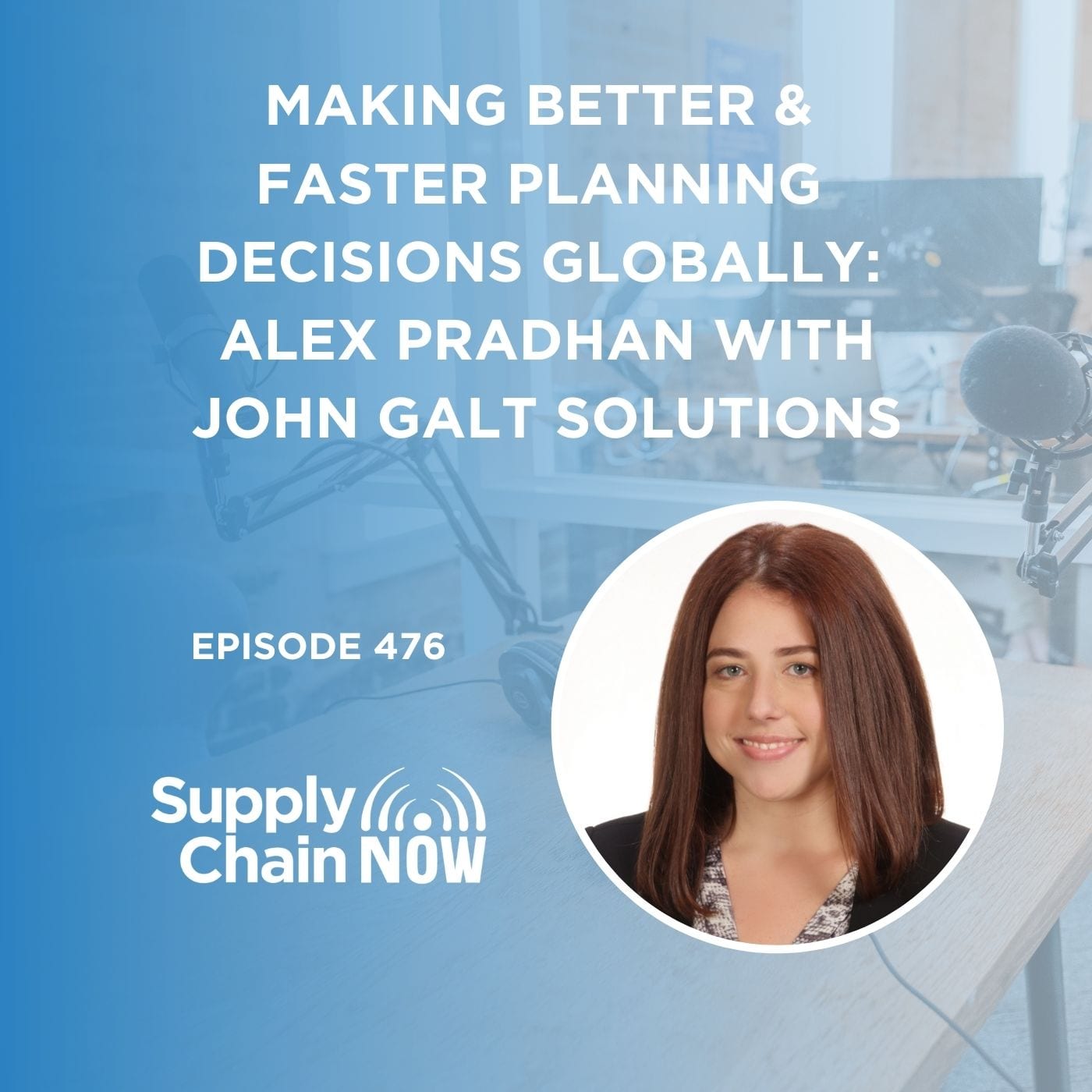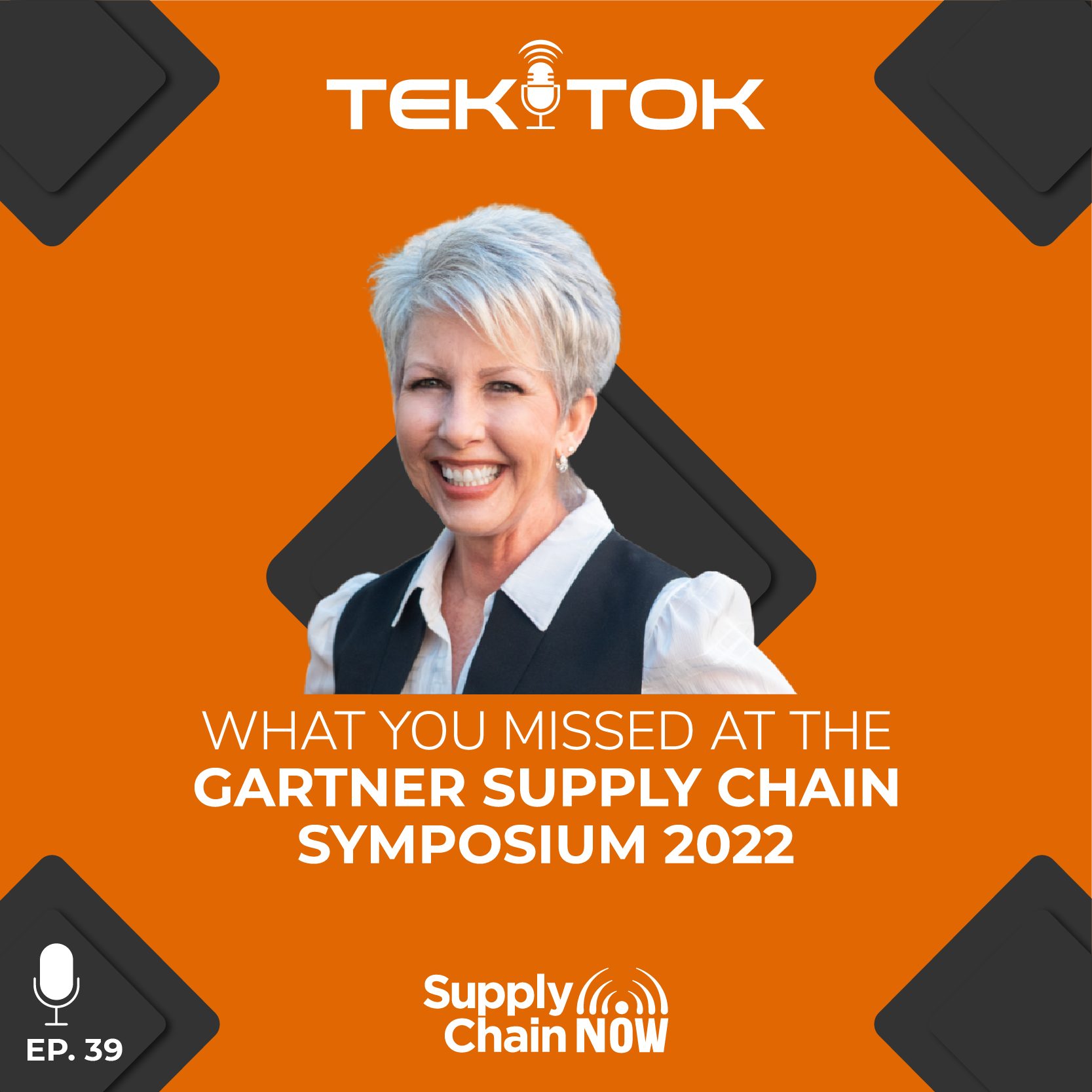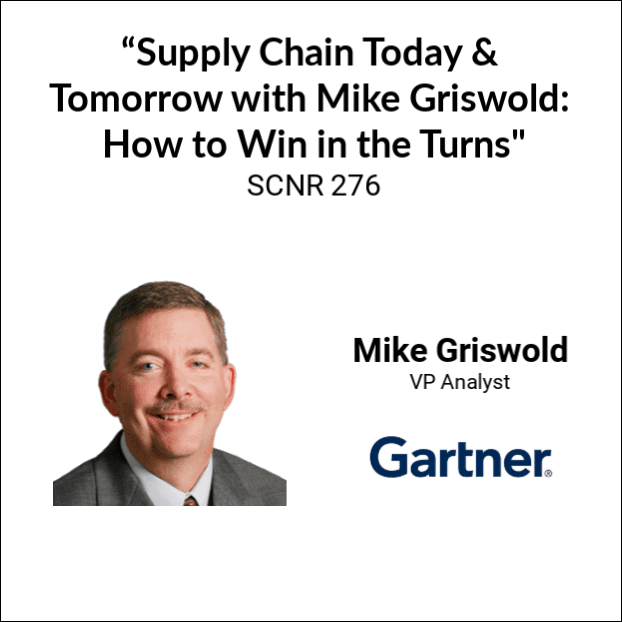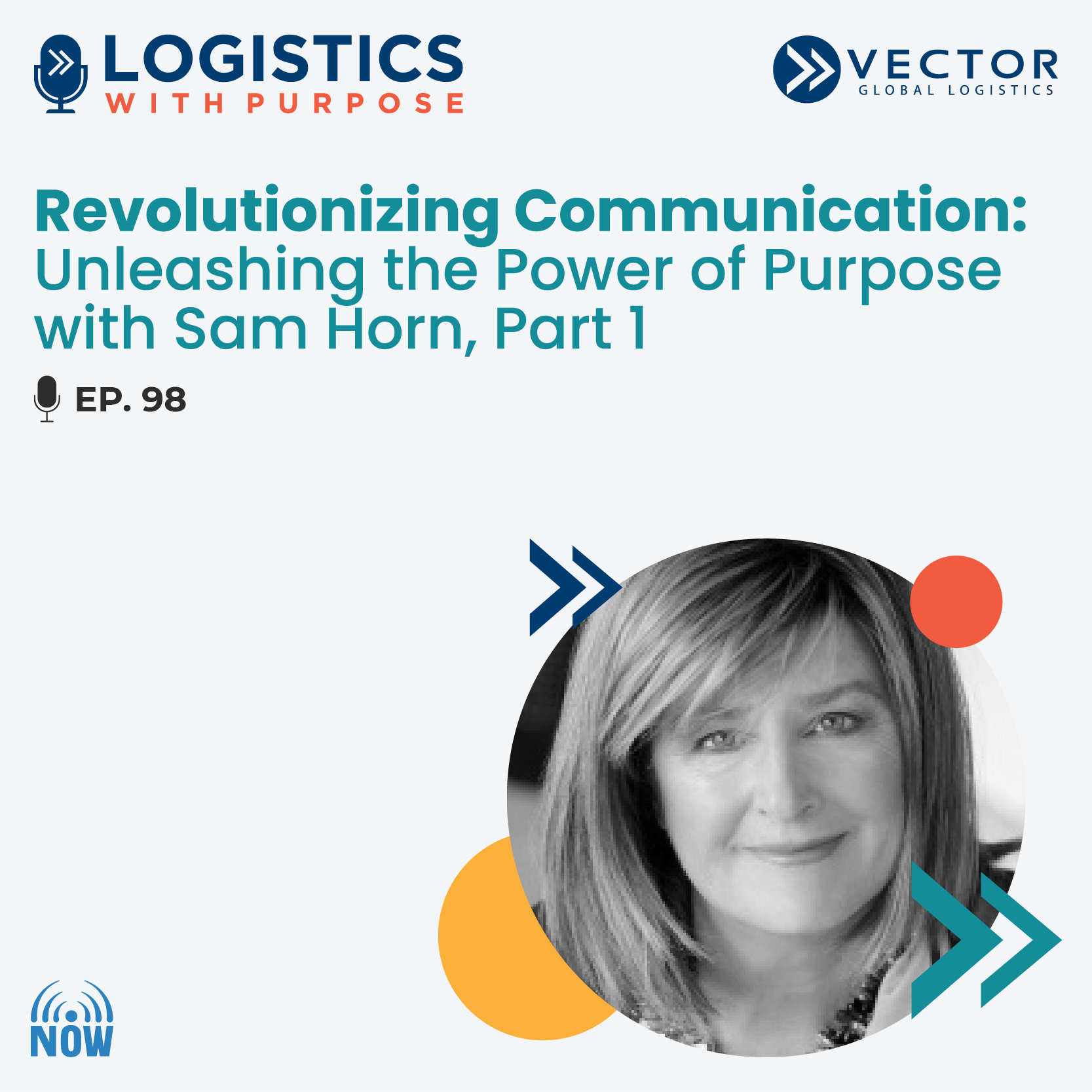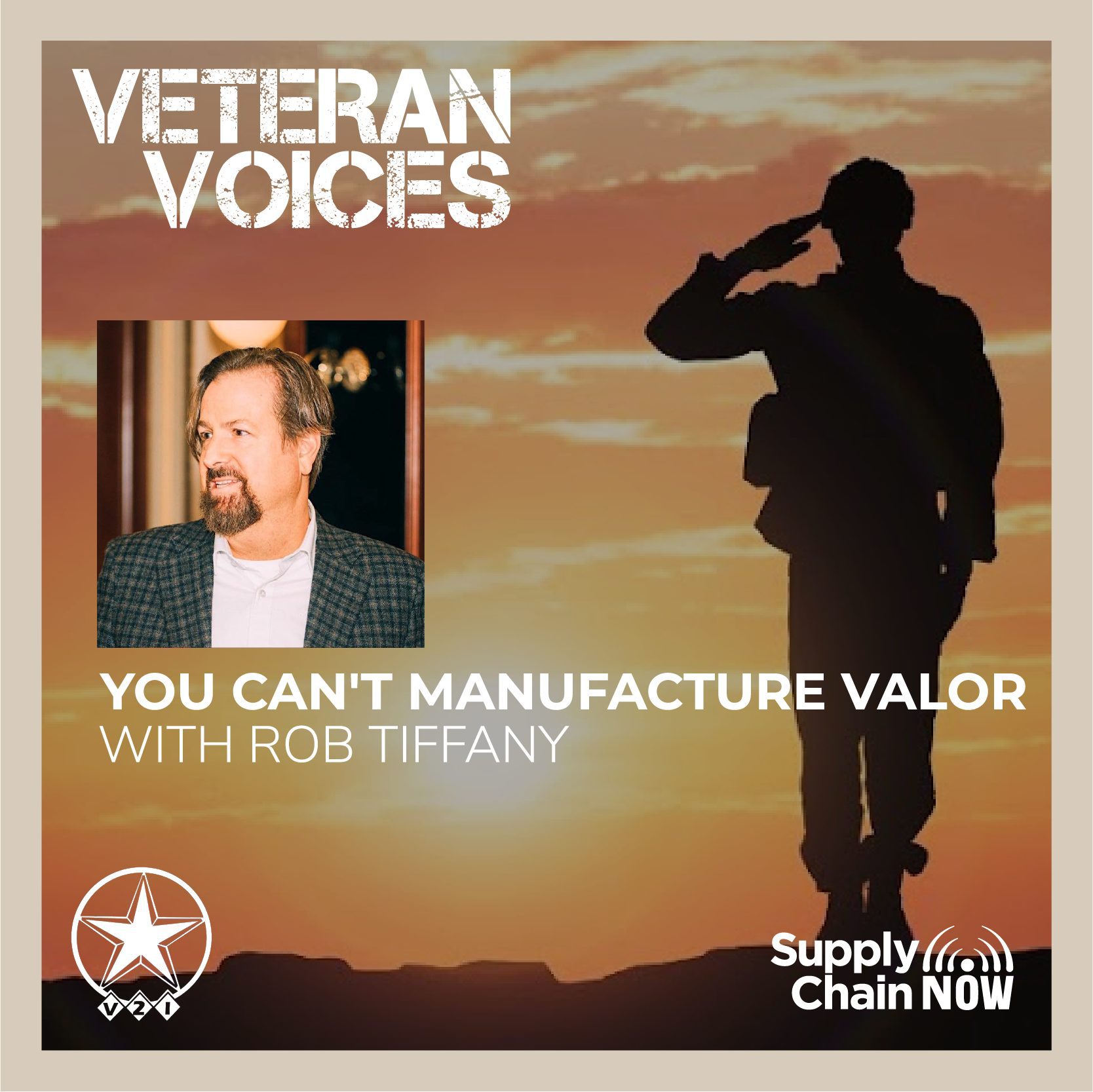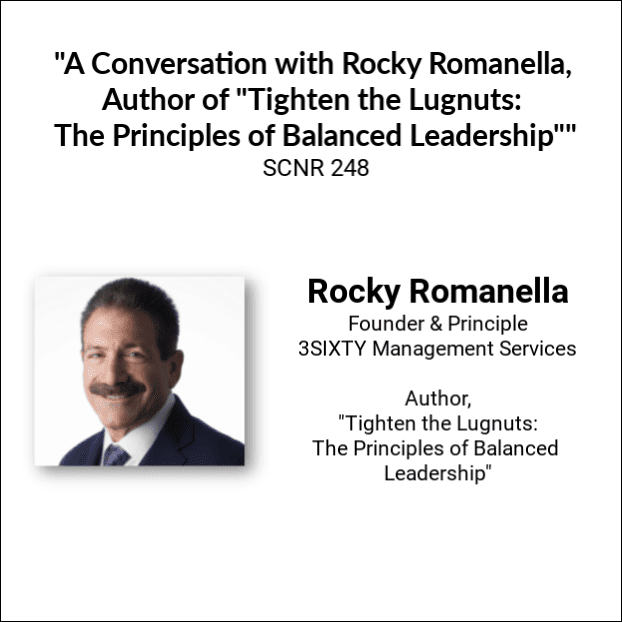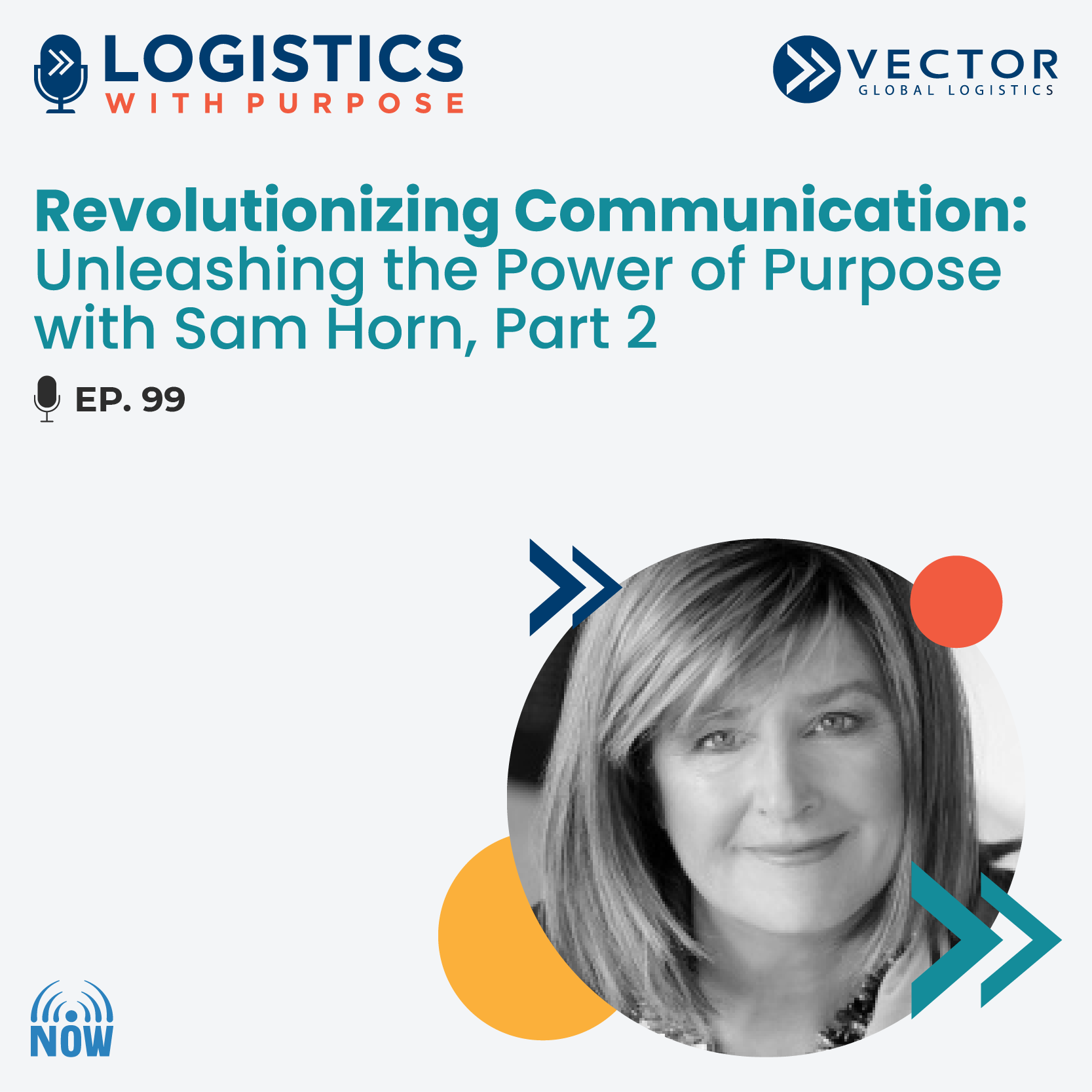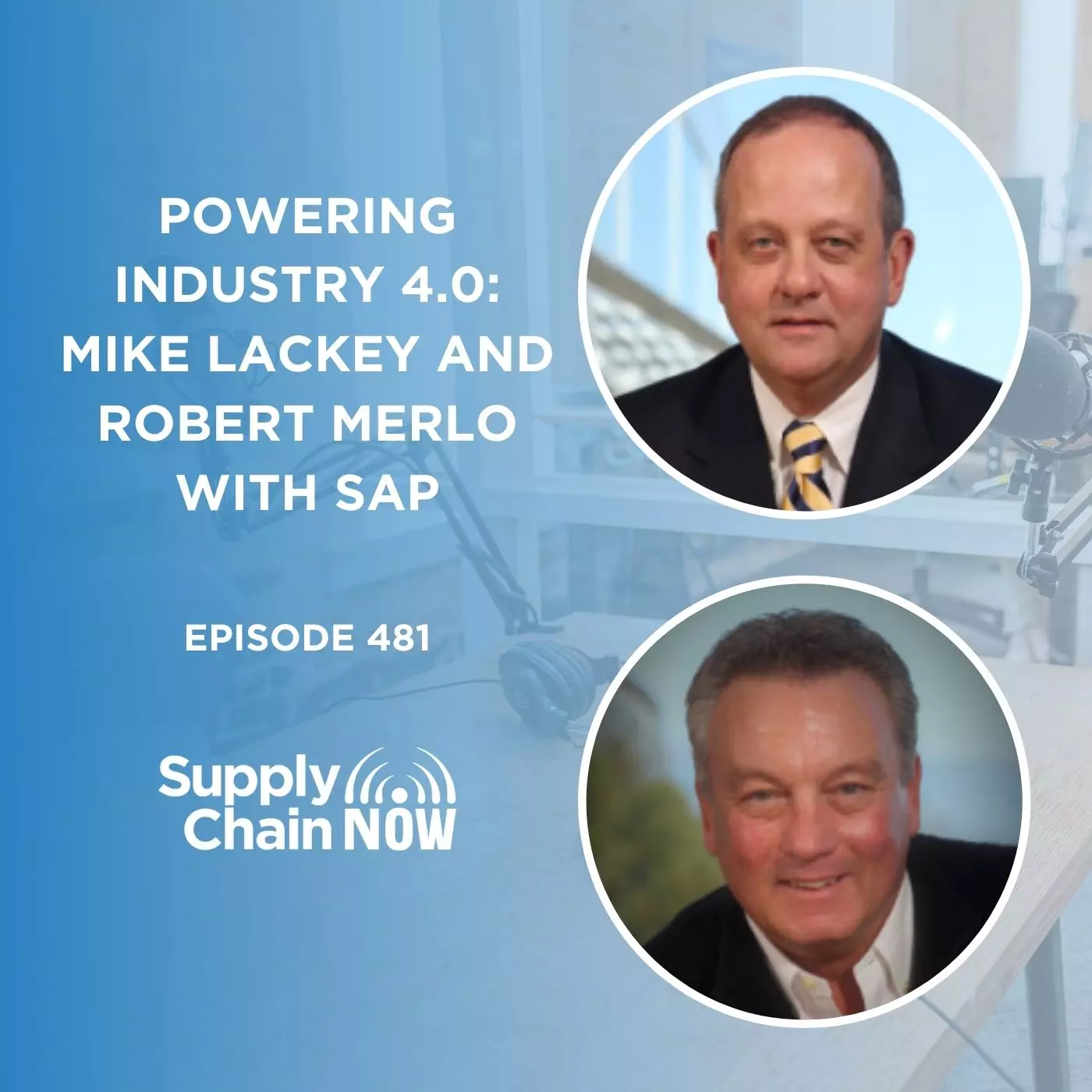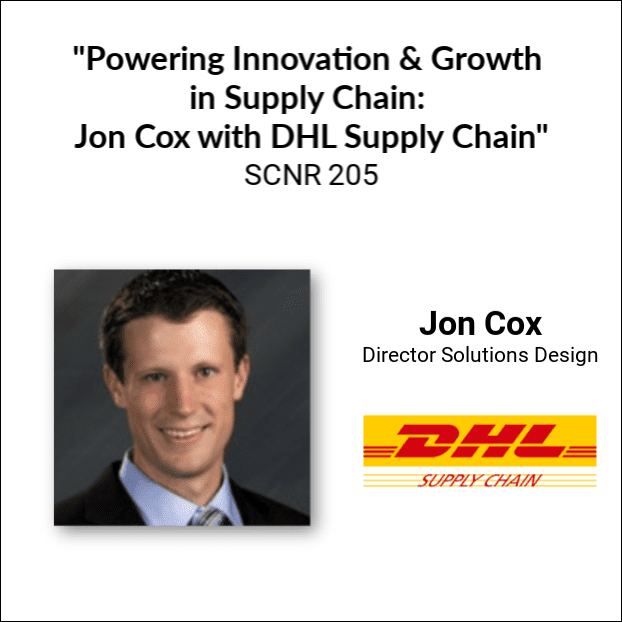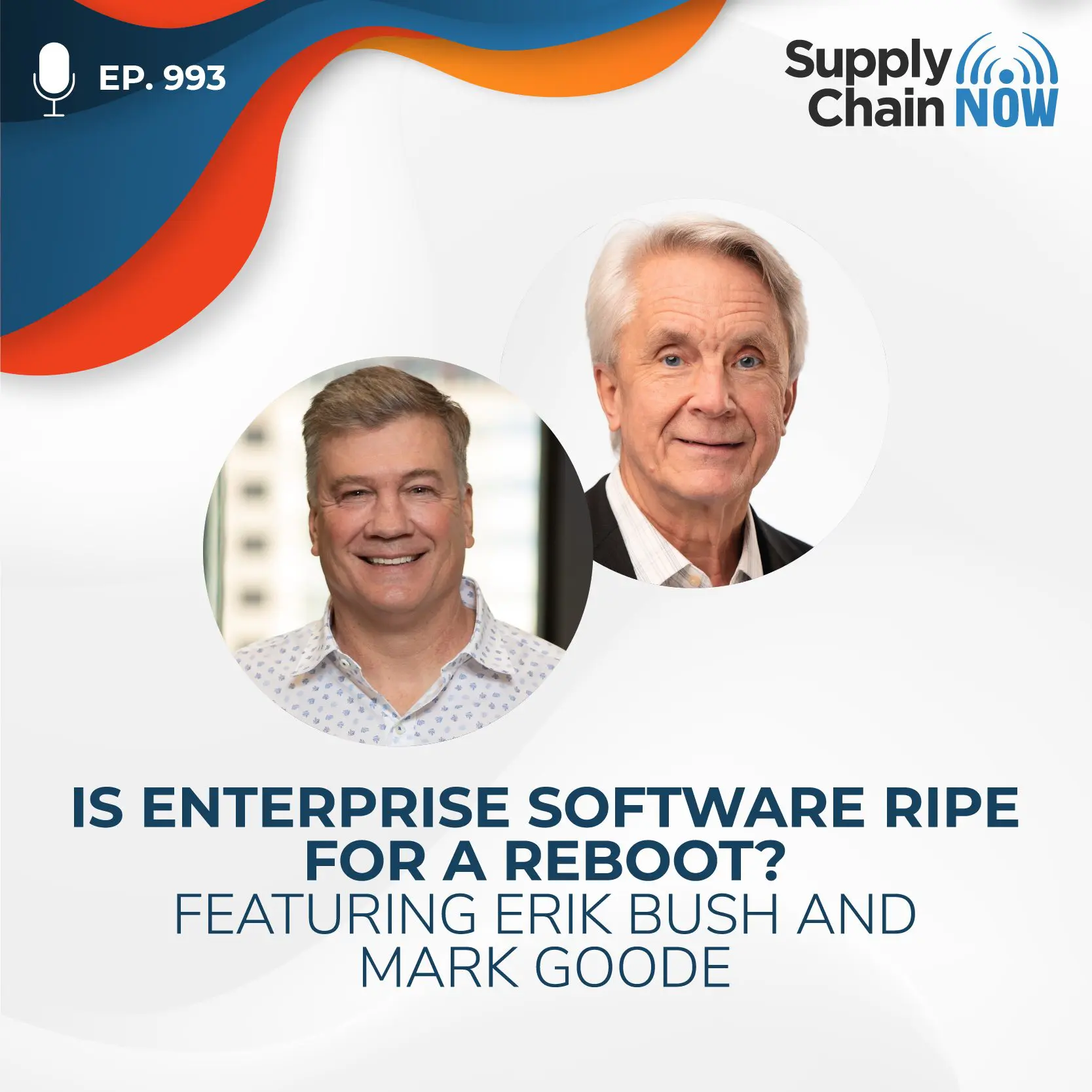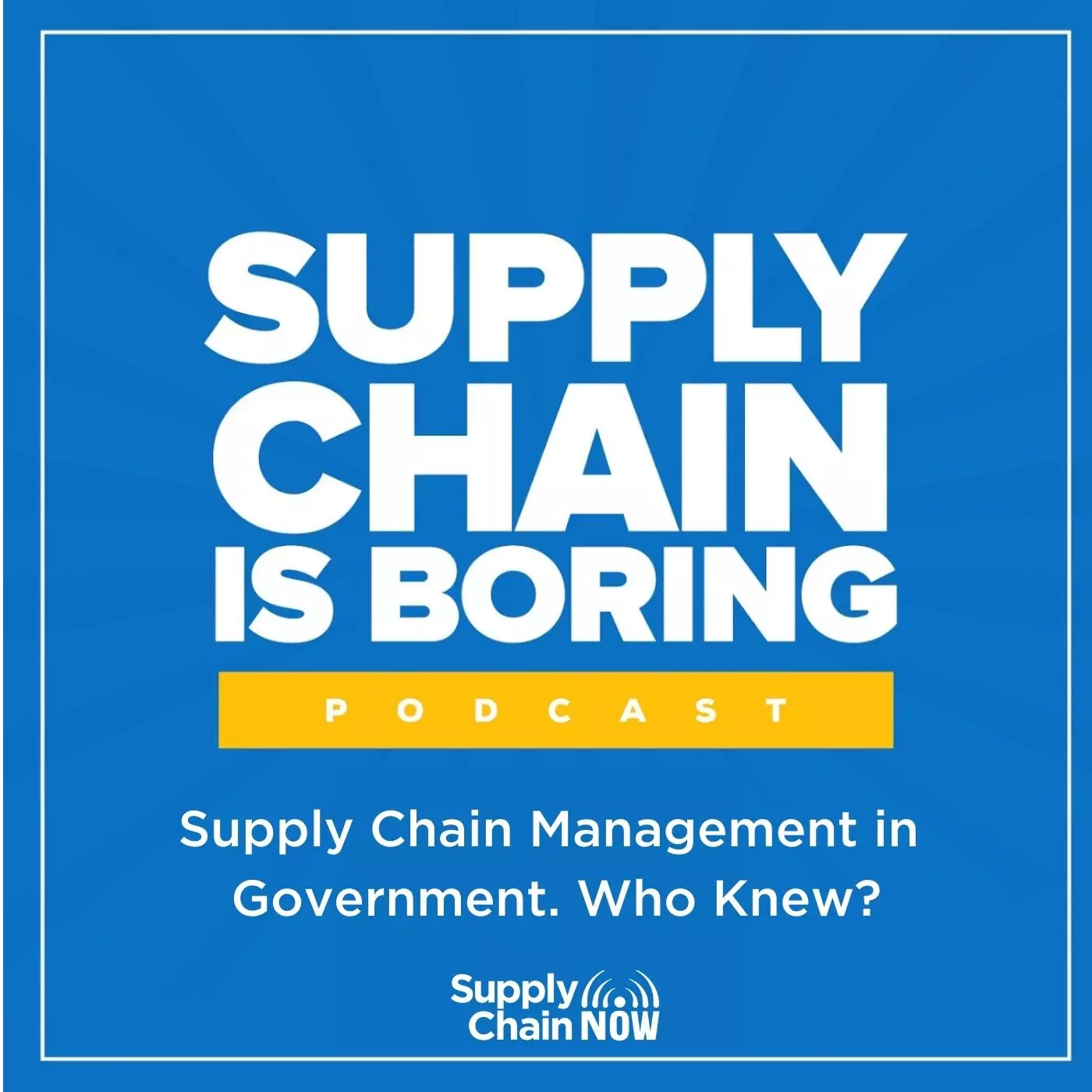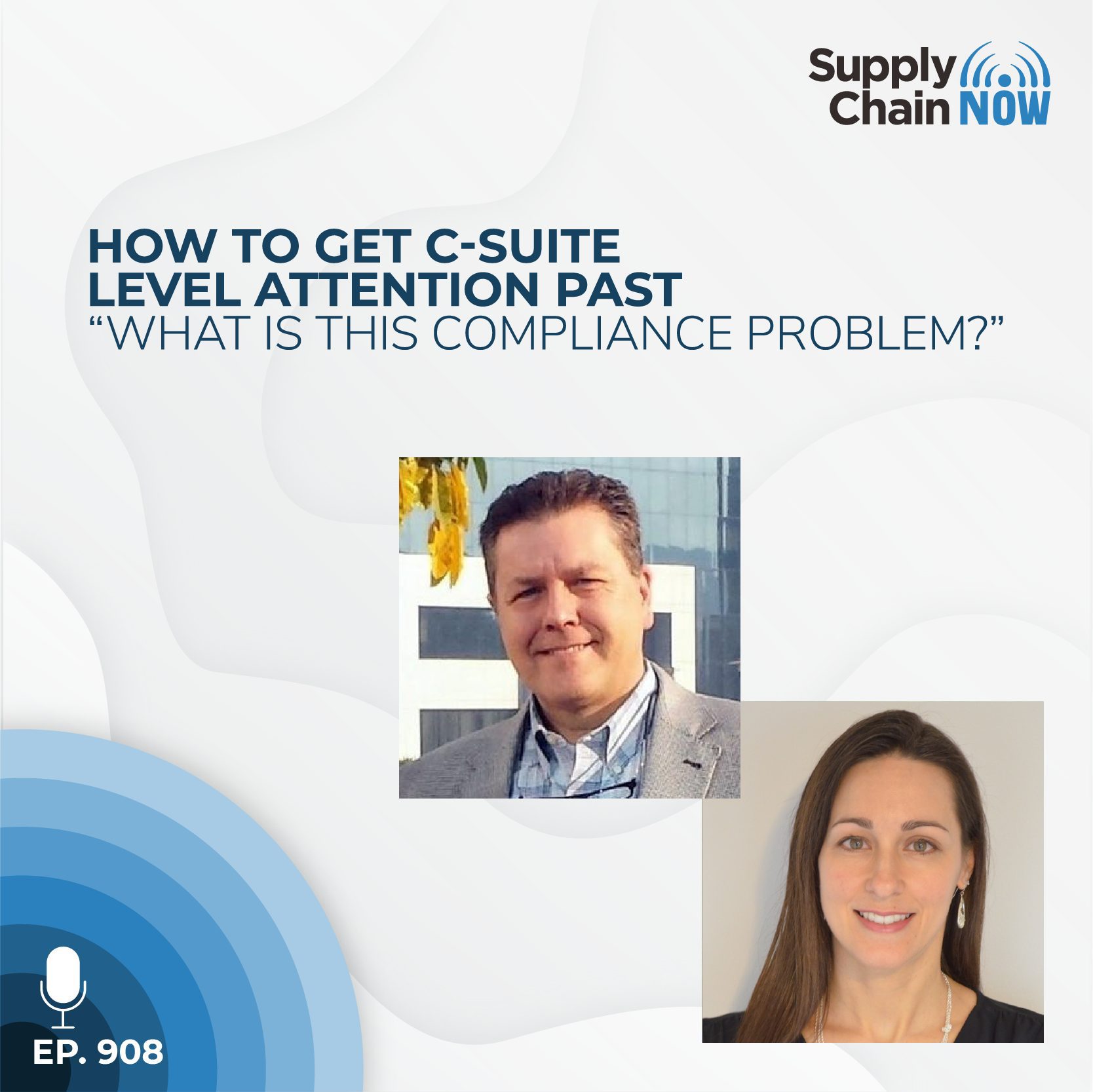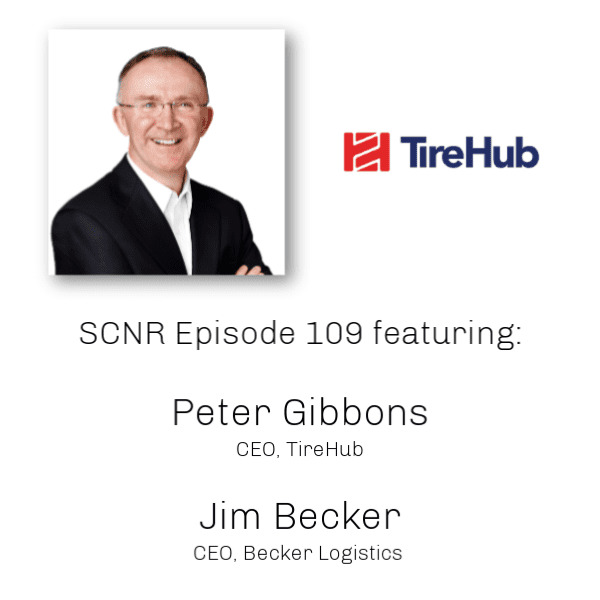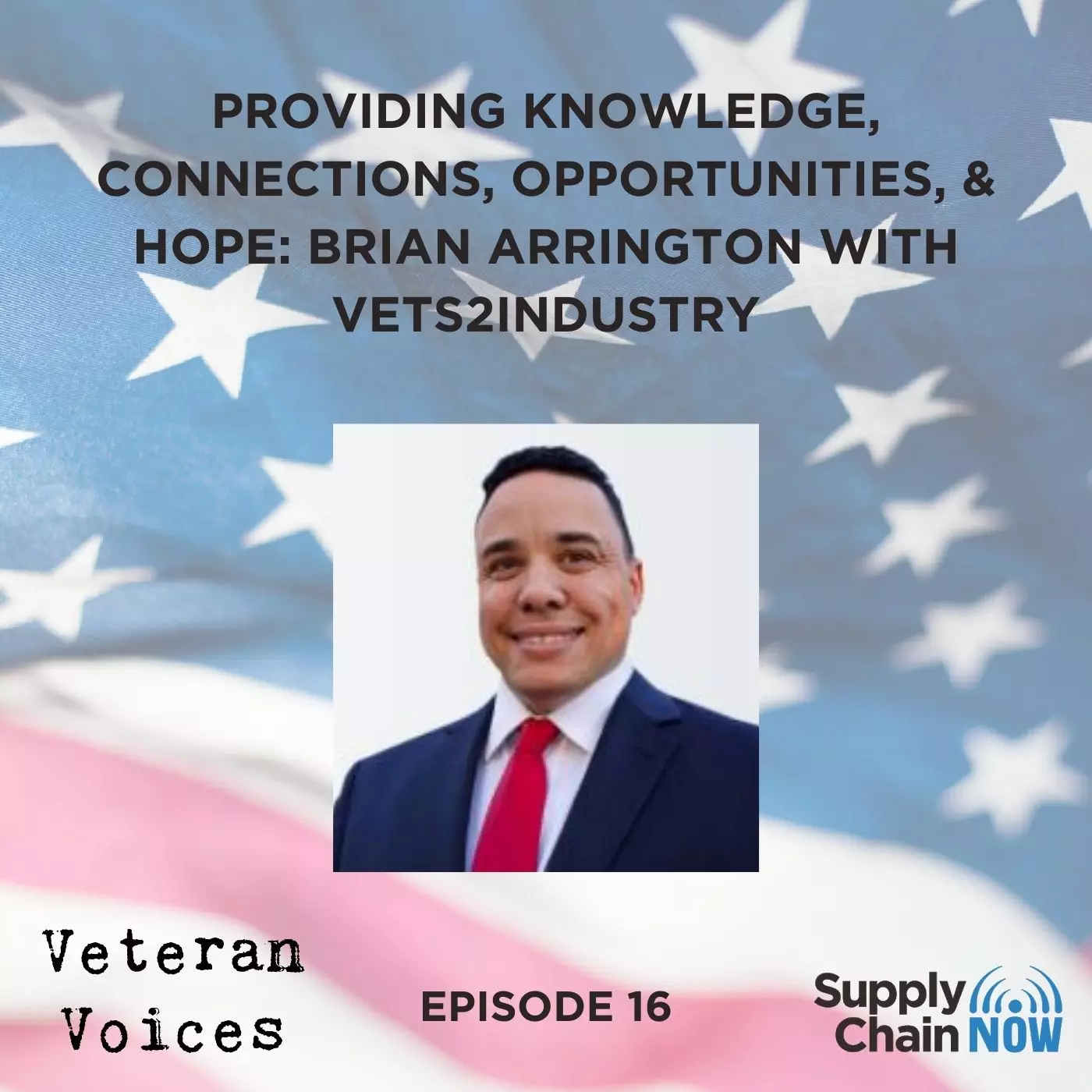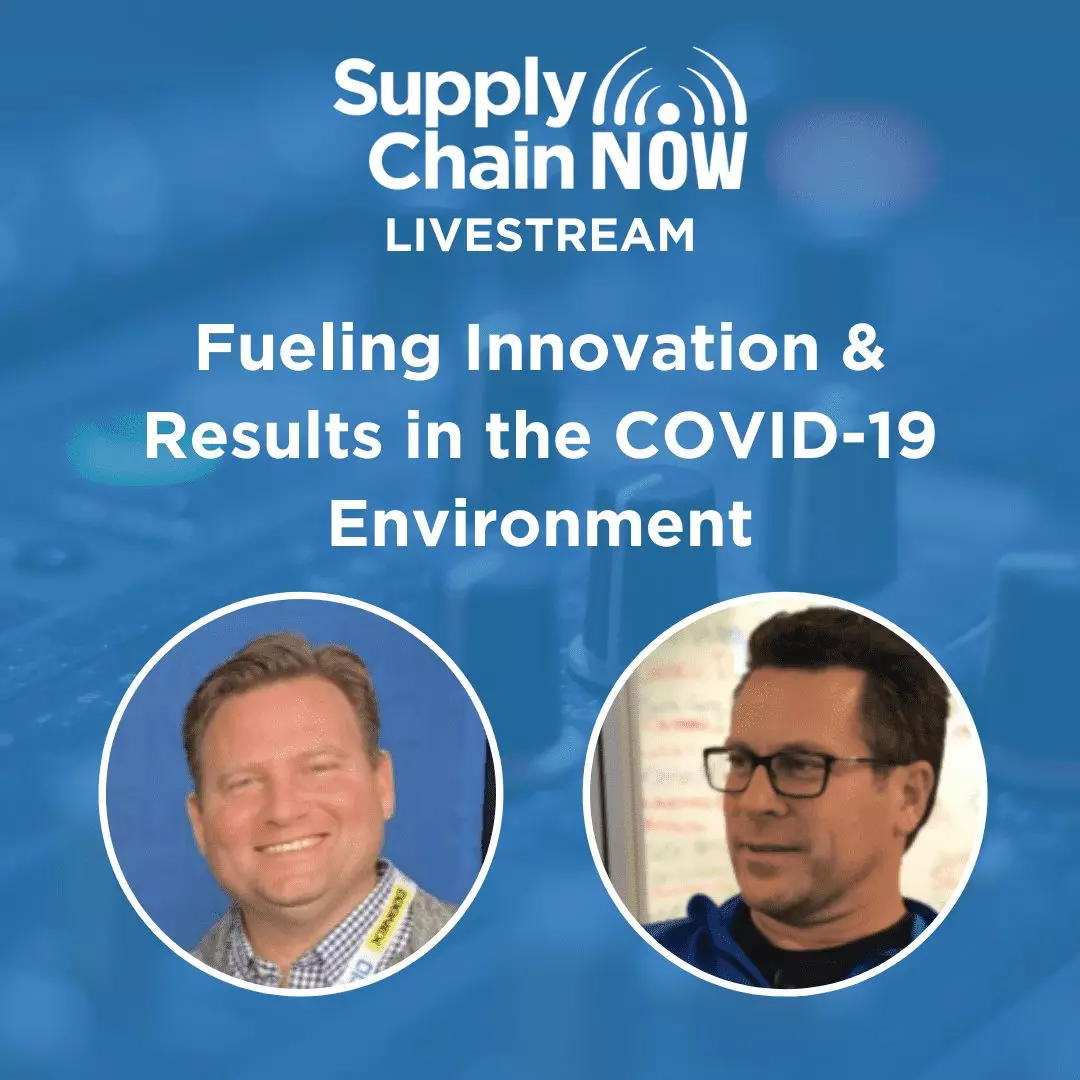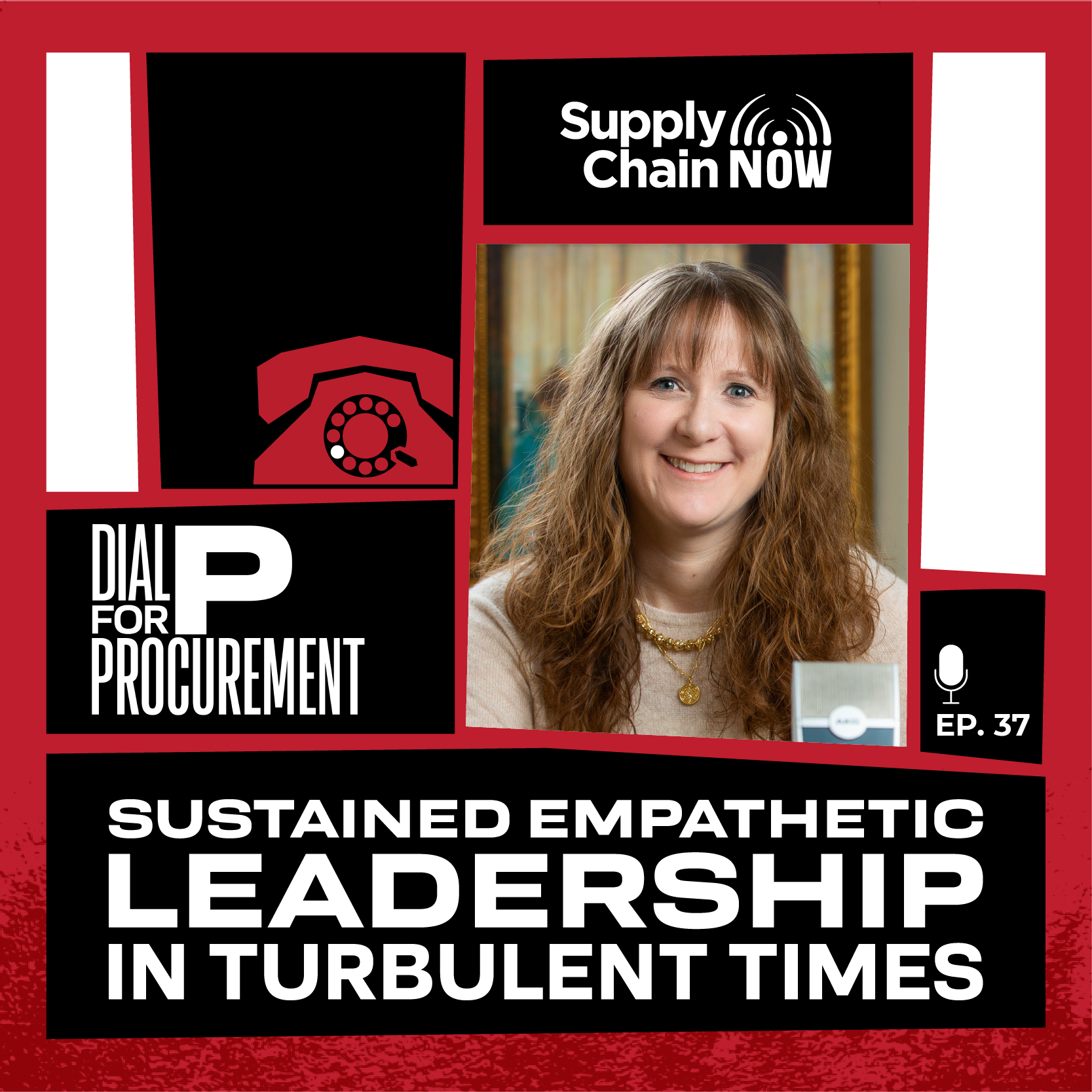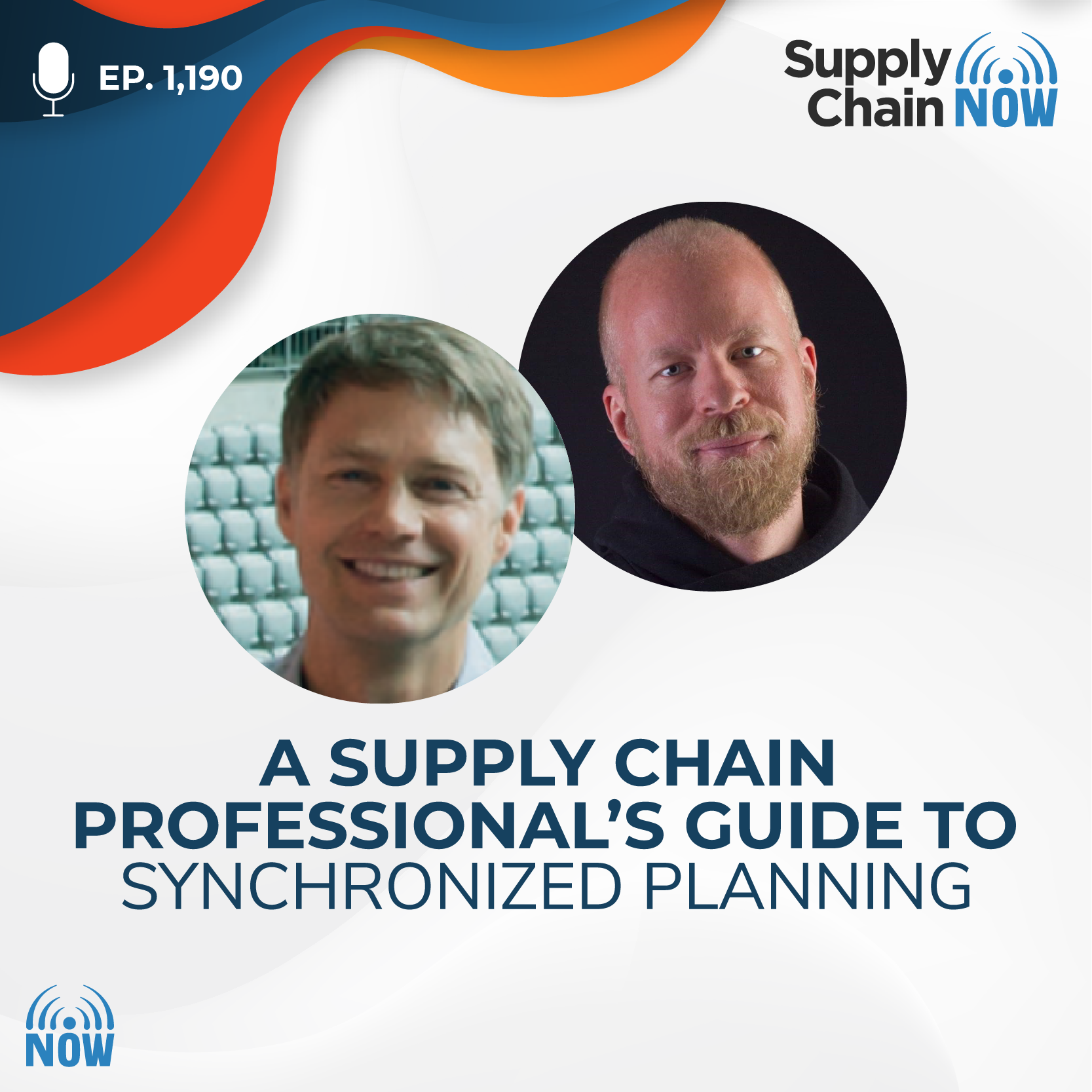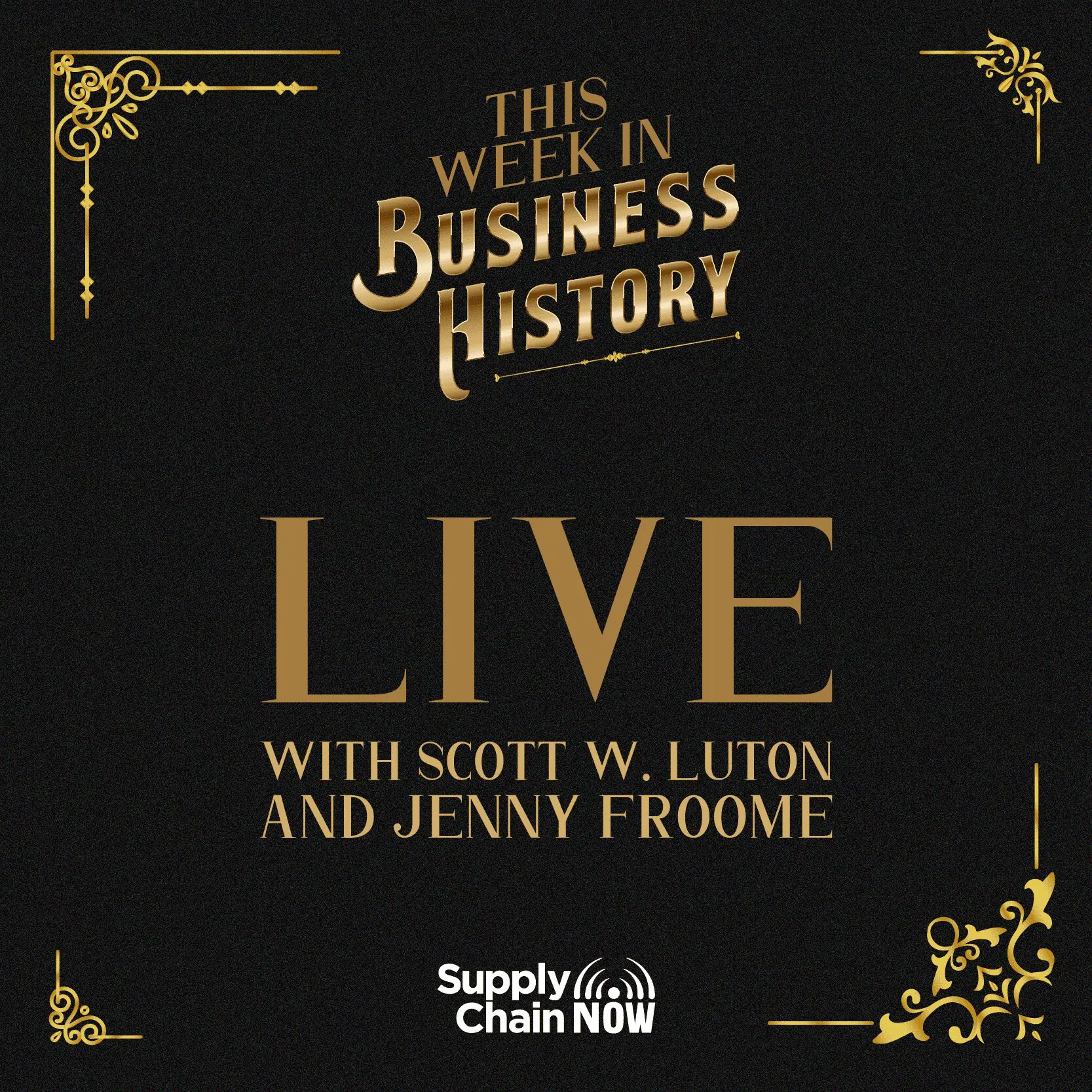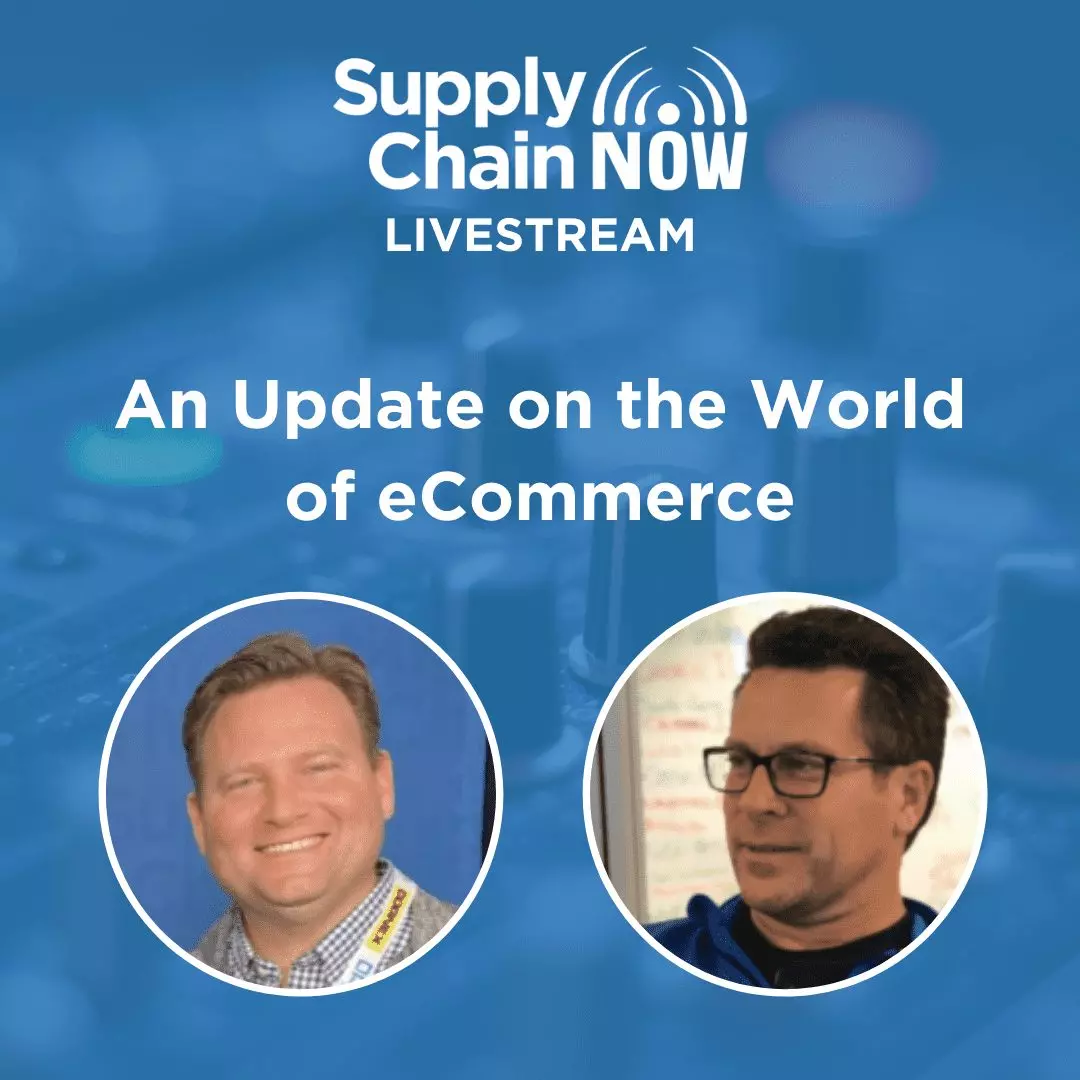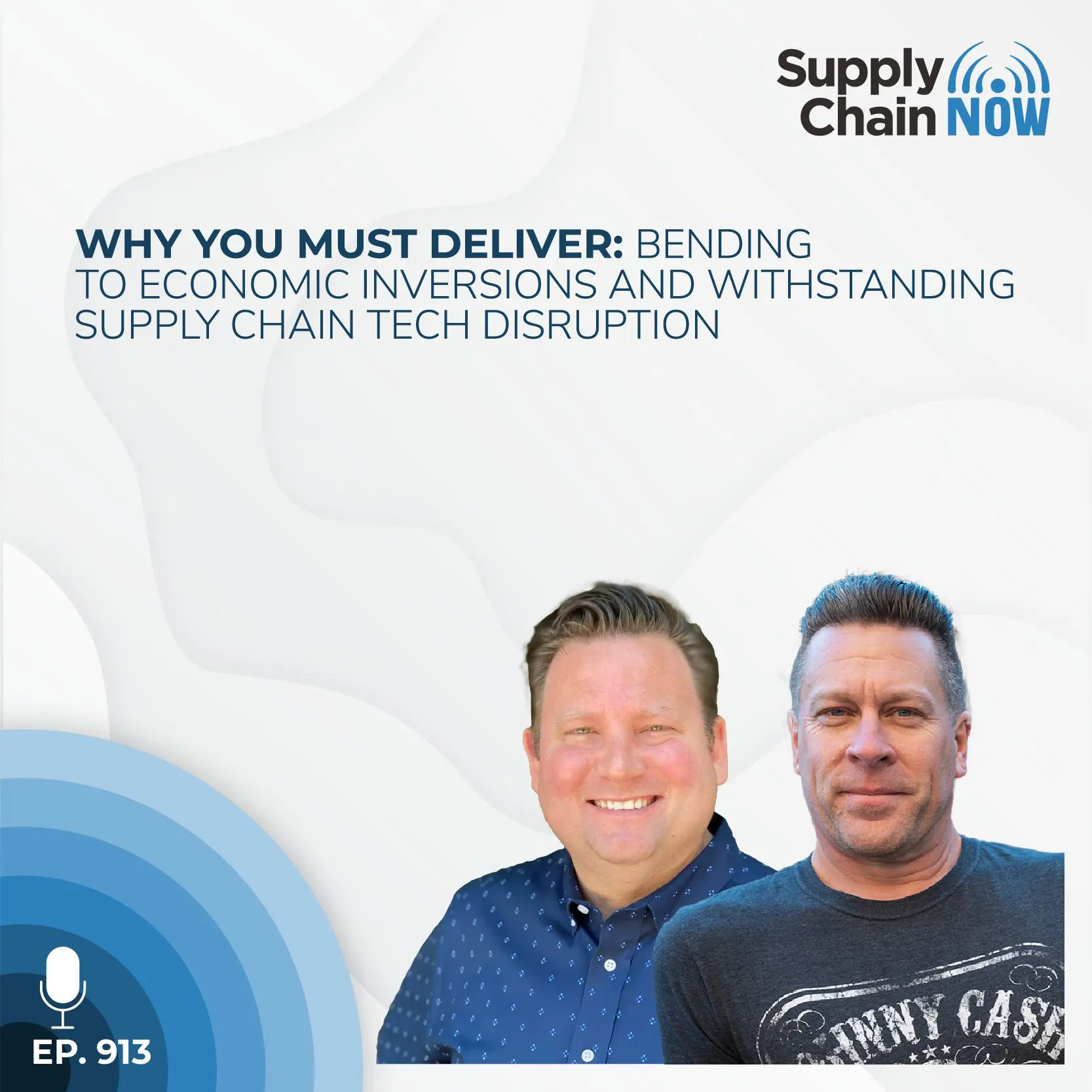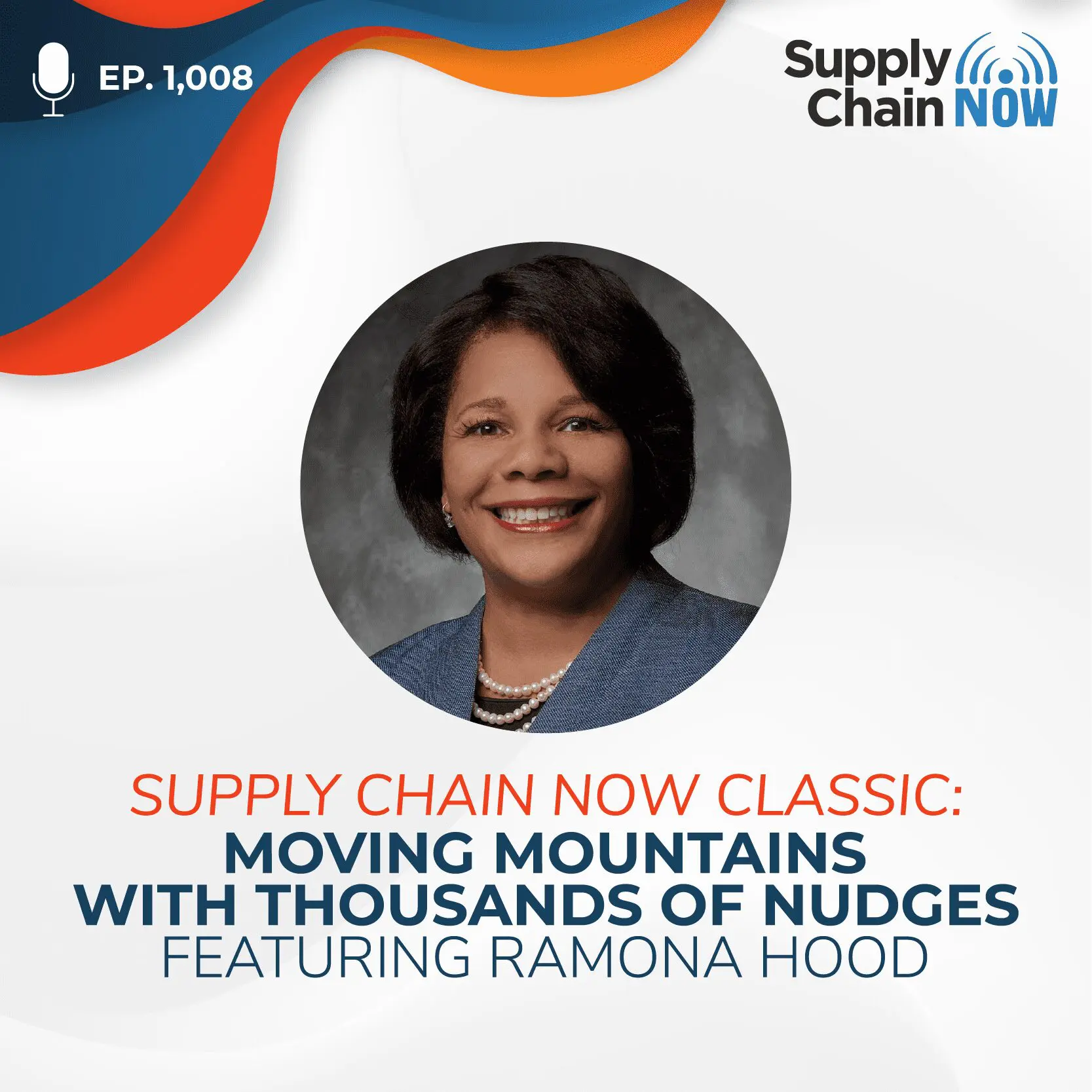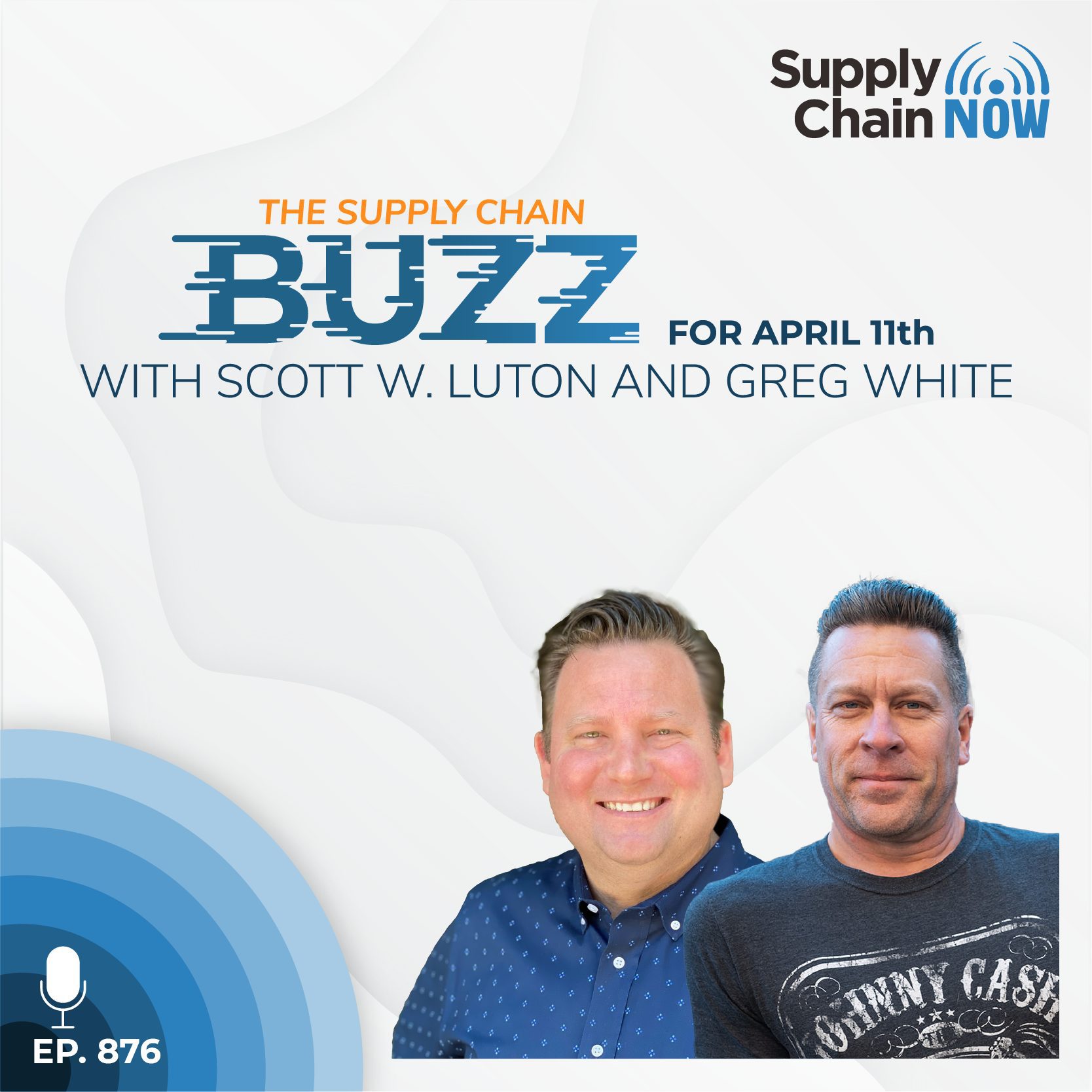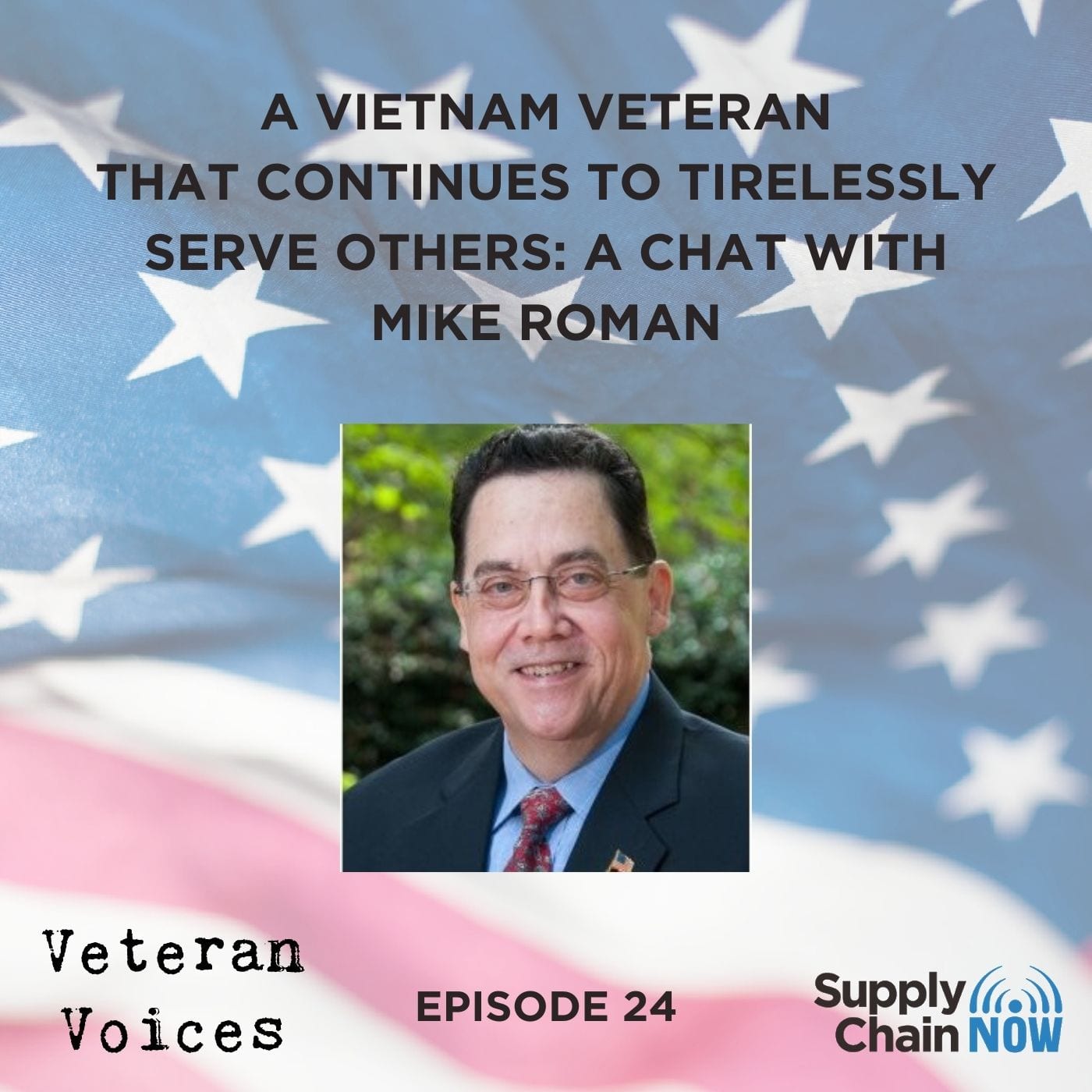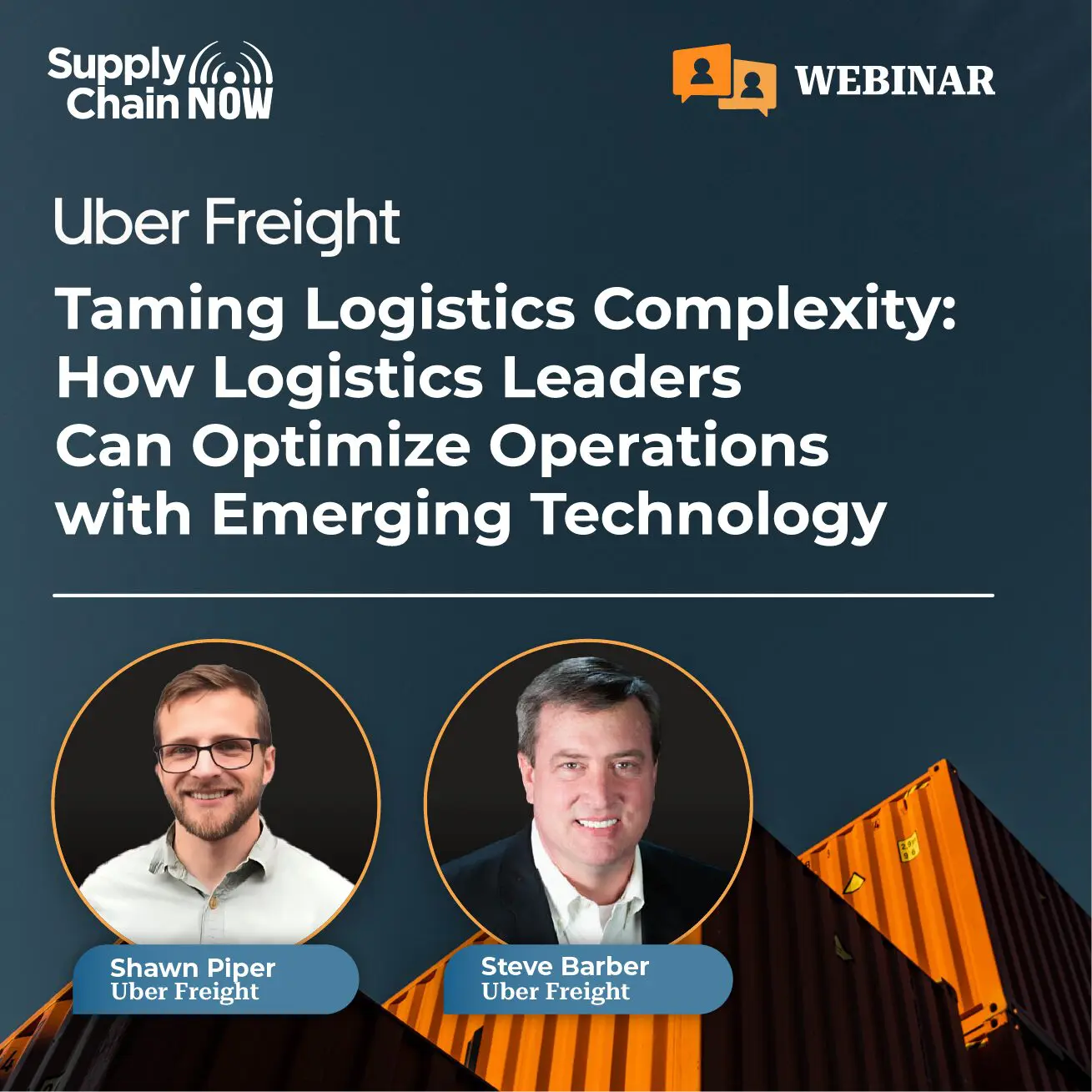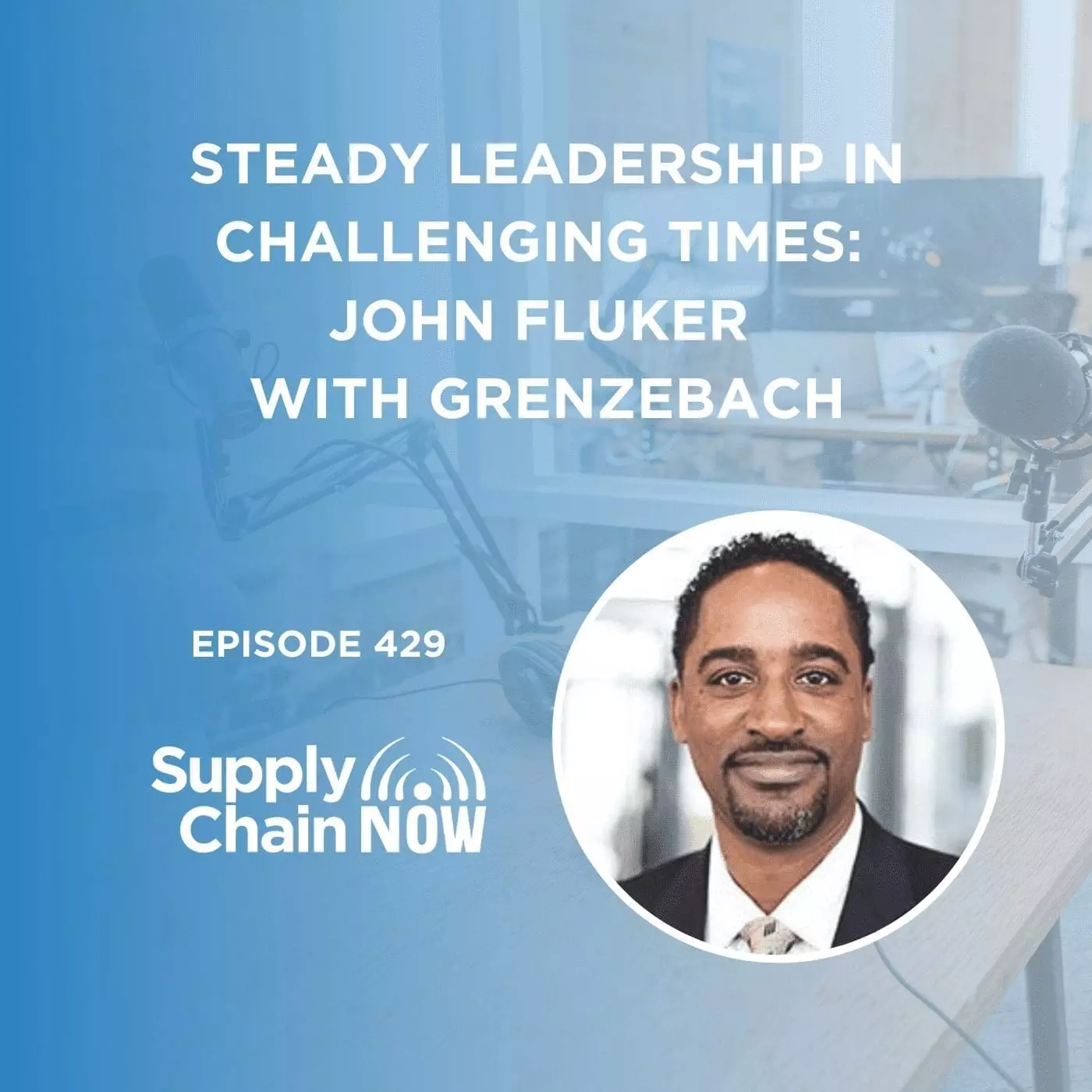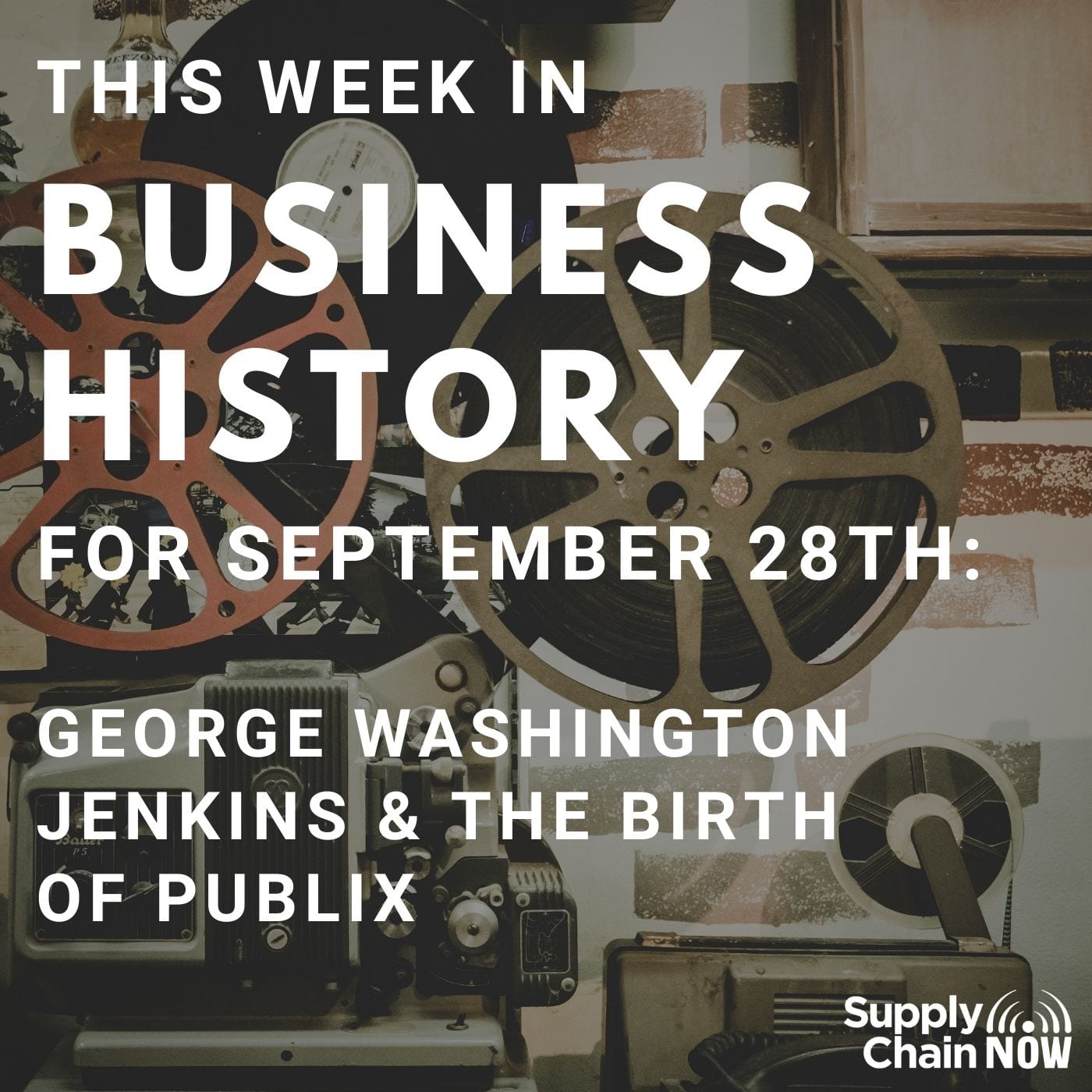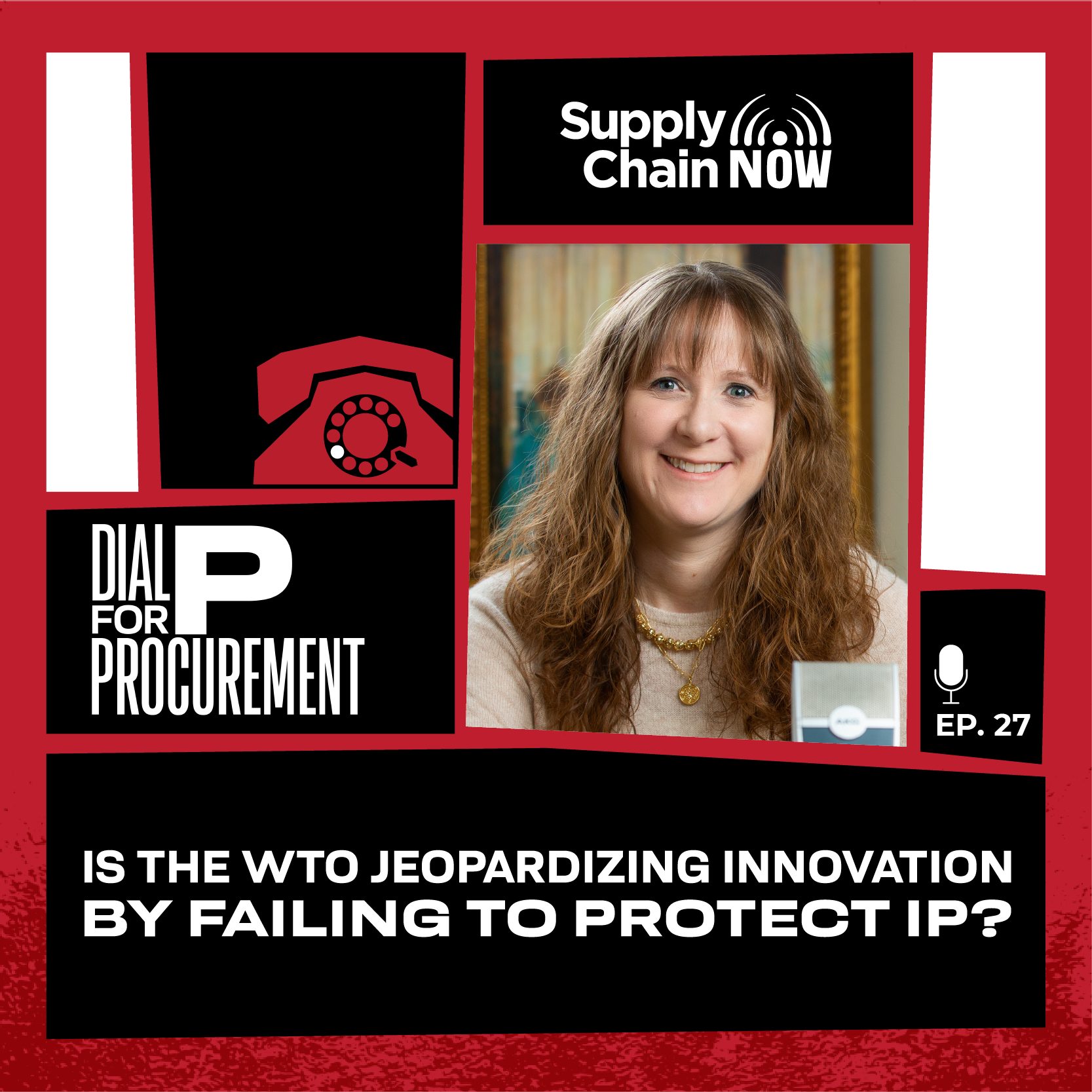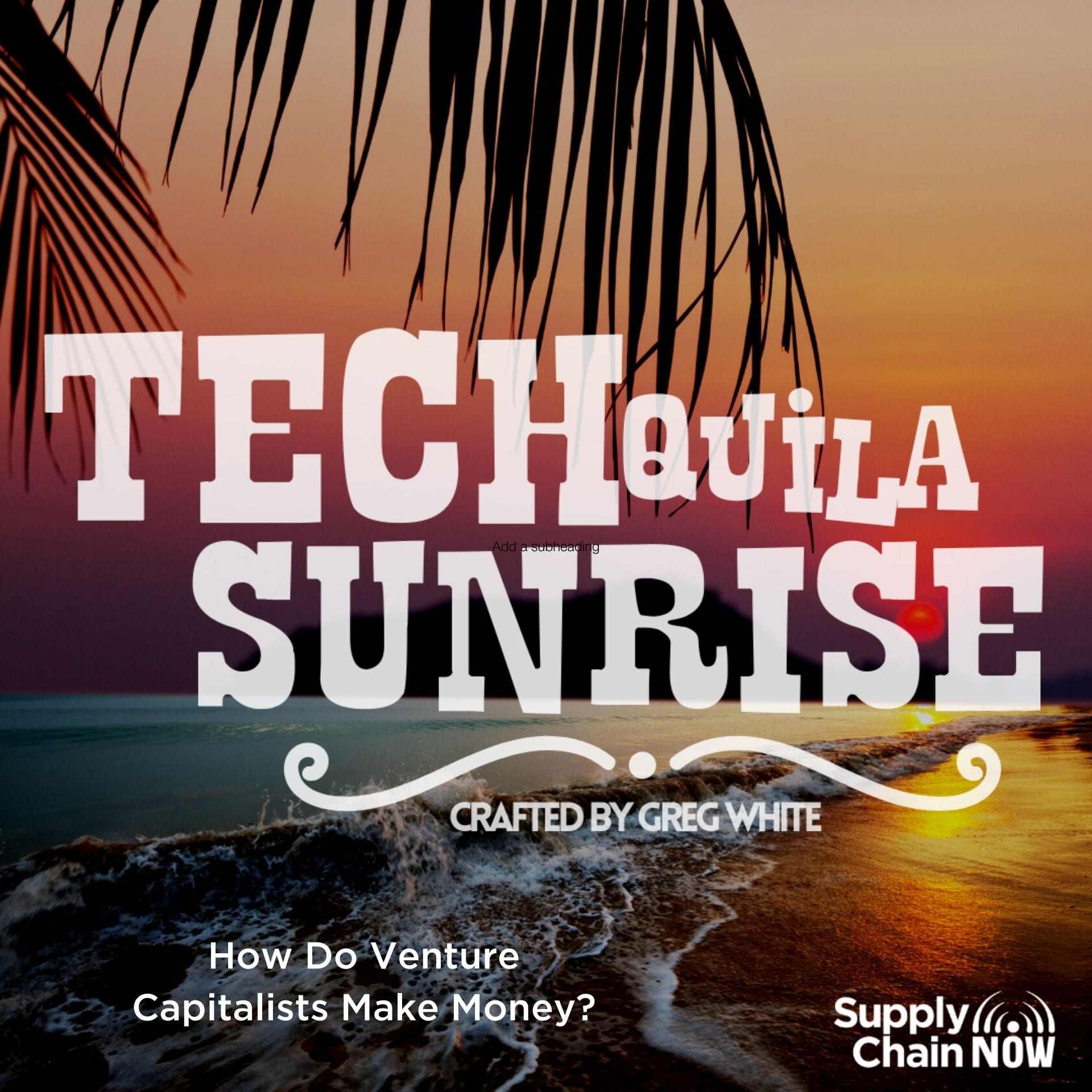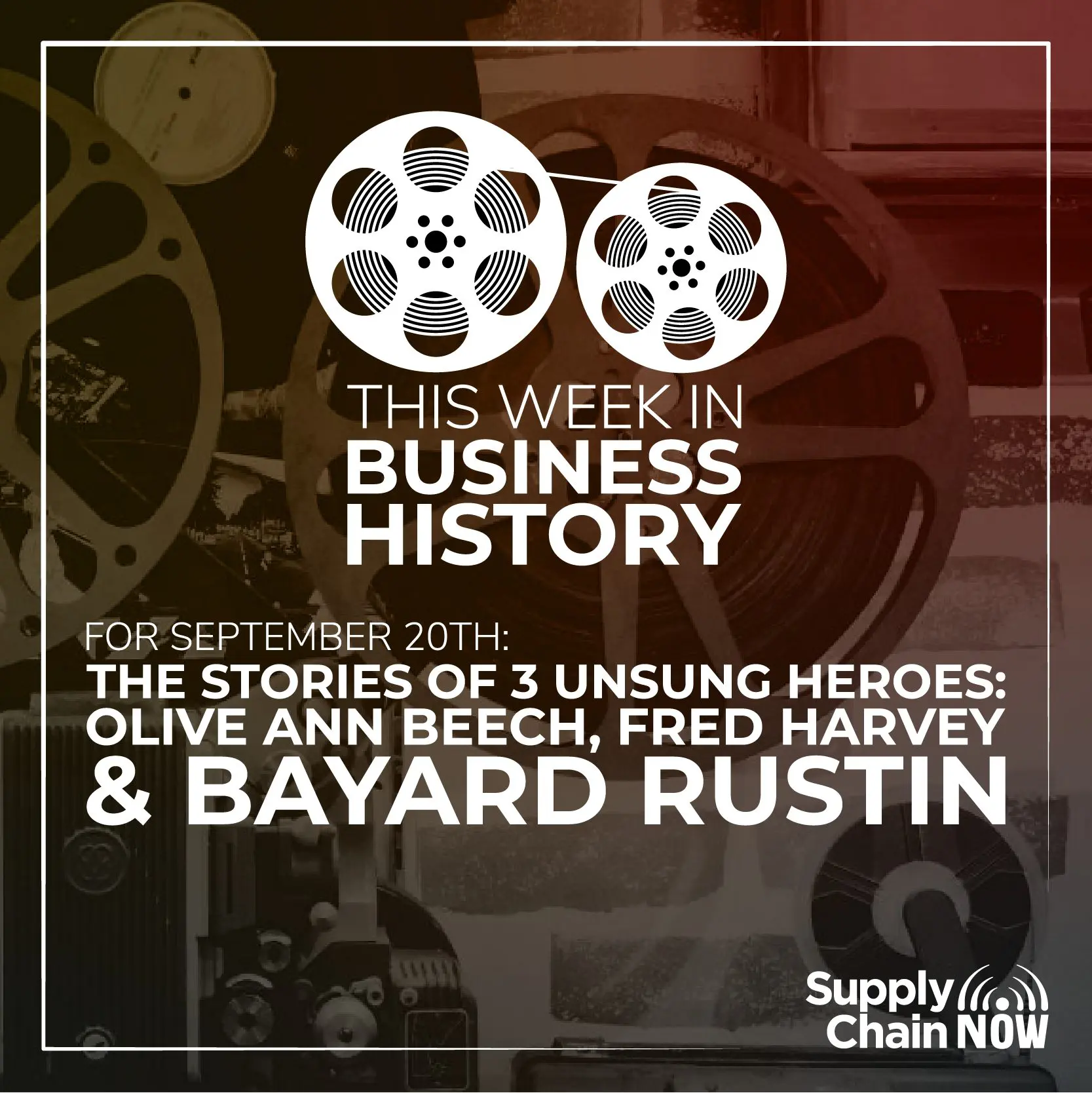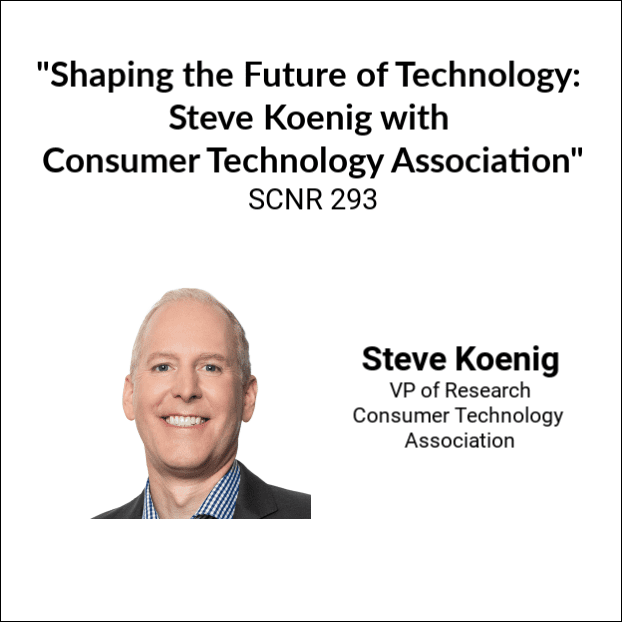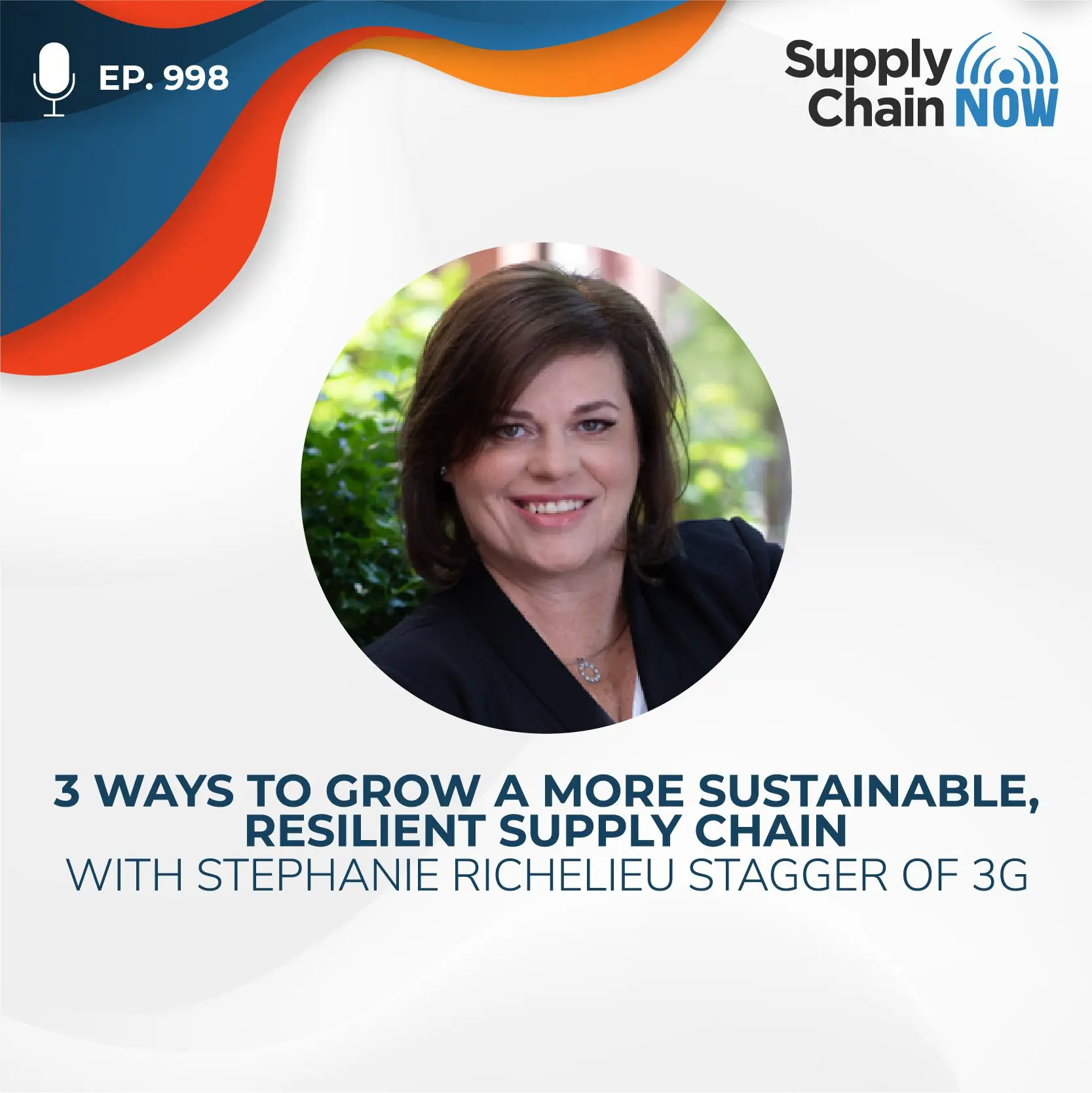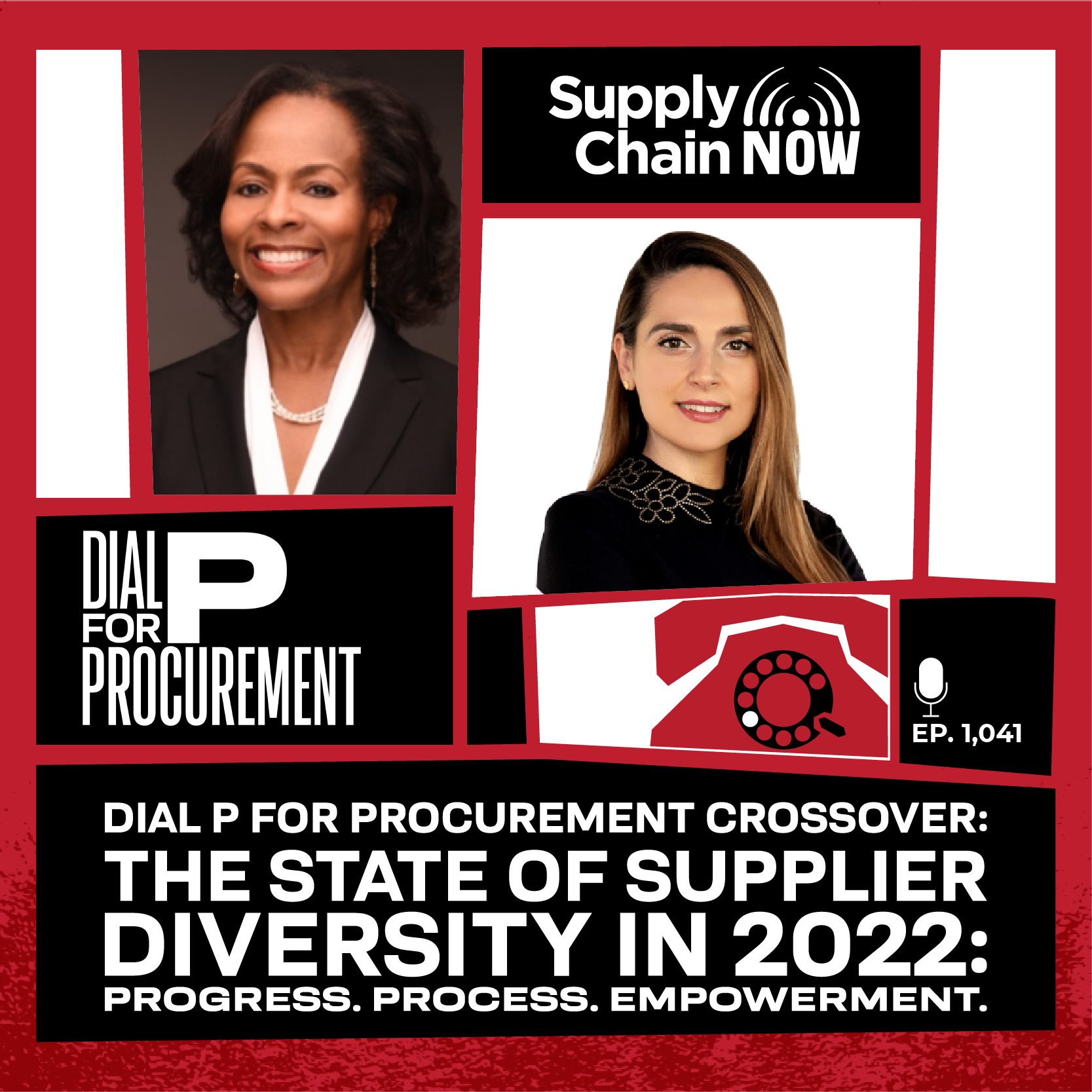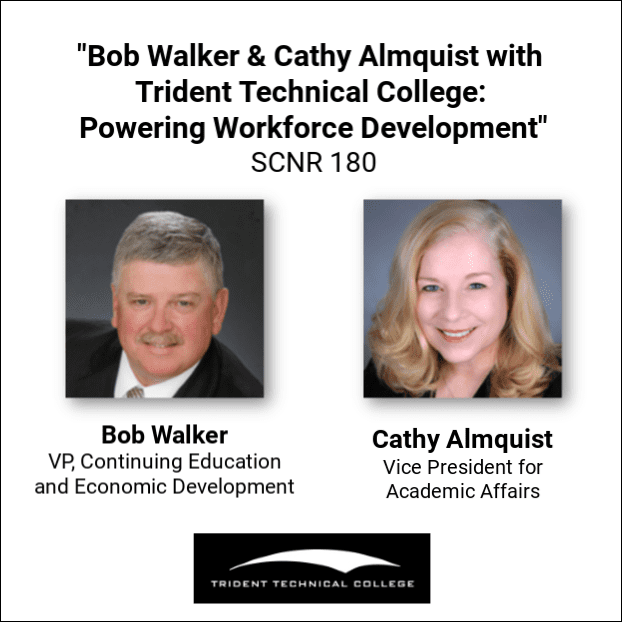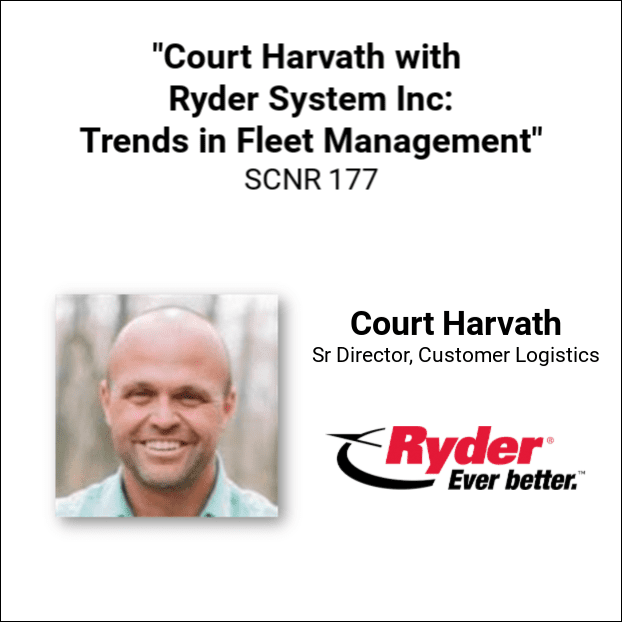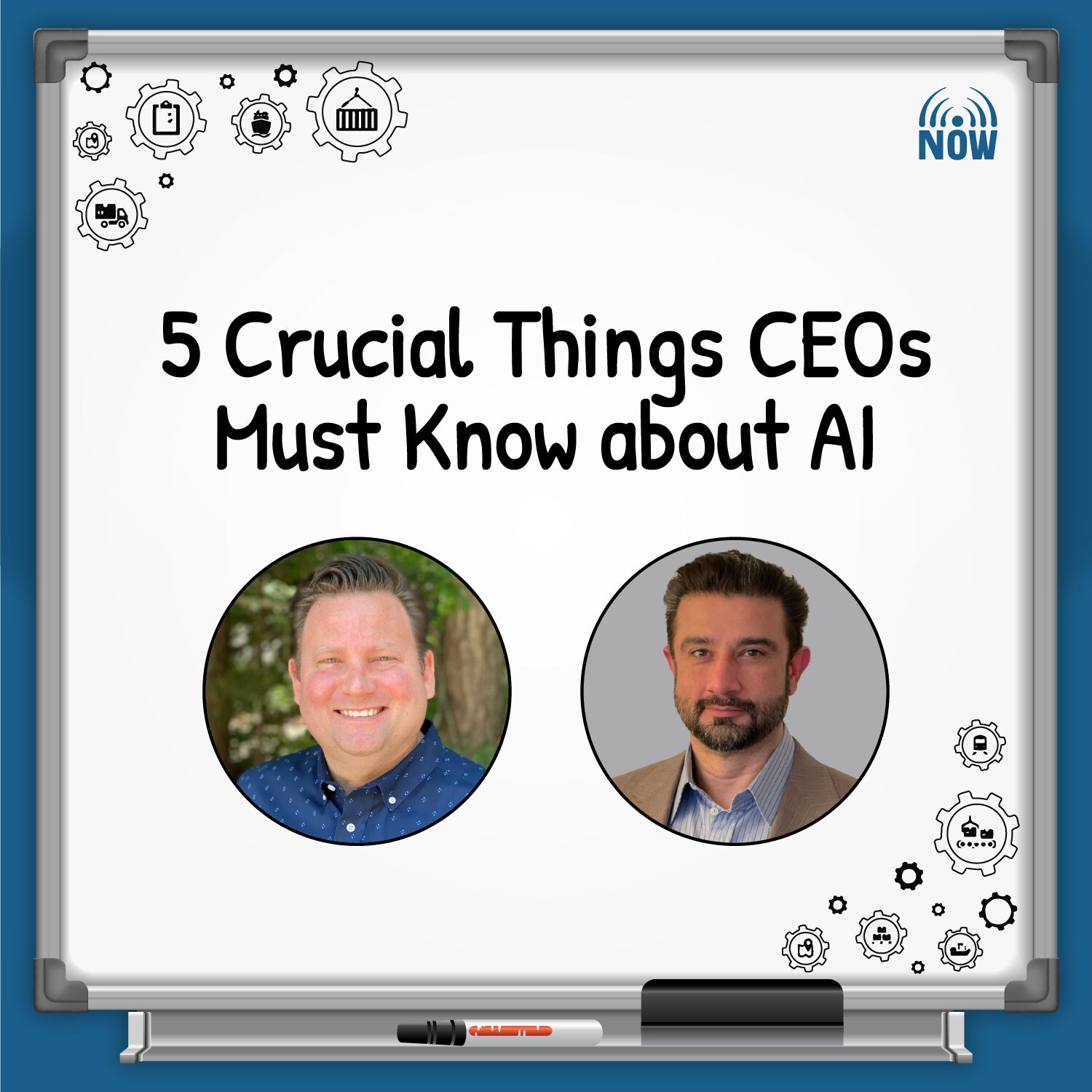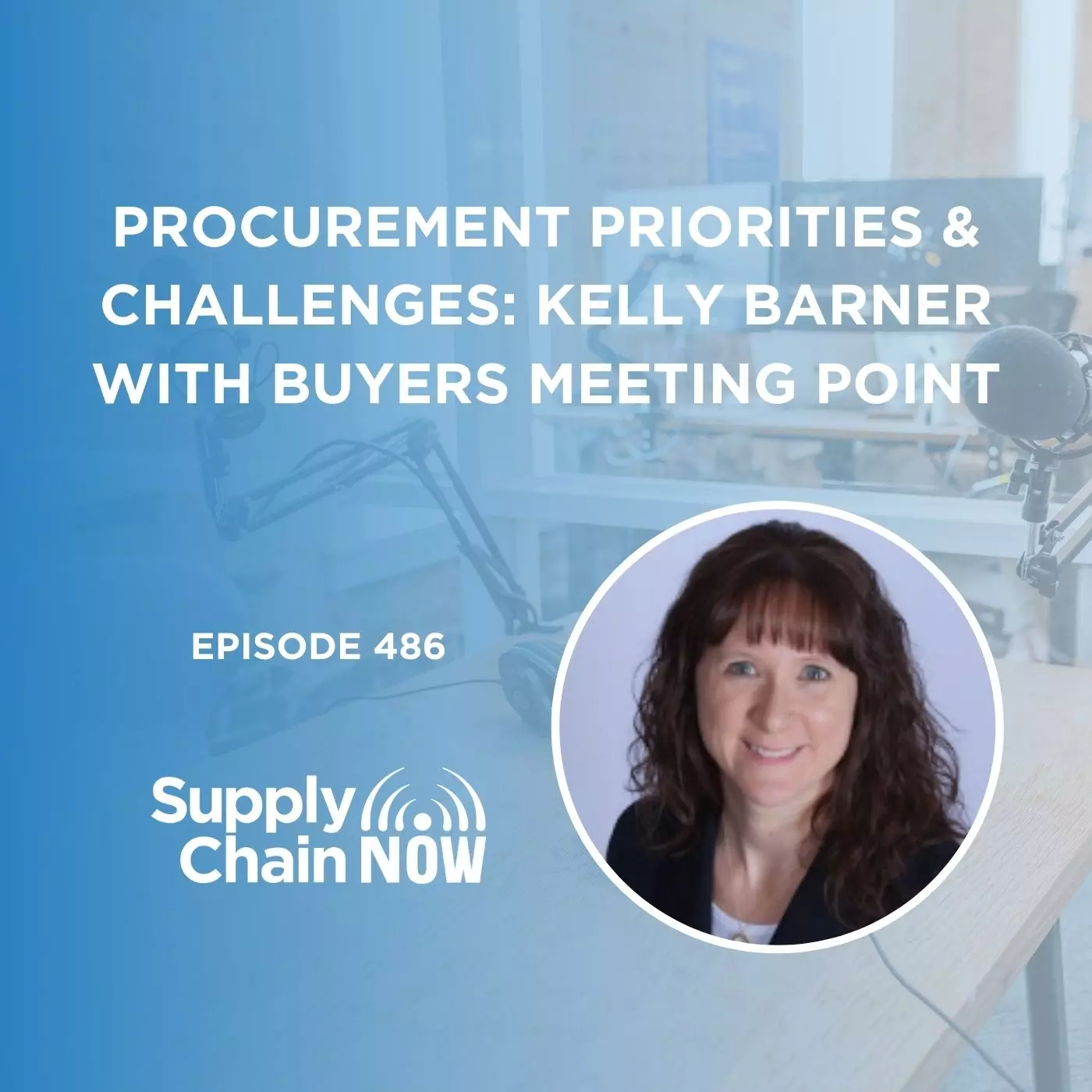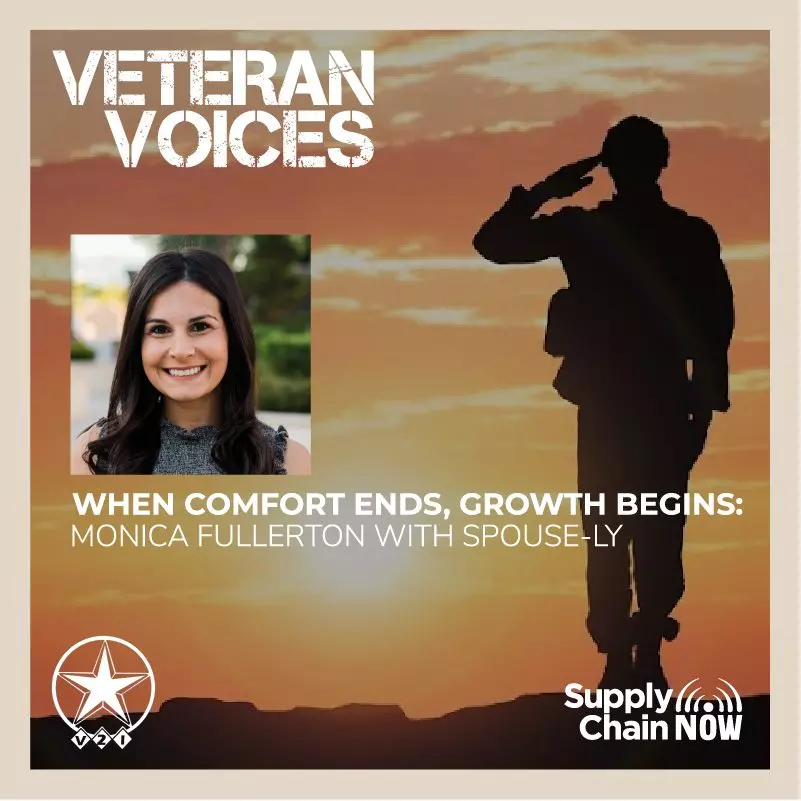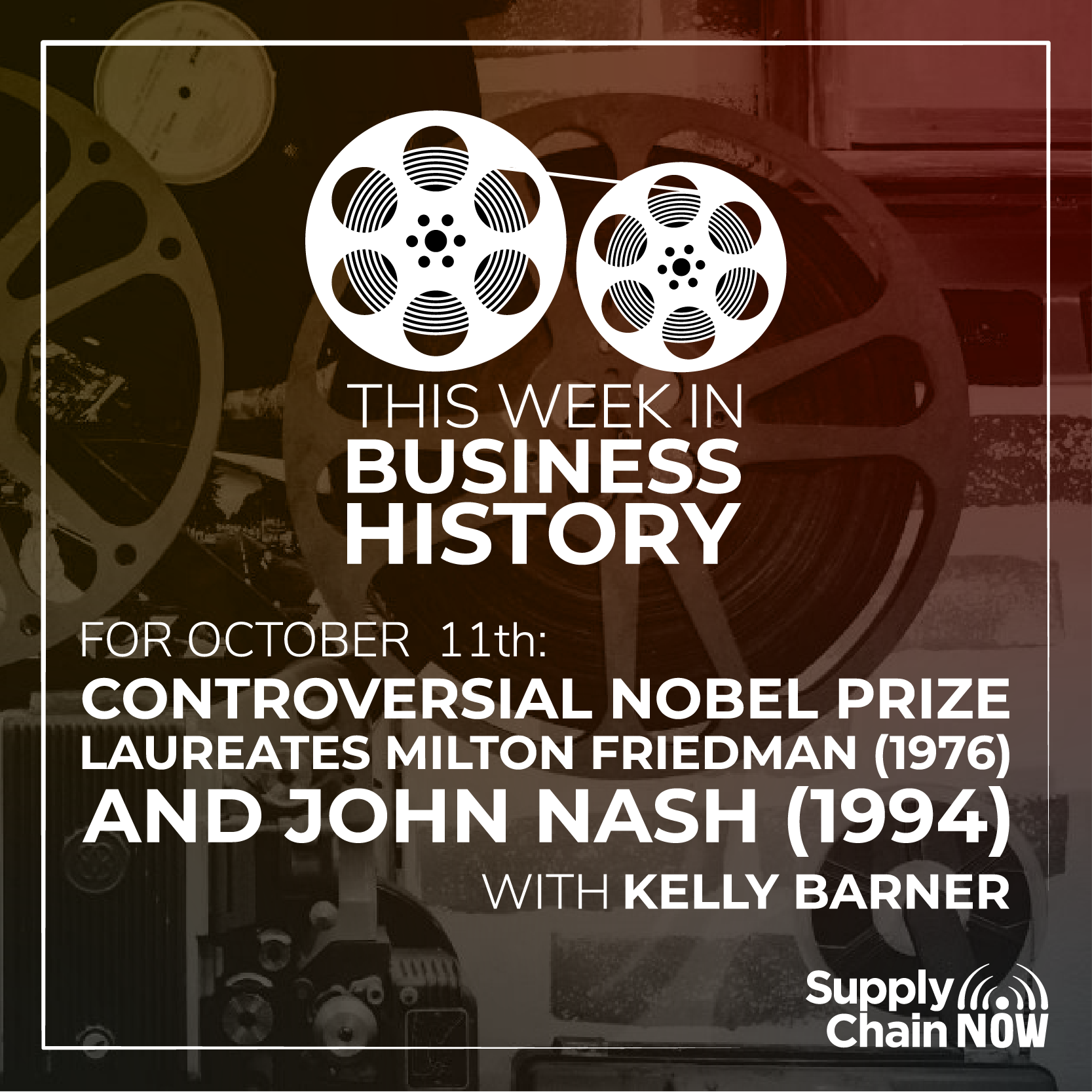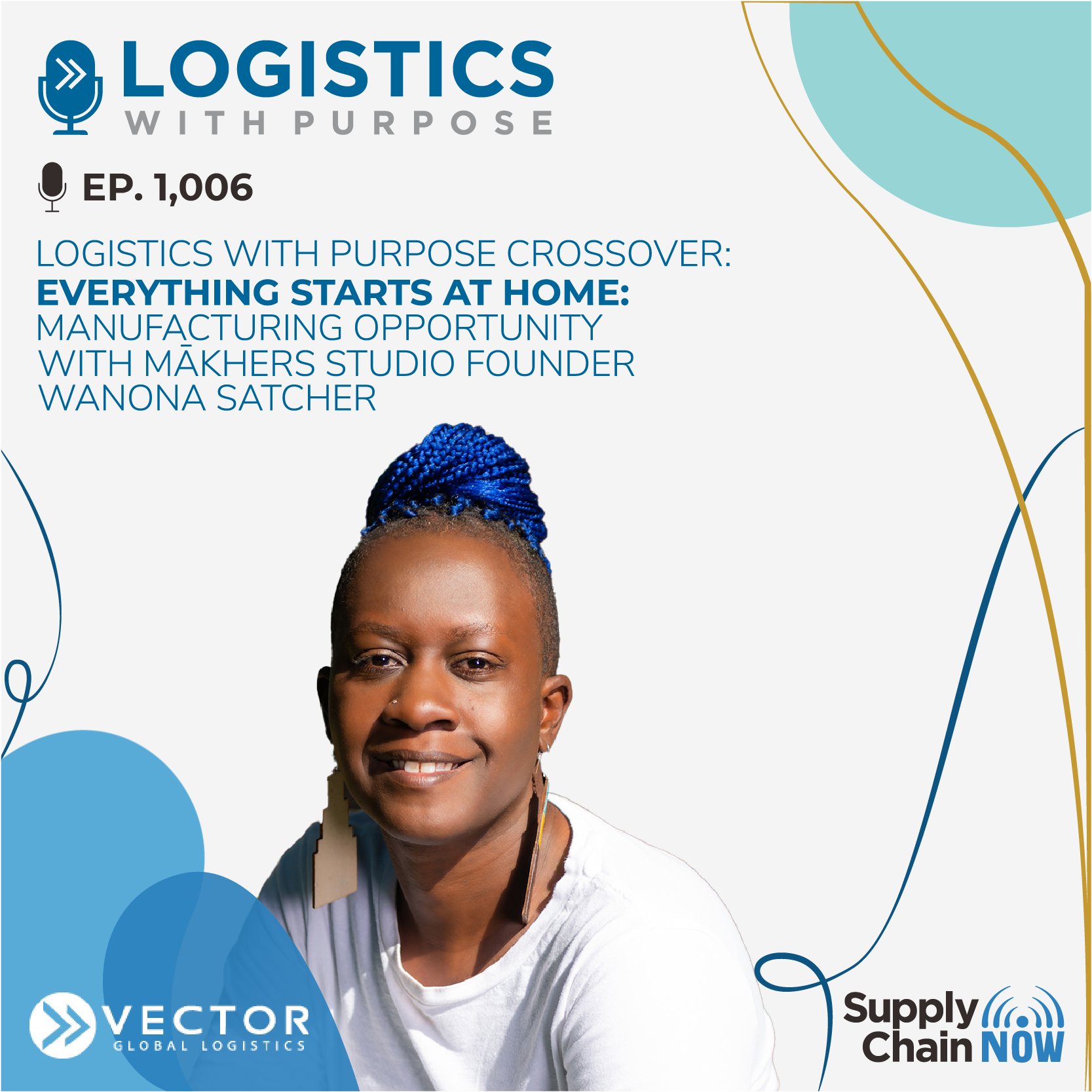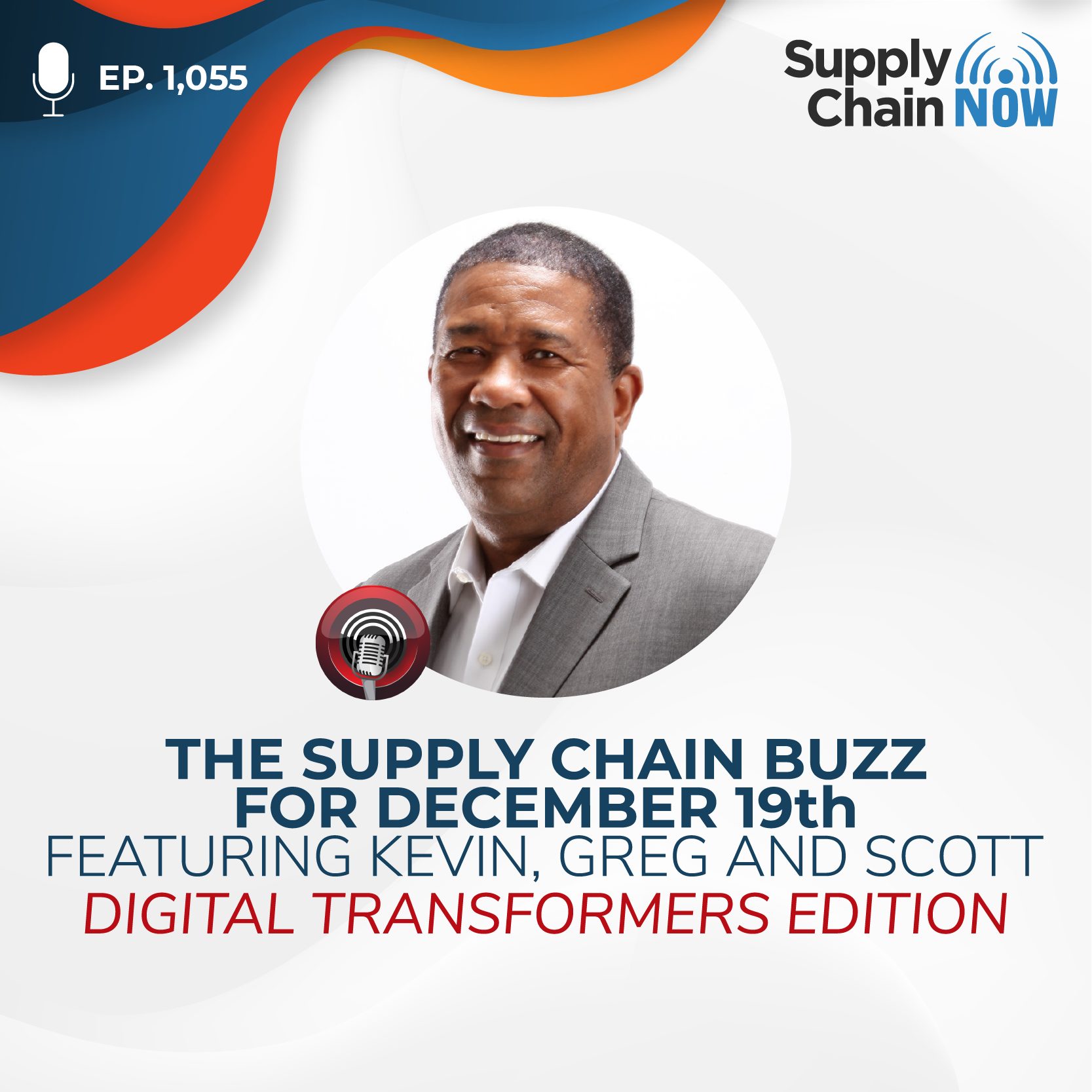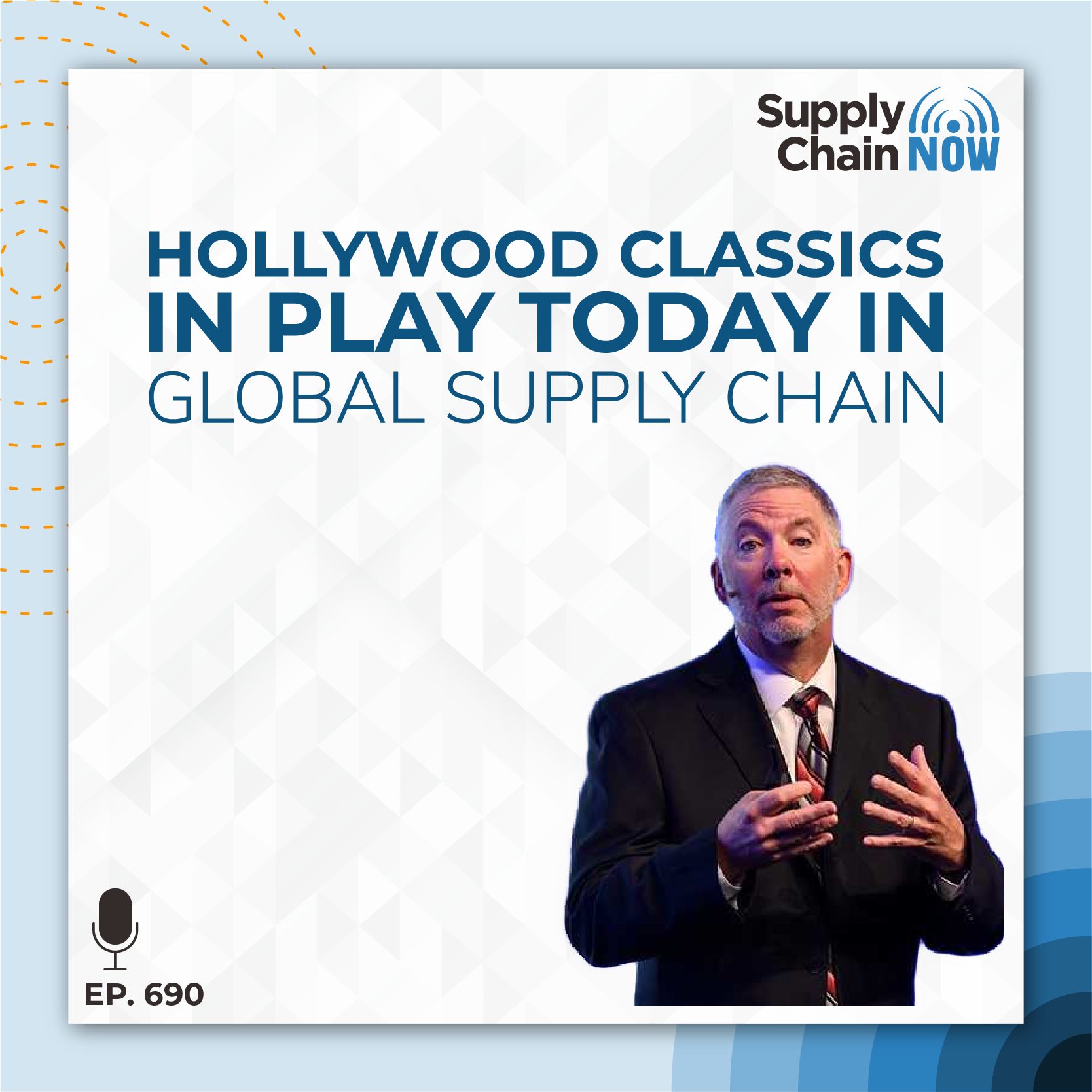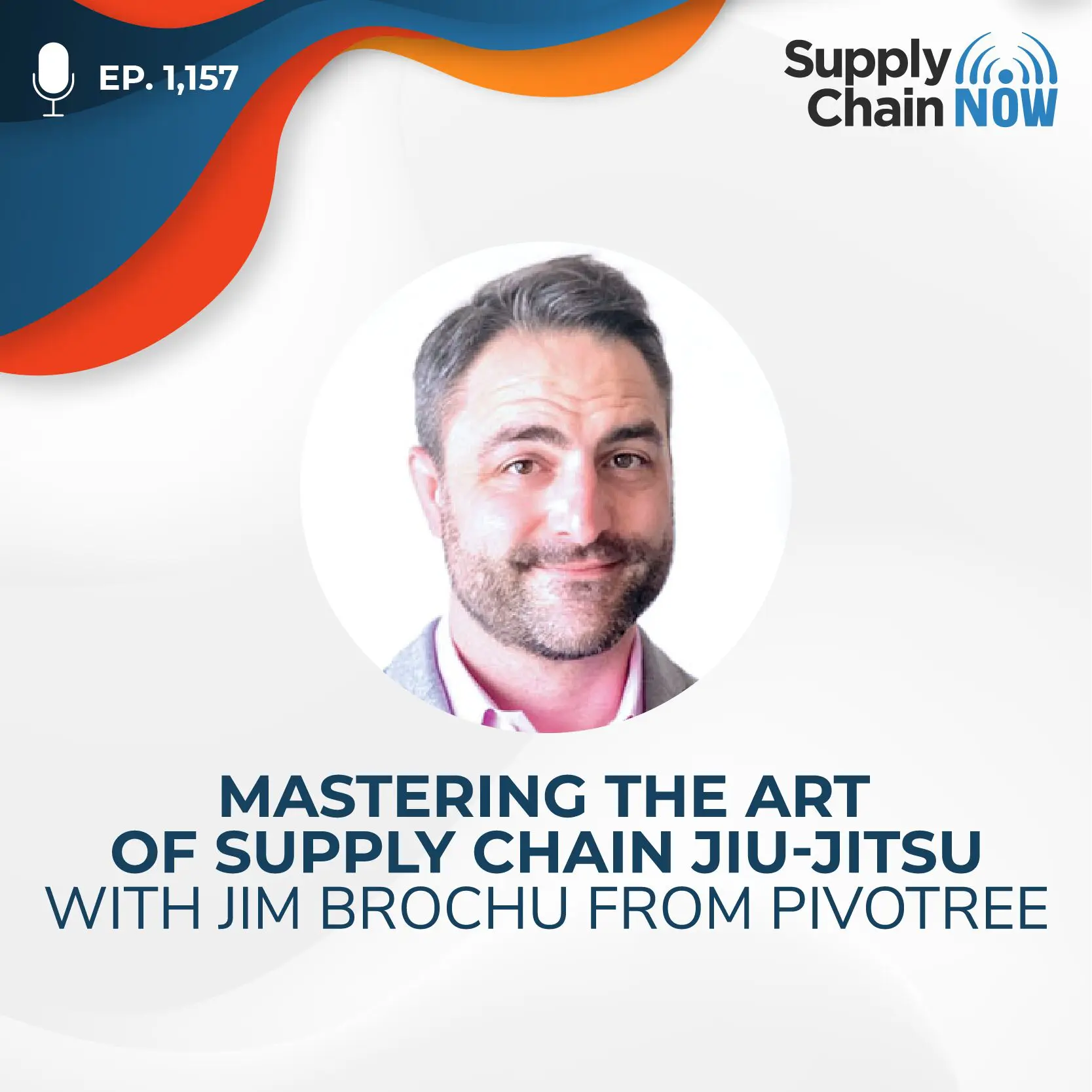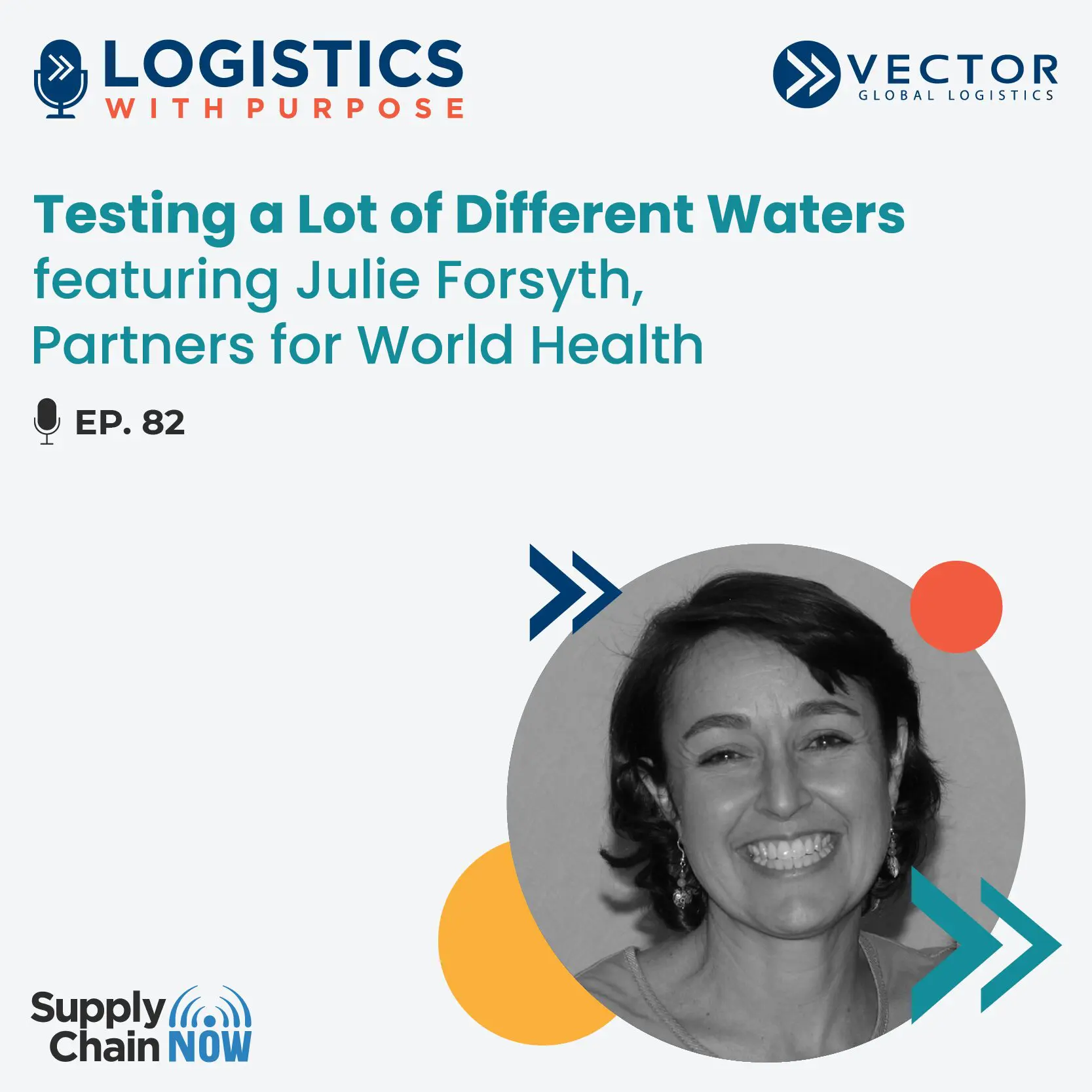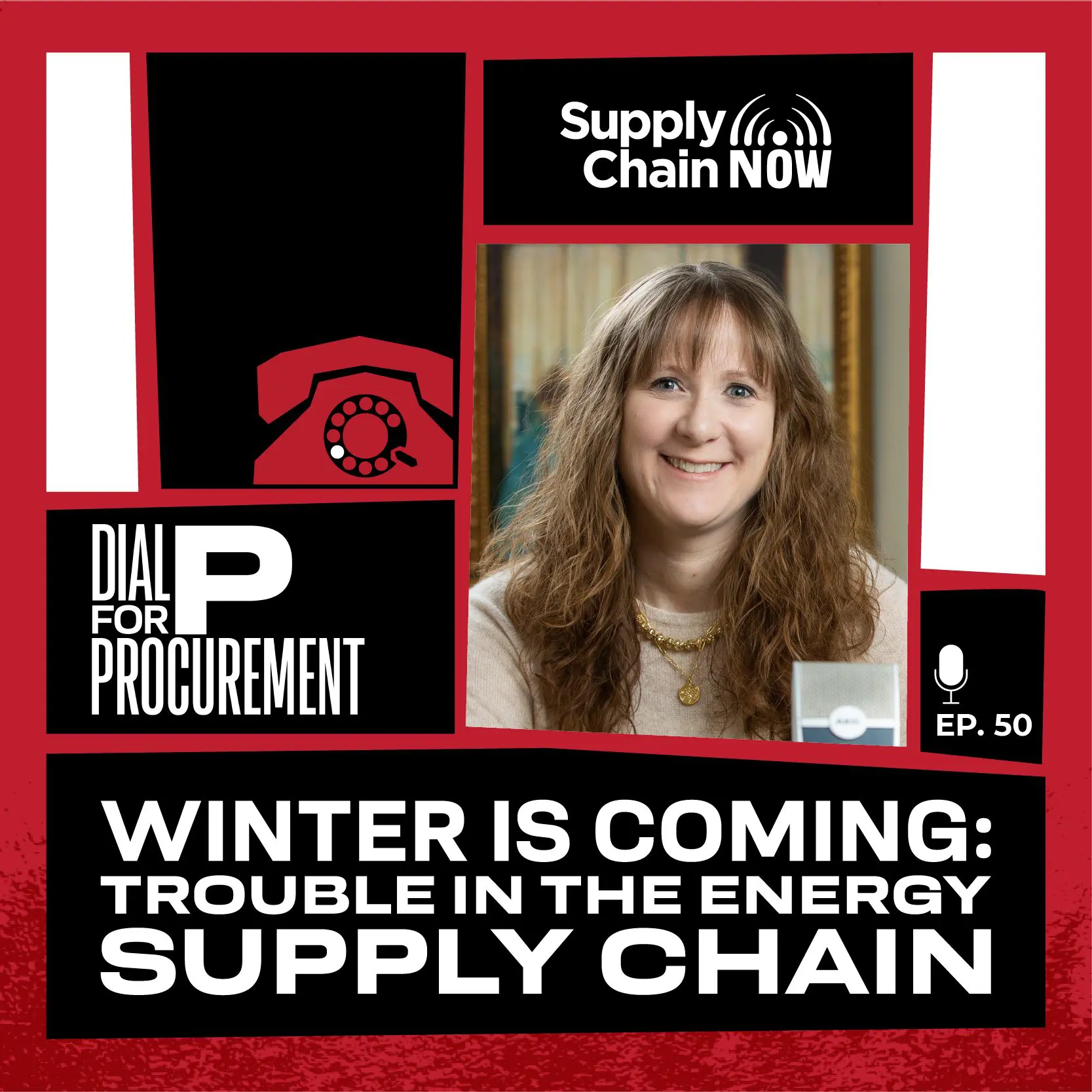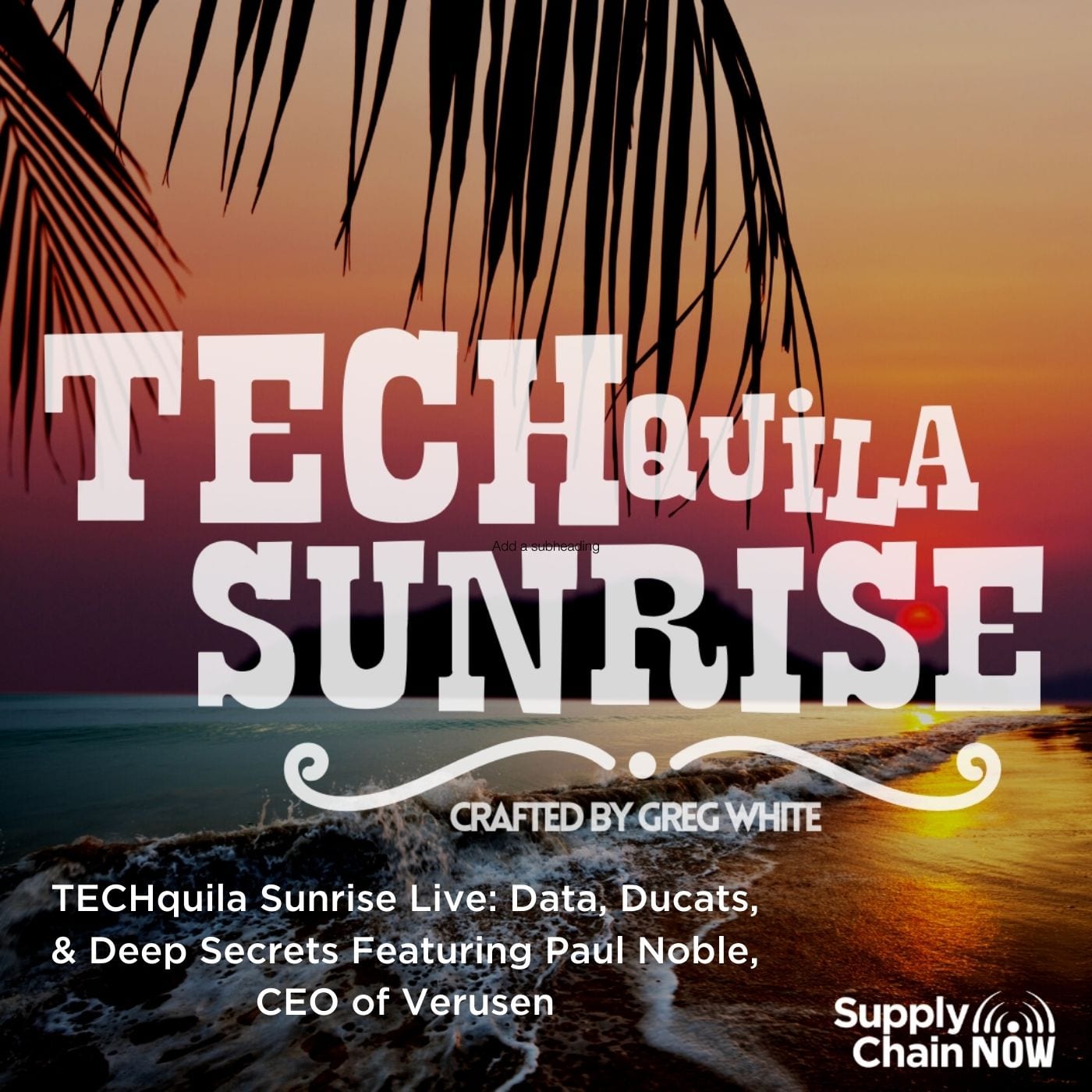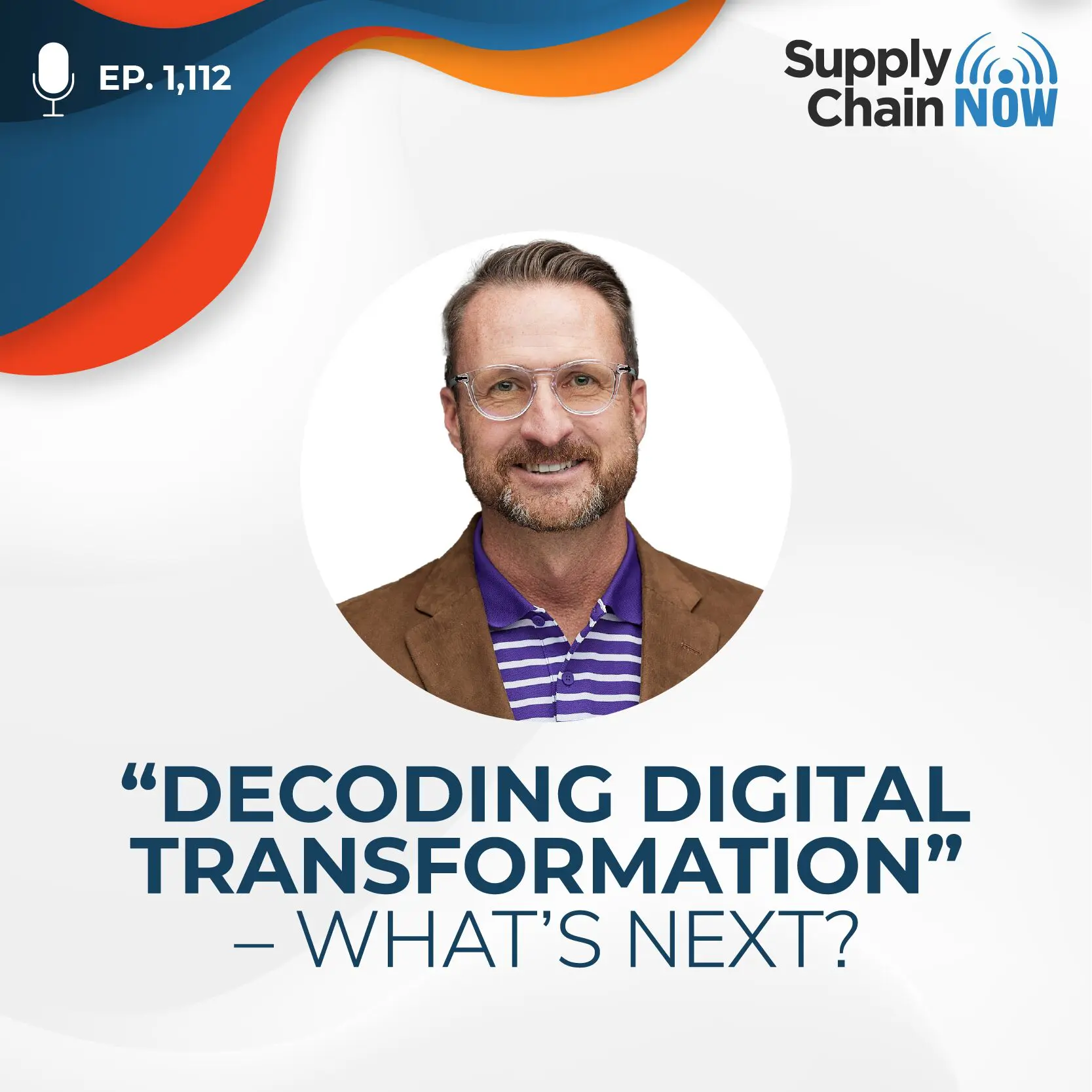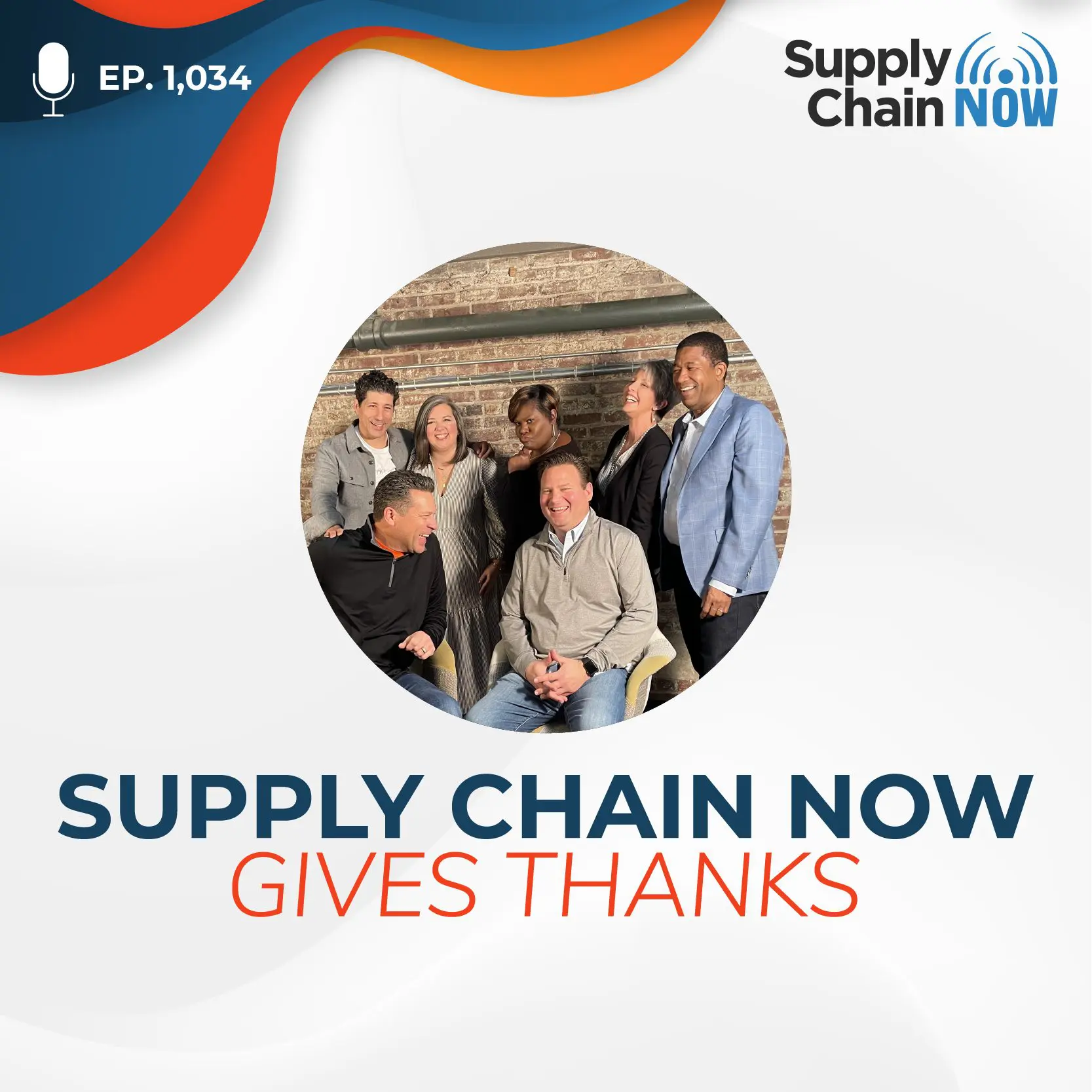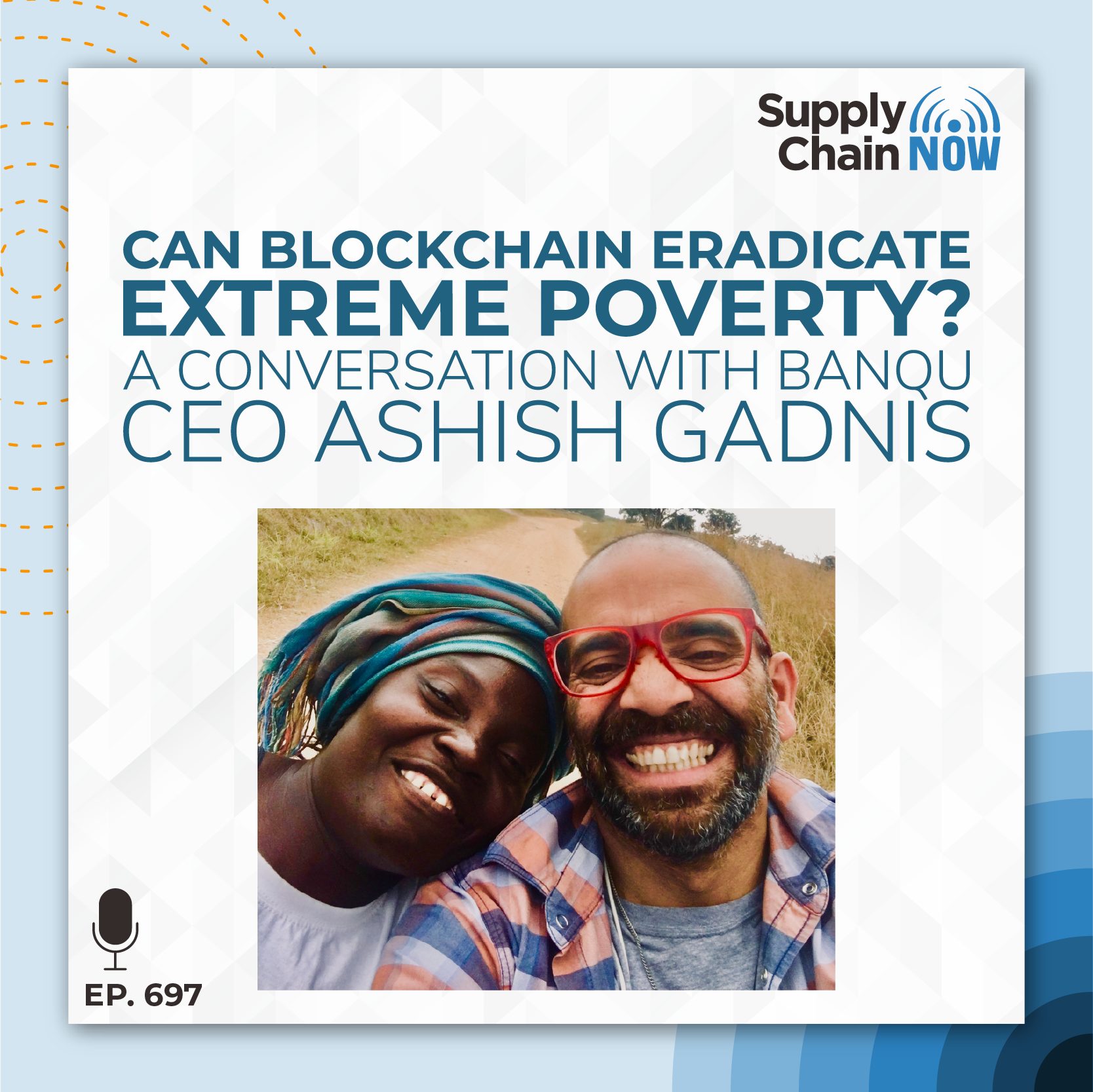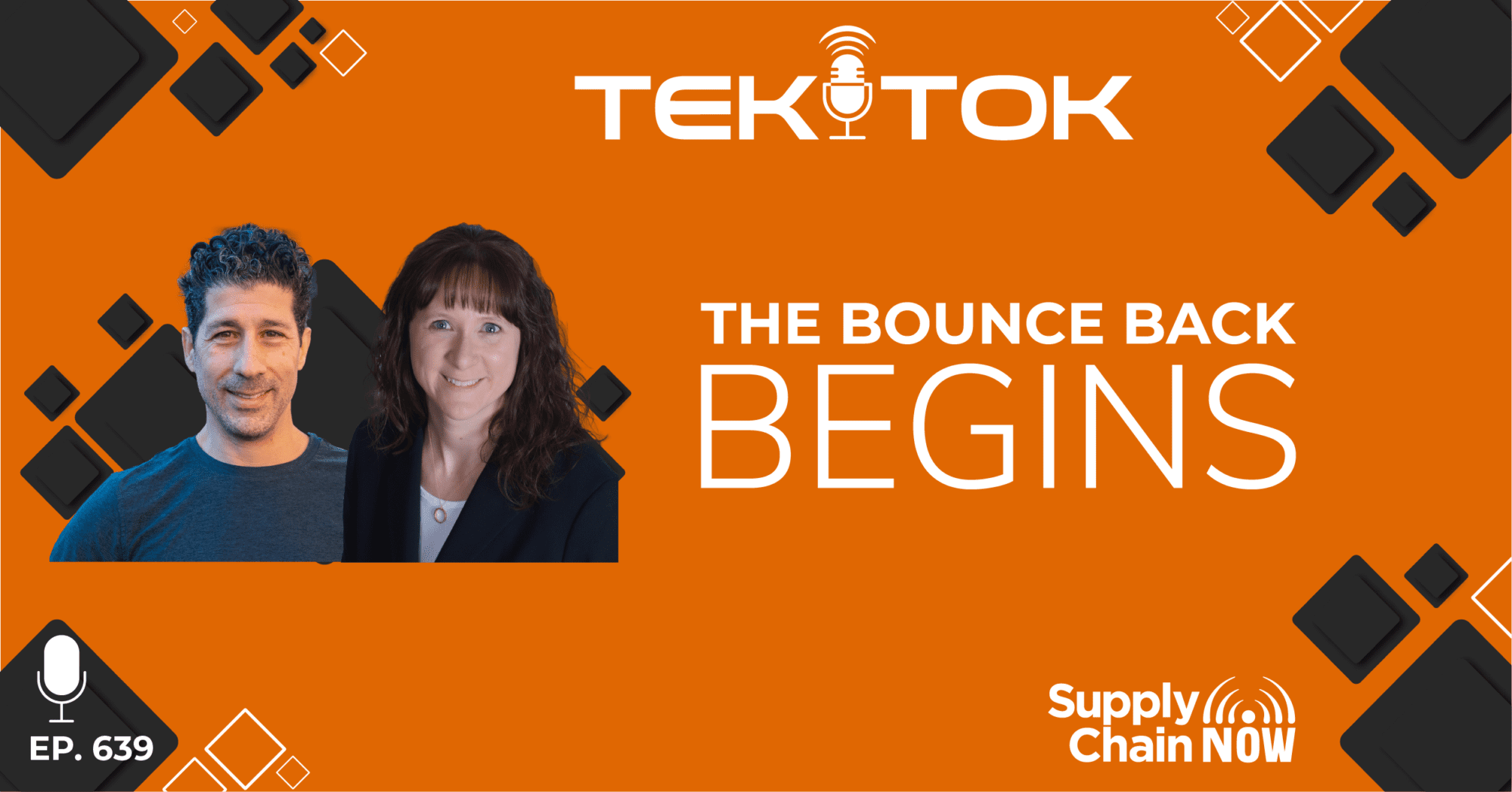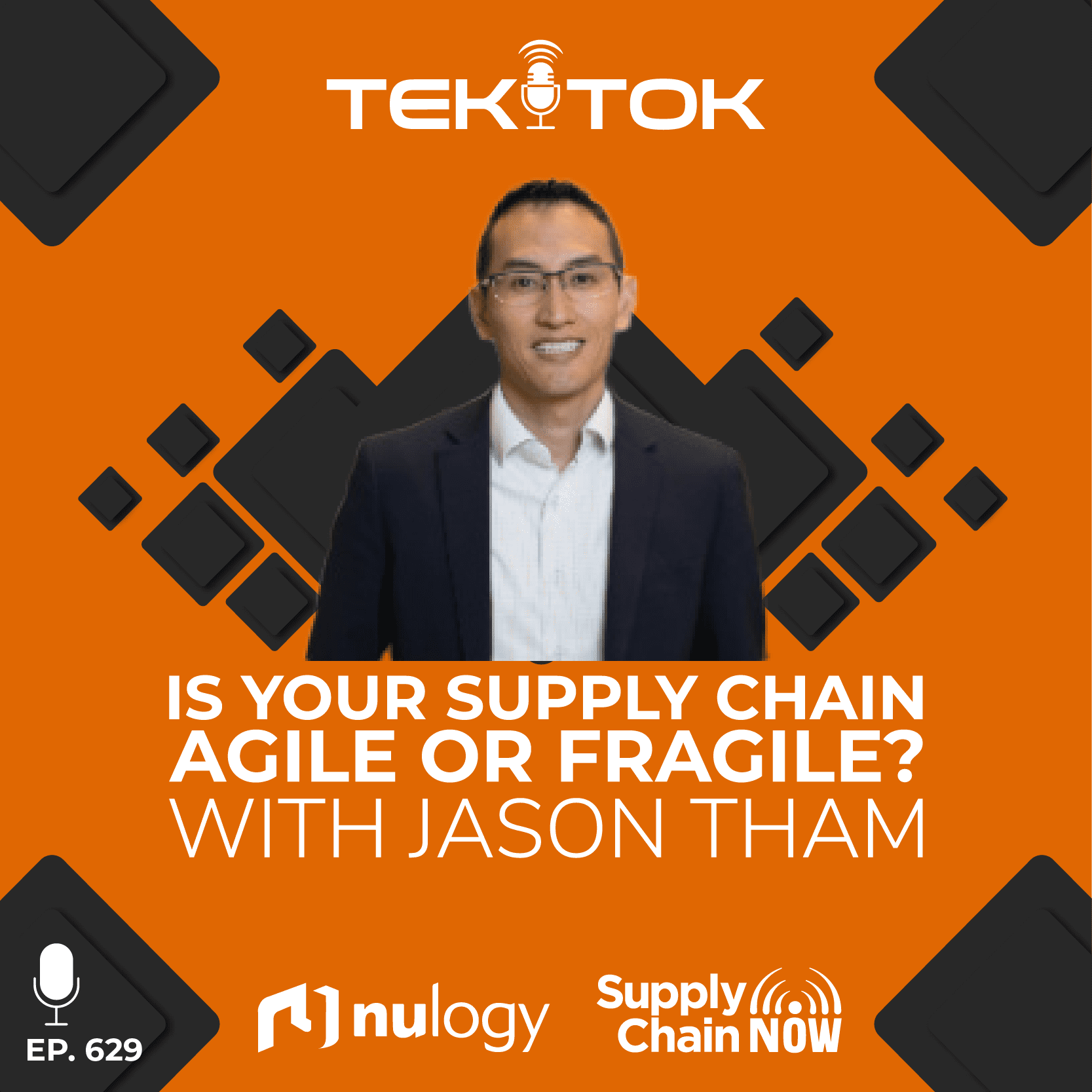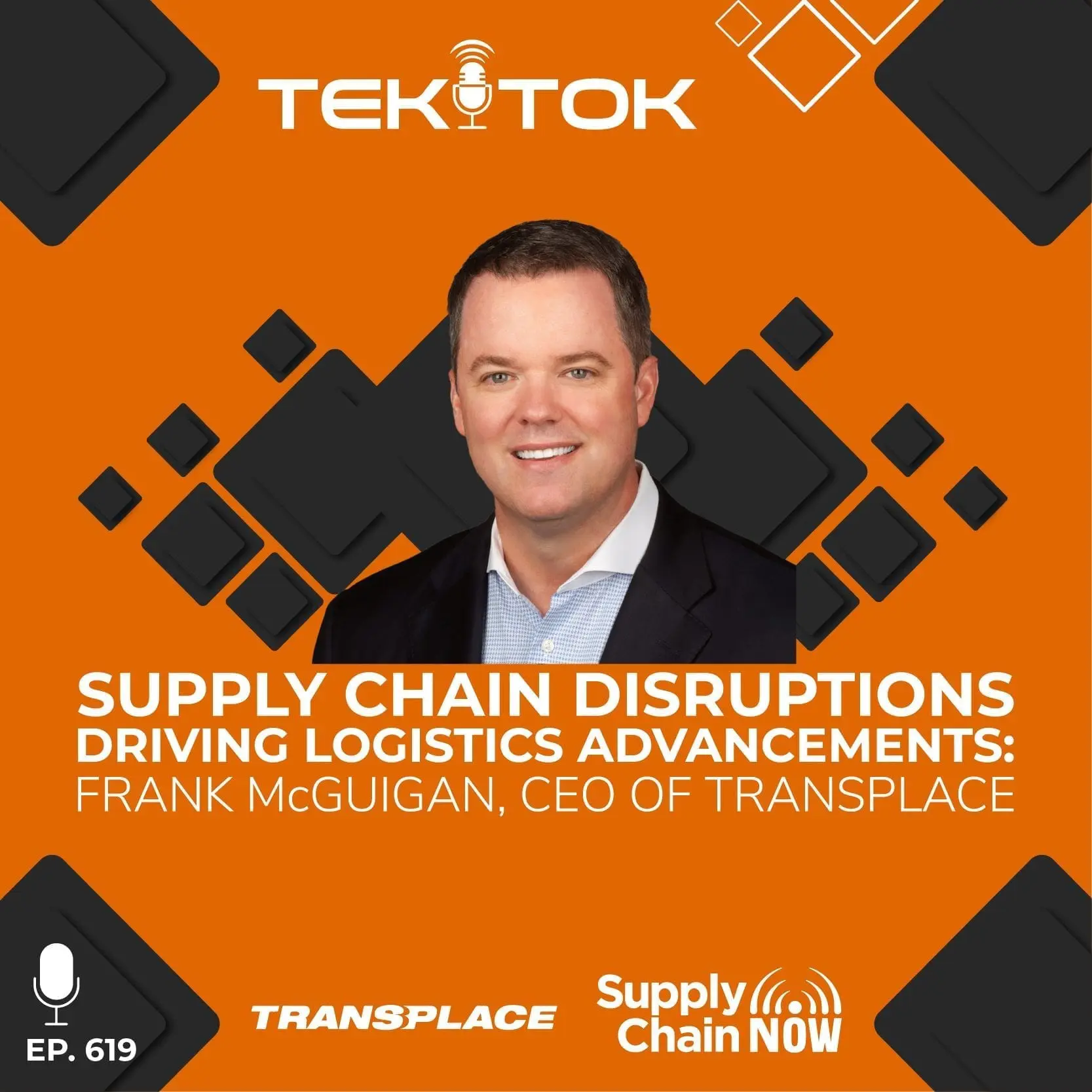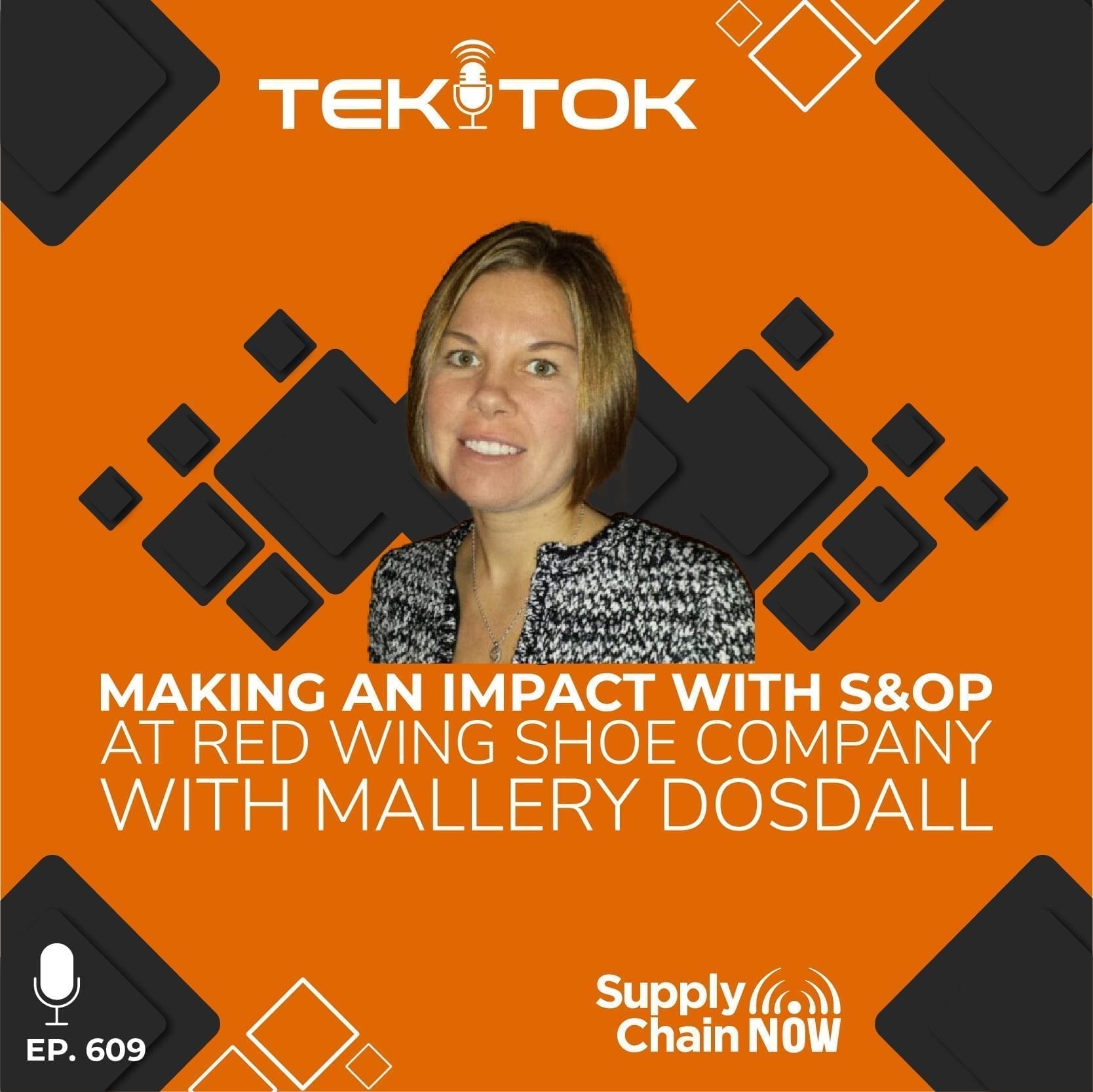Episode Summary
“I think we are going to emerge [from the pandemic] more resilient. That doesn’t mean it’s been easy because it hasn’t. That doesn’t mean we won’t have some scars, because we will. If we choose to learn from these experiences and transform our businesses going forward, we have an opportunity to change the way business is done and to be able to handle future disruptions, small and large, with greater resiliency. Technology is not just the CIO’s problem anymore. This is on the top of the list for your CEOs. Your CEOs need insights about their businesses and supply chain is their business.”
-Karin Bursa, Host, TEKTOK
The pandemic uncovered some critical supply chain vulnerabilities around the world. As the vaccine gains traction and life begins to look a little more “normal” there is a sense of anticipation. However, it seems we are in short supply in a number of areas. The Bounce Back Begins is a great way to think this stage of the recovery as there will surely be ups and downs. Right now, shortages are popping up in a number of areas – some expected, some not. Here’s a list of a few items: Microchips, chicken, lumber, gas, steel, metals, plastic, chlorine, ketchup packets, etc.
Karin and team talk about how far we come on a few important themes around Digital Supply Chain and Procurement transformations:
o Can we recalibrate to reduce risk exposure?
o Are we seeing proof that leveraging advances in technology is accelerating response times?
o Are we gaining agility, resilience and better business continuity planning?
o Will we emerge from the pandemic stronger and with more resilient supply chains?
Episode Transcript
Intro (00:01):
Welcome to TEKTOK Digital Supply Chain Podcast, where we will help you eliminate the noise and focus on the information and inspiration that you need to transform your business, impact, supply chain success. And enable you to replace risky inventory with valuable insights. Join your TEKTOK host, Karin Bursa, the 2020 Supply Chain Pro to Know of the Year. With more than 25 years of supply chain and technology expertise and the scars to prove it, Karin has the heart of a teacher and has helped nearly 1,000 customers transform their businesses and tell their success stories. Join the conversation, share your insights, and learn how to harness technology innovations to drive tangible business results. Buckle up, it’s time for TEKTOK, powered by Supply Chain Now.
Scott Luton (01:13):
Hey. Hey. Good morning. Karin Bursa and Scott Luton right here with you on TEKTOK, right here on Supply Chain Now. Karin, good morning.
Karin Bursa (01:21):
Good morning. Good morning to all the Supply Chain movers and shakers who are with us today too. Scott, how are you doing today?
Scott Luton (01:28):
You know, it’s been a challenging morning. Most of them are though, right? We’re all kind of fighting through this current environment. But we’ve got a good mix of good news and some key insights from an esteem panel. So, I’m looking forward to spending the next hour with you and, of course, all of our friends in the cheap seats.
Karin Bursa (01:46):
Absolutely. Absolutely. Hey, you know, talking about cheap seats, that’s a perfect segue. I had the most normal weekend this past weekend that I can remember, certainly since before COVID hit. And cheap seats, you know this because you’re a big baseball fan, the Atlanta Braves reopened at 100 percent capacity at Truist Park.
Scott Luton (02:14):
Wow. Unbelievable.
Karin Bursa (02:15):
One of my kids went to the Saturday night game in standing room only seats, so cheap seats – for those of you out there. And he said it was just amazing to see so many people in one place again. That it was really just kind of energizing and exciting. And I think, you know, that the Braves were also offering vaccines to folks. And that anybody who got a vaccine, I believe, got two tickets to a future Braves game as well. So, pretty normal doings that seem extraordinary at the time.
Scott Luton (02:52):
Agreed. Great moves by the Braves. And we’re fortunate here in Atlanta to have some wonderful engaged ownership. Especially Arthur Blank with the Falcons, and all they do for folks in need, especially our veterans community. So, great move by the Braves. And, hopefully, there’s goodwill efforts of doing the right thing will spill over into the standings. We’ll see. It’s a fight to the finish.
Karin Bursa (03:12):
It will be.
Scott Luton (03:12):
So, I love hearing about that weekend. It sounds like a wonderful weekend as we continue to take baby steps to some sense of normalcy, which is important for everybody. I want to do really quick, Karin, I want to say hello to a few folks. I want to call out a special project we’re supporting with our friends at Vector. And then, we’re going to dive right in. How’s that sound?
Karin Bursa (03:32):
It sounds terrific.
Scott Luton (03:33):
All right. Man, we have a flurry of activity that already – there must be the Karin Bursa fan club here today. So, Odair via LinkedIn. Great to have you here, Odair. Thanks so much for joining. Clay Phillips, who is on assignment down in Mexico, he says he’s got the entire Supply Chain Now brain trust here. Well, minus Clay and Amanda who, of course, is behind the scenes, and many others. Jill, good morning via LinkedIn. Great to have you here. Kelly. Kelly, you’re supposed to kind of stay in the bag. You’re letting our secrets out.
Karin Bursa (04:06):
She’s always busy. She’s always busy. She’s back there working in backstage right now.
Scott Luton (04:10):
That is right. Peter Bolle, all night and all day, who joined our friends, Sarah, over for thoughts and coffee yesterday. Great conversation there, Peter. And he’s sending us some late breaking news this morning. So, we’ll touch on that later today. Habert or Habert – just let me know if I got it wrong. I apologize. Thanks for joining us via LinkedIn. Jeremy Robinson is with us also via LinkedIn. Thanks so much for being here. By the way, Habert is from Uganda, so wonderful. We’ve enjoyed a lot of thought leadership from across Africa in recent shows. Steve is tuned in via LinkedIn. Great to see you here, Steve. Gosh, Mohib is with us. He says he’s getting ready to TEKTOK today. That is some serious alliteration, Karin.
Karin Bursa (04:55):
All right. Thanks for joining us, doc.
Scott Luton (04:56):
You bet. Tom, Tom Cabral, always try to catch show when he can. And Tom, keep the jokes coming. I think you were commenting on the Supply Chain Hair Club we had working between Greg and Enrique last time. So, we look forward to your sense of humor there, Tom. And, of course, Rhonda. Rhonda, I hope this finds you well. By the way, Rhonda, I think I missed something in the last live stream. I was looking at it after the fact. I believe your husband lost a family member, and all the best to you and your family. Thanks for being here today. I always enjoy your refreshing point of view here. And then, finally, TSquared. He says, “Let the Supply Chain TEKTOK boxing match begin. No nourishment. Just drinks.” How about that?
Scott Luton (05:40)
All right. So, let’s do this. So, hello everybody. I know we didn’t say hello to everyone. I see Justine, Susan, and Amari. Thanks so much for being here. Let’s bring in this here, if my mouse is working. Okay. So, Karin, we’re really beating the drum on this project here on a much, much more serious note. You know, India is in the throes of the second wave. They’re fighting a good fight. We’re talking to a wide variety of our friends that are in India or elsewhere that have friends and family there. And we’re getting really personal updates. And it’s heartbreaking. I mean, as Greg pointed out, every country has kind of had their own ups and downs. But our hearts, and prayers, and thoughts, and actions are with India. So, India, we’re standing with you. We’re very pleased to support a project that Vector Global Logistics and many others are facilitating and marshaling, and that’s getting critical resources to India.
Scott Luton (06:38):
So, give from what you can. Like, Karin and Greg shared not too long ago, give small, give big, give all points in between, but just get informed. And you can do that via vibha.org, which is a great nonprofit that’s doing wonderful work. Or if you have some creative ways, or maybe you’ve got a supply chain infrastructure to leverage, or maybe you just want to interact with folks that are leading the effort, shoot an email to india@vectorgl.com and you can engage and get involved that way. So, critical, critical project. We’re honored to be a part of it. And you give from what you have and that awareness is so important. Ain’t it, Karin?
Karin Bursa (07:16):
It really is. First, thank you to the team at Vector for helping to kind of put the steps in place to make it easy for the rest of us to engage and to contribute. There were 4,200 reported deaths yesterday in India, and that’s the reported deaths. My heart breaks just thinking of that number. But the fact is, that probably isn’t representative of the full total. So, yes, absolutely. All of our friends and family and extended Supply Chain partners that are there in the India area, you are in our thoughts and prayers. And as Scott said, our actions as well.
Scott Luton (07:52):
Well, said. Okay. So, on a much lighter note, we want to share an upcoming event. You know, the flip side of this, the silver lining of all of this, is that we’re seeing a ton of innovation. And that innovation has helped to fight the pandemic, but it’s also helping to make the industry, not just supply chain, but the industry more resilient. So, we’ve got an upcoming webinar that we’d invite you all to join us for, June 8th at 12:00 noon. We’ve got Tracy Rosser from Transplace, that’s going to dive into some of these innovations we’re seeing across supply chains. So, sign up for that for free at supplychainnow.com. And, Karin, Transplace has been on the move hadn’t they?
Karin Bursa (08:28):
They sure have. I mean, we have had some interesting conversations with the leadership at Transplace. Everybody from their chief technology officer to their CEO, Frank McGuigan, who joined us to talk about some of the innovations in this logistics area. So, I know Tracy’s got some interesting things to share and questions to ask for our audience as well.
Scott Luton (08:48):
Agreed. So, all that brings us to today. We’re going to kind of talk about with this wonderful panel, Karin and our two guests, we’re going talk about wide ranging number of factors and goings on across global business, truly. So, Karin, The Bounce Back Begins. Or, really, it’s kind of already begun, right? It’s kind of already begun. But we all hope it’s not the dead cat bounce, where it’s like a fake bounce out. You know, I looked that up.
Karin Bursa (09:16):
That’s a real thing. You’re spending too much time on Yahoo Finance.
Scott Luton (09:20):
Well, with the baseball season, I saw that in one of my favorite baseball blogs. I’m like, “Well, is that like an urban reference? Or is there something behind it?” It is truly a financial term when it comes to looking at economic rebounds and recessions and much of the other half loot and stuff. But we’re all hoping for and working for is a real bounce back. And we’re going talk about some of those things right here today, is that right, Karin?
Karin Bursa (09:50):
It is. That’s what I want to talk about. And we’ve got a great panel to dive into that topic. But I like this idea, Scott, of bounce back begins. Actually, jokingly, on Yahoo Finance yesterday, I heard or saw an article where they called it the not enough recovery. And you can take that so many different ways. So, I love the twist on the words, not enough of a recovery or there’s not enough stuff to fuel the recovery.
Karin Bursa (10:16):
And that’s what we’re going to talk about, is, how have we adapted and are we more resilient emerging from the pandemic? It’s no surprise to our Supply Chain Now community that this pandemic really kind of exposed two things. One, just how connected we all are, our economies on a global scale. But, two, how vulnerable we are and this need for resilience. Most of our supply chain, Scott, have been designed for efficiency and low cost. Repeatable process, get it there quick and as efficiently as possible. But the reality is, what we need now is resiliency and resiliency requires investment in some areas. And so, I’m really looking forward to getting the point of view from some of our Supply Chain Now experts and just hearing what their insights are around a number of topics. So, should we bring them in?
Scott Luton (11:15):
I do. Only one quick point before we do that, it’s interesting how low cost, the factors that drive that in the last ten years, how that’s going to be so different in the next two years, even. So, it’s all about what the current definition is. So, we’ll dive into a lot more here.
Scott Luton (11:31):
So, on that note, let’s bring in the smart people to join the current smart person right here in the stream, Karin. So, we have Kelly Barner, fearless leader of our Dial P for Procurement series, also owner of Buyers Meeting Point. And it gets better. Wait. There’s more. And Enrique Alvarez, who leads both Logistics with Purpose and Supply Chain Now in Espanol, and somehow still finds time to get stuff done as managing director of Vector Global Logistics. Let’s welcome in Kelly and Enrique. Just in time.
Karin Bursa (12:06):
Just in time. Slid right in. Hey, good morning, Enrique and Kelly. It’s great to have you here in TEKTOK Live. Thanks for joining in today.
Kelly Barner (12:15):
Thanks for having us.
Enrique Alvarez (12:17):
Yeah. This is great. I’m excited to be with you, Karin, Kelly, and Scott, of course. I’m going to learn a lot from this for sure.
Karin Bursa (12:24):
Well, we all know you’re going to be bringing it to the table as well. So, it’s always fun to work with experts like the three of you. So, Scott, I know you were excluding yourself in the prior comments, but we know better. So, thanks so much.
Karin Bursa (12:37):
We were on this topic, you guys, of bounce back or the bounce back begins. And I liked the analogy of the bounce, because we’re going to have some ups and some downs in the mix. But, hopefully, that trajectory is going to continue to trend upward. And that it’s not just going to be a U.S. recovery, it’s going to be a global recovery. So, when we think about that, I’m hearing everywhere I go about shortages and the challenges around shortages right now. So, whether it’s microchips, or chicken, or lumber, gas, steel, plastics, and even catsup packages, if you remember, all of that that was going on just a couple of weeks ago. And I would love for our community members that are with us today if you guys could just chime in on some of the comments about where you’re seeing shortages in your business or in your marketplace. That would be excellent as well because we’d love to get your view on that.
Scott Luton (13:34):
Can I share a quick – this is a perfect table setter. A perfect table setter. And, of course, it comes from the one and only Peter Bolle, “Current situation is a pull your socks, grab your britches, and run like hell.” And he says, he’s so glad he didn’t make a typo on britches. My grandmother used that term, britches, all the time. That’s exactly where my head goes. So, Peter, thanks for livening the mood. So, Karin, I don’t want mess up the TX. Where are we going to start first?
Karin Bursa (14:05):
Well, first of all, thanks for that, Peter. You’re kind of upping your game on the humor lately. So, my expectations are going to continue to climb. So, the thing that we heard about for the longest is probably computer chips, right? And we hear that the shortage in computer chips is impacting everything from new cars to, of course, computers or smartphones, right down to children’s toys. And, now, it’s interesting because many of the semiconductor manufacturers are saying, “Hey, we gave visibility back in January that they needed to place their orders now.” And they’re kind of putting the onus on their customers who they’re serving in part for there being a shortage. So, it’s interesting. And, Kelly, maybe I’ll get you to chime in here. It doesn’t have to be computer chips specific, but when we think about that collaboration and the procurement process, what are you seeing as far as that business to business communication and adapting for new demand profiles?
Kelly Barner (15:13):
Sure. And that’s been really interesting, and I’m not going to steal my thunder. I know we’re going to talk about technology a little bit later. But, I mean, basically the issue that we’re having is that it’s like that old school game of telephone where you sit in a circle with your friends and you say one thing, and by the time it gets around the circle, it’s like nobody even knows what that means. The problem is these chip manufacturers probably did tell their customers. The issue is, if you’re in procurement, whether you’re on the direct side of the house or the indirect, it might’ve taken six steps or eight steps or even more for that information to pass through your supply chain to get to you. By the time it reaches you, the information may be out of date. It may be fuzzy. It may be unclear. It may be plain indirect – not indirect – incorrect. My procurement terms are stuck here.
Kelly Barner (16:02):
And so, the thrust of the data is a problem because the relationships don’t extend that far. Maybe we get to tier two in the supply chain. Maybe if we’re really good, we get to three in a couple of places. Never does it go all the way back to where we’re actually getting to the source material level or even as far as the individual chip level based on where they are in most supply chains.
Karin Bursa (16:24):
And I think it’s just interesting how pervasive, you know, how many products in the marketplace today have chips in them, right down to your kids’ toys. So, it’s being impacted. And along those lines, there’s also things like plastic shortages. And I don’t want to put all of the onus for these shortages on the pandemic. Because the reality is, part of the challenges around plastics, and even petroleum distribution, in North America center around the weather events that we had that impacted Texas and other areas that do a lot of the petroleum processing and serve that plastics community. So, when you think of plastics, again, it’s everything from your water bottle right through to, again, your car. The dashboard and other elements that are there.
Karin Bursa (17:12):
But on the topic of gasoline, in particular, one of the shortage issues they say with gasoline is that somewhere between 20 and 25 percent of tank trucks are parked. And the reason that they’re parked is because there is a shortage in qualified drivers. And this is according to the National Tank Truck Carriers. Enrique, your business is moving things. So, help us, I mean, this personnel issue and qualified drivers, qualified workers, really, in every area of the supply chain. I mean, that’s going to be a choke point for us in the near future.
Enrique Alvarez (17:53):
I think it is and I think it has been for the last couple of years. And it just depends on how you’re breaking down the information and what kind of data you’re selecting for telling the story. And I was a consultant before, so you can always kind of take certain aspects or segments of that data and then just explain the story that you want to explain.
Enrique Alvarez (18:11):
But in this particular question that you post me, and to Kelly’s point, there’s so many different steps that you have to make to actually order things. And then, there’s the other component, which is one of the other steps, which is actually shipping it. And for actually shipping it, you actually need people. And, again, not to put everything into the pandemic, but before the pandemic, way back, we were looking at average age of a truck driver and things like this. And the average age has actually gone up to, like, 56 or 55, I believe it is right now. And there’s not a lot of younger people that want to come into the industry so there’s always been a shortage. And, of course, with the pandemic, it just got out of control. And that’s kind of what we’re seeing. We’re really seeing some of different factors that all came together and played out in the way that they’re playing out. And it’s just sometimes like the perfect wave, right? Port congestion can be attributed to that. Driver shortage can be attributed to that. And some of these other things are also a factor of just not having enough people for multiple reasons.
Karin Bursa (19:19):
Yeah. That’s a good point. And then, you add kind of insult to injury, if you will. So, Scott, I know that you’ve got a point of view on this one. But, you know, here in the Southeast, there’s currently a gasoline shortage. And so, in the Atlanta area in particular, there’s a little state of panic buying to fill your car up. And you’ll find gas stations that are completely out of gas, right? And that’s the result of a different kind of disruption. So, there was a ransomware attack on a business, on the colonial pipeline business, that impacted the ability to distribute. And so, in supply chain terms, we’re getting new signals of demand. Heightened demand or pulling demand forward and less supply in the marketplace. And so, we’ve got, you know, consumer behavior that’s different and is really amplifying some of the challenges that were happening network-wide.
Scott Luton (20:19):
Yes. We certainly are. And, you know, it’s impacting thus far different states differently, right? And still, there’s no firm date for when the pipeline will be completely back up the normal. And even when that happens, as we all know, there’s going to be some lingering impact that will linger for days exacerbated by what consumers are doing.
Scott Luton (20:42):
So, what we did the other day here in Luton household is, I broke out my RCB from behind the house and [inaudible] gas station. No. Kidding aside. Folks, don’t do this. This is internet. I’m not sure I got this from 20 people on one of my social feeds. This reminds me of some people that we all probably grew up with. But, folks, now is the time to be a good citizen. You know, get what you need. Folks are going and trying to go to their job. They’re trying to take kids to school. They’re trying to, you know, get stuff done. But, now, it’s not a time to hoard. Just like we heard when the TP – goodness gracious. I don’t even want to broach that subject back when that was happening, right? Just be a good consumer. Let’s control the panic.
Karin Bursa (21:29):
Yeah. I’ve got news for you, toilet paper shortage may come back around because lumber is at record highs. I mean, we have seen over 130 percent increase in lumber prices here in North America. And that pulp is part of that equation as well. So, that’s going to affect a lot of paper industries, including the toilet paper industry. So, there’s more coming.
Scott Luton (21:54):
There’s a lot more coming. Don’t squeeze the [inaudible] and don’t buy too much TP. But, hey, there’s some great comments here I want to bring in from our community. So, Peter – going back to some of the plastics deals – he says, “We can also add seat cushions to the list of upcoming shortages. Thanks to this Texas snow debacle that’s closed the refinery that produces 85 percent of U.S. resins used to make seat cushions. Toyota paused several plants as a result.” And then, Peter also says – I tell you, we’re going to have to make room for a fifth seat here – to Enrique’s point about the data, “Explain or exploit. Data tells whatever story you want to tell for any given situation.” Excellent point there. Let me share this from Brandie. Brandie, thanks for joining us here today. “Truck driving is a hard way of life for a little pay. I’m not surprised the average age has increased.” It’s a good point. Let’s see, Azaleah – hey, Azaleah. Great to have you back with us once again. “There’s a shortage of school bus drivers statewide in West Virginia. This is huge and affecting every industry.” Excellent point. That just adds, too, we already got attached by the digital divide. We’ve got to make sure that doesn’t grow to an educational divide. All right. So, Karin, we’re tackling chicken next. Is that right?
Karin Bursa (23:10):
Well, we could talk chicken. We could talk [inaudible]. You guys, I don’t know if you’re aware, there’s a chicken shortage, just so you know. So, part of it is, apparently, chicken is a high priority menu item for takeout. And since so many people have been doing takeout of chicken wings and chicken dishes, but also something that we serve when we cook at home. So, there is a chicken shortage. And a catsup shortage. But I think the catsup shortage has more to do with packaging than it does with tomato harvesting and processing. But when you think of catsup packets, so the packets demand spiked by over 25 percent for these packets because restaurants are serving them with their takeout. But, also, because they’re not putting the bottles back on the tables as in restaurant dining resumed. So, the thought process is it’s much more sanitary just to give you the packets than to touch a bottle that somebody else’s has touched. But these things are just simple examples, I think, that are impacting our everyday life as well as our professional roles around supply chain.
Karin Bursa (24:16):
But it is so fascinating to me that this year of disruption has really continued to put supply chain at center stage. So, I really want to shift the conversation to how far we’ve come, what we’ve learned. And I want to hear Kelly, and Enrique, and Scott, you know, some of your insights about how we’re doing things differently. And if we’re really taking advantage of this time of disruption to accelerate the adoption and transformation of businesses. How’s that sound?
Kelly Barner (24:51):
Sounds good.
Enrique Alvarez (24:50):
Sounds wonderful.
Karin Bursa (24:53):
I was going to say, let’s start with something simple. So, we’ve just talked about these demand signals changing and product availability changing. And supply chain planning is all about balancing demand with availability. So, we’ve had to calibrate or, let’s say, recalibrate on a much more frequent cadence to do things like reduce risk exposure or harness opportunities in the marketplace. There’s just a multitude of disruptions right down to this recent ransomware example. So, Kelly, what are you seeing with these wide swings, how is this impacting procurement strategies and tactics?
Kelly Barner (25:33):
So, I think it’s impacting our strategies and tactics in a couple of ways. The biggest way is that, most procurement teams are not set up to find products and services for which there are shortages. We are set up and trained and optimized to get efficient pricing, get things in the right volume, with the right specs, in the right place, at the right time. And so, a lot of us are struggling now because we’re saying, “Okay. You can’t buy the spec that we want. You can’t buy the product that we want.” Or maybe it’s a tier two issue where our supplier is having difficulty delivering because they can’t get what they need. But it’s not an option to just, “Okay. Well, then let’s change the spec.” No, you don’t understand. There isn’t any of this pulp, lumber, plastic available. So, that’s one challenge.
Kelly Barner (26:22):
The other thing that I read about earlier this week, that is a huge source of concern for me, does deal with these stock-outs specifically in the retail sector. So, there’s been a lot of forgiveness over the last year. And I think procurement has made a lot of progress in terms of the relationships that we have with our suppliers. But, now, we’re getting to the point where Walmart, Albertsons, Cisco, they’re like, “Okay. We’re done with this. We want everything to go back to normal. If we order 10,000 jars of pickles from you, we want 10,000 jars of pickles to show up.” And, now, Walmart very specifically, also Cisco, and Albertsons, I believe, has set this on the horizon, they are starting to find their suppliers. So, if you don’t have 98 percent of the order fulfilled in place on time, they are finding you 3 percent of the value of what doesn’t get delivered. And that’s so tough because, on the one hand, I get where Cisco and Walmart are coming from. That’s great because it’s a B2B example and it’s a B2C example where this is an issue.
Kelly Barner (27:25):
So, I understand their problem. They need the stock that they order. But we’ve worked so hard to get away from these really tough relationships with our suppliers. And especially if we’re going back in to some shortages, whether it happens to be toilet paper or catsup packets or [inaudible] pickles, whatever it happens to be, if we’re burning bridges, we’re not even across the river yet. It’s not time to burn the bridge yet. And so, I’m a little bit concerned that for as much as we feel like we progressed and as much as we feel like we learned and changed to, you know, kumbaya with our suppliers over the last year, I’m worried it didn’t get in as deep as it really needed to.
Karin Bursa (28:03):
I mean, that’s a valuable perspective. And allocation never feels good if you’re the one getting allocated, right? Because you’re not getting 100 percent or 98 percent of what you’ve ordered or what you want. Enrique, what are you seeing in this area?
Enrique Alvarez (28:17):
Yeah. I think that relationships are very important and that’s something that people need to be very mindful about. Because at the end of the day, when things settle or when things evolve or when things change, like it will happen, the relationships are going to be there or not. And if you don’t have those relationships, because you actually acted probably selfishly or maybe the planning horizon was too short and you were short-sighted, then you’ll be in a lot of trouble when it comes to your supply chain and how competitive you can be compared to other companies out there. But, yeah, it’s two forces that are playing together at this point.
Enrique Alvarez (28:50):
And I talked with a lot of sourcing teams, and shipping teams, and the COO’s, and it’s just, on one hand, you’re actually trying to put all this fires and you’re working on a getting things done on a day to day basis. And then, at the same time, you’re thinking, “Well, what can we learn? How can we do things better?” But there’s just not enough time for planning. I mean, people are still just doing. And one good example of this is, for example, with the initiative that we had to kind of start helping India and sending some PPE, you see all these different calls and emails that we’ve been getting that are great of people trying to donate PPE. And it’s 6 million gloves here, 3 million gowns there. I’m like, “Well, why do we have so much PPE in the U.S. And now, all of a sudden, we were rushing to bring it from China. We stored it here. And, now, we’re going to try to rush it to send it to India.” So, I feel like we’re still seeing this cycle and it’s ups and downs, up and downs, and we’re in the middle.
Enrique Alvarez (29:44):
And if we’re actually trying to make, I guess, rash decisions right now, I feel like we’ll probably won’t get the right outcome. Catsup, for example. You’re having all this catsup packages and, all of a sudden, we’re going to have a huge brawling with waste, then plastics, crap. And then, there’s a shortage in plastic. So, we’re just trying to manage everything the best way we can. But I think we’re just hurrying up a little bit and maybe people should be like, “Okay. Let’s just take a break. Let’s just think about this for a second. Do we really need 10,000 jars of pickles? Yes, we probably do. But what if we buy 20,000, what are we going to do with the other five?”
Scott Luton (30:23):
Look, Enrique. My middle child, Gracie, has volunteered –
Enrique Alvarez (30:27):
We’ll send them to you.
Scott Luton (30:28):
– with the surplus with catsups and pickles.
Enrique Alvarez (30:30):
We will send all those catsups and pickles to the Luton family. But there’s a transit time. And there’s some things there in logistics that you still have to consider. Because if you order something today, it won’t get here today. A good friend of mine was talking to me last week from what happened in Texas, they were flying glue. When you’re chartering planes to fly glue, that’s just not a good sign because glue should not be flown anywhere.
Scott Luton (30:58):
So, much great knowledge that all three of you are dropping here. I got to share some of these comments from our friends in the comments, in the cheap seats. Chris Barnes, the Supply Chain doctor says, “The new school of thought, management needs to expect black swan events occurring every year. Kind of waters down the definition of black swan.” And, Karin, we’re talking about how definitions of different things are certainly evolving as well as the equations behind them. Let’s see here. Rhonda is talking about how work life changes and expectations and the employee experience. All that’s changing, right? For good reasons, oftentimes. And so, lots of more bouncing to come, as Rhonda points out. Mohib -I love this – “It’s interesting that we can communicate -” and fly helicopters, I would add “-to the Rover in Mars. But not so much across the road to tier three suppliers. Go figure.” Excellent point there. Mohib. Now, Azaleah says something here, she says, “Are we allowed to point out how large of a variable the media influence is now on consumer behavior?” That’s a great point.
Kelly Barner (32:00):
Excellent point.
Enrique Alvarez (32:01):
Really excellent point.
Scott Luton (32:02):
And this is, if you’ve got school aged kids and you’re parent, obviously, kind of that digital followed them home impact, it certainly worries you, probably. Media is the same way. Wherever you go, you’re almost inundated. And, now, consumers are savvy. This is a good thing. But you got to really pick and choose the signals that you pay attention to and you act on. So, that’s a great point there, Azaleah. Gosh, there’s so many here. Let me add this. We’ve got a LinkedIn user here that I want to point out – and let me know who this is, Amanda, if you would. He or she says, “Need to have a relevant risk appetite and risk posture. Reduction isn’t solving for the best outcome. Optimize risk and posture use data, scenario planning, and make sure you don’t single or sole source or order just in time.” So, Enrique, your just in time appearance, as Mohib pointed out, we can’t do that anymore. Kelly, that is our friend, Caray Cosey [??].
Kelly Barner (33:05):
Caray Cosey from Gartner.
Karin Bursa (33:07):
Gartner chiming in.
Kelly Barner (33:08):
Great points, Caray.
Scott Luton (33:10):
He’s becoming a LinkedIn superstar. We’re going to have to go through his age next time. But, Karin, a lot there, obviously, but how do we pick back up on and keep tracking?
Karin Bursa (33:19):
So, lots of good things there from the perspective of we have new signals, we have different signals. We need to figure out, are we putting priority on these short-term signals and how sensitive do we want to be. And how do we continue to build trust in our multi-enterprise business, because it is. We’re global. We rely on our suppliers. We rely on our carrier partners and distribution network to get those products in the consumer world, out to the consumers at whatever retail channel they’re interested in.
Karin Bursa (33:50):
And I really want to know, so that cadence changes. And we can’t just do weekly planning anymore. Things are changing too dynamically. We’ve got to be able to do the cadence that’s important, the weekly, the monthly, the quarterly. But we also need to recalibrate as frequently as possible. Let’s talk a little bit about some proof that leveraging advances in technology is really helping us make better decisions.
Scott Luton (34:17):
So, Karin, we’re talking about gaining agility, resilience, better business continuity planning, right?
Karin Bursa (34:23):
You got it. Absolutely.
Scott Luton (34:25):
I know your finger is on the pulse of a lot of developments in that area, really across global supply chain. What are some of the cool examples that you’re seeing?
Karin Bursa (34:33):
Yeah. So, there are a lot of examples that are happening in being able to kind of harvest, if you will, and interpret data, and new signals, and putting more weight on new signals. Where, we’re determining what channel those products are being delivered on. Meaning, is that direct to home? Is it direct to consumer? Is it coming through an E-retailer? Or is it in a traditional retail market? These are all considerations that, on the front end, are impacting demand, but also drive behavior through your internal supply chain. Whether we think about, you know, where those products should be housed and distributed from and the type of packaging they need. Are they packaged for a single serving size? Or am I still able to ship a carton of goods? You know, that’s back to the catsup example. Really interested, Enrique, to hear what you’re seeing in this area of proof points that advanced technologies or technology advancements are really driving the outcomes we’re looking for.
Enrique Alvarez (35:35):
Oh, I wouldn’t go as far to say that we’re driving the outlooks that we want. But they’re definitely accelerating whatever outcome that they’re trying to maximize. And sometimes I think that’s a little bit of a difference because, maybe the outcome that we want, or one company wants, or one supply chain wants, might not be the best outcome for the overall worldwide community of plastics or catsup packages or whatever. But there’s plenty.
Enrique Alvarez (36:02):
So, there’s really zero doubt in my mind that technologies just continue to accelerate this. Just the way the demand patterns have shifted and just as people were in lock down, they used technology aka Amazon, and just all this different ways of ordering products. And so, they went from experiences and going out on restaurants or vacations or traveling to just buying. And that shift in demand is kind of one of the main pieces, I believe, that has actually put us in the challenging situation that we currently are in. But that’s something that we can expect to be the new norm. So, technology will continue to accelerate demand the way it has, and maybe even faster with the drone delivery or 3D printing. And so, there’s a lot of exciting new developments in technology that are going to continue to change supply chain. And it’s exciting for people that are in supply chain, like we are. And I think it has put supply chain front and center, whereas before it wasn’t such an important area for many companies.
Karin Bursa (37:07):
Yeah. Absolutely. I think, you know, kind of back to the topic we were highlighting before, most of our supply chains have been designed for low cost repeatable processes. And more stability, let’s say, not a stable demand pattern, but more stability. And that helps us, Kelly, in those relationships and procurement strategies, right? With more volatility, what happens?
Kelly Barner (37:32):
It absolutely does. Well, it certainly makes it more difficult to keep the frameworks matching what the company needs. But, fortunately, from a technology perspective, there’s been a huge shift over the last year within procurement. I think we finally embraced the fact that process is not the biggest value we can bring to the company. There’s been sort of that association in the past. We’re moving towards a mindset where data, quality data, is our primary value proposition, which is allowing us to let go of the buying process. So, this is where technologies are coming in so that we can actually allow self-guided buying, self-sourcing. We’re actually democratizing the B2B procurement process, and that’s products and services. Listen, you need a contingent worker. You need paint, you need MRO, it could be anything. We have the technology. We have databases. We have supplier networks. Don’t worry about holding everybody’s hand through the process because there’s too much work to be done. And procurement is not big enough to do it all. So, we have to focus where the ROI is.
Kelly Barner (38:34):
Let people continue doing what they’ve proven as individual consumers they can handle responsibly. But, fortunately, we do have the technology to empower it. There’s been huge improvements in the usability. You don’t even really need training anymore in most cases, which is leaps and bounds from where we used to be. And so, I think we’re going to emerge from this saying, “Okay. Instead of a black list and a white list,” we’re saying, “Listen, do everything yourself, unless it’s above this brand threshold.” We don’t want 14 people in the enterprise all trying to negotiate separately with Microsoft. That’s never going to happen. It shouldn’t happen. But beyond that, err on the side of letting people do it, put the technology in place to make it possible. And make it successful so that you’re not creating risk just by feeding this desire for people to do their own buying.
Karin Bursa (39:21):
Yeah. You know, that’s a great point. I hadn’t really considered the fact that our user community is changing so much as well. I mean, the bulk of our workforce right now are really digital natives. They’ve grown up with more technology in the palm of their hands. And they’re able to navigate that and pick up on trends, or how to purchase appropriately ,or work within the guides that are given to them based on, you know, authorization as a part of that. I think that puts a lot of onus on solution providers, right?
Kelly Barner (39:54):
A ton.
Karin Bursa (39:55):
They’ve got to design with that usability or that user experience as a part of the equation. Enrique, I know you guys have focused a lot on having a great user experience. Any insights there?
Enrique Alvarez (40:11):
Yeah. So, I think to Kelly’s point and then to your point as well, like, the man is shifting and there’s newer, younger people coming in and they actually are more knowledgeable when it comes to, not only technology, but also when it comes to brands and responsible companies and sourcing. So, yeah, I think we’ll continue to see this trend. I don’t think that we’ll ever emerge from this, as some people might think. I feel like it will just be a continuum and we’ll adjust and adapt to this new way. Again, so the pandemic accelerated it, but I kind of feel like we were already kind of on track to do what’s happening in a certain way.
Karin Bursa (40:53):
You know, that acceleration message, I remember, Scott, you and I talked about this just a couple of months ago. McKinsey did a report late last year on the impact of the pandemic that said that, the digital transformation had accelerated by as much as four years. It may not feel like it. It may not feel like it to those of you that have adopted new technology or rolled that out. But I guarantee you, those that have waited are going to fill that difference because that gap just got bigger, that resilience.
Enrique Alvarez (41:26):
I feel four year older.
Scott Luton (41:26):
Yeah. I was about to say, I was 21 –
Kelly Barner (41:30)
Just four?
Enrique Alvarez (41:31):
[Inaudible] four last year. Yeah.
Scott Luton (41:34):
I was 21 when all this started. Unfortunately or fortunately, depending on your perspective to tackle, not only supply chain as it will be moving forward, to Enrique’s point, but also to overcome the threats, new challenges, the new status quo, which is, things aren’t going back to where we were pre- pandemic in many ways. And we’ve got to embrace it and arrive at the solid foundation that you can build, basically, a new operation around. So, it can be truly resilient and more sustainable in a meaningful way.
Scott Luton (42:07):
If I can, Karin – goodness gracious – we’ve got some gurus in the cheap seats. We always do. But lots of comments here today. I want to share a couple. Mohib, of course, the bullwhip effect, right? If you’re a practitioner, you know exactly what he’s talking about. “They don’t teach this type of cases in school (yet),” he says. The operative phrase yet. Azaleah says, “To Kelly’s point about departmental sector design, what is the most profitable approach to restructuring systems to meet the current demands in this time? Do we try to alter the procurement design and objectives or do we diversify teams and create teams with representatives from each department?” We’re kind of going backwards a bit in the conversation, but that is such a universal question that goes far beyond just procurement. Kelly, what would you say to that?
Kelly Barner (42:55):
I would say that there’s a huge conversation happening around operating models in procurement. And probably the biggest divide -and, Azaleah, you and I have to connect and talk about some of this stuff. The biggest divide right now is about what does procurement need to be good at to deliver against the primary value proposition? So, the big tension is around where does category expertise need to live? Should we be experts in these different categories? Should we even consistently work in the same categories? Or should we simply be good at market Intel, data analysis, strategy, negotiation, supplier relationships, and let the business own all of that category expertise? Companies are looking at it very different ways. And even within individual companies, you have people saying, “Okay. These categories, we can just let the business on that or bring in a third-party expert if we really need it.” But in other areas, This is such a significant percentage of our spend. We can’t let go of it. We have to keep it in.” So, very difficult decisions are being made by procurement teams. How big are they? How do they hire? Who do they retain? What do they invest in current staff? We have a huge pivot happening right now.
Scott Luton (44:06):
Excellent point. And to Azaleah’s latter point there about diversifying, I’d go broader with that. You know, we were having a great conversation with a supply chain leader doing big things from the team over at Esker. He had a classical arts background and I’m like, “That is such a beautiful thing.” Think about the way he looks at problems so differently than so many other practitioners on the folks from all walks of life. So, we’ve got to diversify the team so we can challenge these problems head on.
Kelly Barner (44:34):
[Inaudible] diversity is diversity too, right? I mean, it’s all kinds of diversity.
Scott Luton (44:38):
Great point. Excellent point. All right. I wanted to share one other point from Brandie here. Then, I’m going to throw it back to you, Karin. Brandie says, “Technology is enabling visibility to supply chain risk throughout the tiers, allowing us, as customers, to plan better.” I would add to that. And Brandie great point. Greg just interviewed – and her name escapes me right now -but she’s part of the Kubera capital team. And she mentioned that, technology is the grandest democratizer. And that’s a wonderful thing. So, as many threats that are originating from a technology standpoint, hey, we’re going to use the power of technology, not only to beat those back, but also create opportunities for all across global business. So, that inspires me. I don’t know about you all.
Karin Bursa (45:23):
No, it’s a great point. And actually it’s a great lead in here, because I do think technology allows smaller companies to perform at a level that, in the past, was only available to those that could make those big technology investments. So, I think we’re leveling the playing field in a number of areas. But I want to ask Enrique, and Kelly, and Scott, your perspective as we kind of close out this theme of the bounce back begins. The desired outcome is that we’re going to emerge from this pandemic somehow stronger or more resilient in how we face future disruptions. That we’ve been able to kind of lay the groundwork, or change the technology, or leverage automation to perform in a more efficient or effective or responsive way. And that doesn’t necessarily mean a low cost solution or a low cost way to produce and move goods to market. So, Scott, let me kind of start with you. And then, I want to hear from Enrique and Kelly on that topic. Are we going to emerge from this pandemic more resilient? What’s your thought?
Scott Luton (46:36):
Well, I got to tell you on a lighter note, just outside to my right here, we’ve got all these bird feeders and stuff.
Karin Bursa (46:42):
[Inaudible]. Okay.
Scott Luton (46:43):
Well, yeah, you know exactly where I’m going, Karin. So, the squirrels have been eating all of my bird seed to the point where it’s been disincentivized birds to visit our lovely gardens. So, with one key bird feeder, we raised it and we have eliminated the squirrels access. However, you should see the acrobatics going on throughout the last hour for the squirrels that are bound and determined. There’s a supply chain analogy there somewhere, but I want to have some visuals.
Kelly Barner (47:08):
It’s very resilient.
Karin Bursa (47:09):
Very resilient, yes.
Scott Luton (47:11):
These squirrels are bound and determined to figure this problem out.
Karin Bursa (47:15):
Lots of agility happening here.
Scott Luton (47:18):
So, let me just say, some supply chains and their leadership, I have taken this opportunity to meaningfully truly transform the nature of their operations, how they lead, how they do business. And in a non-cliche way, transformation has been thrown around, you know, like bath water here lately. But I would argue that global supply chains, as we all know, are very interdependent on so many factors. And I think we’ve yet to hit that this notion of rock bottom – bedrock – that’s the phrase I’m trying – I don’t think we’ve hit bedrock on some of these fundamental foundations of global supply chain. You know, containers come to mind, the ports, all the stuff going there, workforce dilemma. Holy cow, talk about a universal challenge that we’re going to have for months, years to come. Even bringing it fairly local or regional to the Southeast tier and the cyber security issues. I am scared to death that we’ve seen the turmoil over the last, you know, 18 months.
Scott Luton (48:15):
Well, all of that really hasn’t been triggered yet, and I’m not going to a huge piece of wood by, you know, from cyber security issues. It could be. And as many analysts are pointing out, this could be a big sign of things to come, so we got to continue to stay ahead. We got to stay ahead. So, my answer long and short, my really technical answer to your question is, yes and no. Karin, sorry. I wish I had more of a stronger answer.
Karin Bursa (48:41):
That’s not fair. That’s not fair. You’re taking the middle ground there. But I’m not used to you being pessimistic. You’re usually the optimist amongst all of us here.
Scott Luton (48:54):
We’re challenging. We got to challenge – it’s interesting. And not to believe the fact, but we’ve seen all the no shortage of challenges the last 18 months, and really it’s blown everyone for a loop in many different ways. But one of the silver linings, maybe, we all didn’t recognize until this point in time is, you know, one of the things that didn’t rear its head in a way that it could. So, supply chain leaders, business leaders, consumers, hopefully, are going to take what we’re seeing right here right now in this huge disruption of a way of life and make changes to how we pass and share information and do business. We’ll see though. So, I don’t mean to be pessimistic, but I think it’s very real.
Karin Bursa (49:38):
Yup. Yup. Absolutely. Enrique, what’s your thought? Are we going to emerge stronger, more resilient? What do you think?
Enrique Alvarez (49:43):
I think so. I think we’ll actually be much, much better off as things kind of settle and as we kind of move forward. And the reason why I’m so optimistic about this view is because I believe in people, and we’re smart. I mean, I know we’re super dumb in many, many ways. But in general, in general, I think we’re smart. I think technology is a function of smart people developing technology. I think supply chains are a function of smart people communicating and coordinating with each other. And I am a true believer that people are going through the right things. They’re learning from this. I know it by my experience, my kids’ experiences, that we’re just really learning and it’s been an incredibly painful learning experience. It’s been challenging. A lot of people have been impacted by this. And I hope it never happens again, but it will. And I think that’s just part of life. That’s just part of how supply chains work.
Enrique Alvarez (50:39):
And I’ll give you one quick example on why I’m so optimistic, and it’s just like the organizational structure that companies currently have. So, things as basic as you don’t have to come to the office. That’s just silly, right? I mean, you don’t have to have a desktop. You can have a laptop and work remotely and have phones all over the world. So, I think that companies are going to change a lot in many, many different ways. And I think those changes and that way of looking at things is going to be great.
Karin Bursa (51:08):
Yeah. That’s a great point. And I do think the workforce and the way the workforce contributes is going to be permanently changed as an outcome of this. And I believe that that should give us more resiliency and more agility because we should actually be able to tap into talent pools around the world. They don’t have to be located necessarily in one geography or another. Kelly, what’s your thought? Are we going to emerge more resilient or not?
Kelly Barner (51:36):
I’ll just speak for procurement. I think we are going to emerge more resilient. I think we’ve survived something. And procurement has never been quite as cool as all you supply chain guys. We’re just cool. We’re just cool. We’re just glad to be at the party. So, we’ve now survived something. And I feel like the way we conducted ourselves and the way that we handled ourselves has allowed us to start the foundation of a new legacy. Because we now can look back even 18 months and say, “Look at all the stuff we did over the last 18 months.” And we didn’t lose our cool – looking at you, Walmart and Cisco. We didn’t lose our cool. We dealt well with other people. So, I think we’ve started to set ourselves on a new trajectory where we’re more cohesive as a function. We can use the achievements over the last 18 months to recruit on.
Kelly Barner (52:24):
And we’ve proven that where there was nobody in place to step up and do a new task, we were ready, willing, and able to do that. And I think there’s a sense of pride that comes from that. And I think that’s going to give us the confidence to step up and continue to, not only do more things, but to let some of the more transactional work go. We’ve had a hard time letting go of some of that because it makes us feel good to be in control of it. It’s time to let it go. We’ve proven we can take a step up to the next level. And I think right now is the moment. We just have to keep it together. We have to give ourselves enough times for those new habits and those new patterns to really take root. I think this is a whole new beginning for our function.
Karin Bursa (53:04):
Yeah. I think that’s a great point.
Scott Luton (53:06):
I agree.
Karin Bursa (53:06):
I mean, let go of some of those things. To me, Kelly, when I hear that, that is a perfect example of an automation opportunity, where technology can contribute and automate that process. If these are routine functions that, maybe, are time-consuming, but not high value, that’s a great place to apply technology, to become more resilient. So, thanks so much for that perspective. And you’re invited to any cool party I go to.
Kelly Barner (53:38):
Can I bring, like, 10,000 of my best friends? Can I bring everybody?
Karin Bursa (53:42):
Absolutely. Absolutely.
Scott Luton (53:42):
I got to share this. I’m surprising Kelly with this, but it’s out in the public domain, so I think I can do that. Kelly is one of our coolest amongst us. Look at that, that she commands. And if I can zoom in on the shirt, it says, Kermit, instead of mom across the cat tattoo, it says procurement.
Kelly Barner (54:03):
Yeah. Shout out to my friends, Aggie and Ashley, who sent me the sweatshirt. Amazing piece of branding. Take that to the next level, pull out the Harley, put on the sweatshirt. Keep two on the ground, everybody.
Scott Luton (54:15):
I love it. Well, as I mentioned I’ll surprise Kelly with that, but that is so cool. Look, as we all know, I’m not the cool one on all these panels. We’ve got Karin and Kelly and Enrique. Enrique, the ultimate optimist. How about that? We got to get you a new heavyweight title belt for that. But, Karin – gosh – a whirlwind of conversation here today. I hate that it’s almost the top of the hour, bottom of the hour – I always get that wrong. I hate to bring it to a close.
Karin Bursa (54:42):
It’s time. It’s time. But I want to thank Enrique and Kelly for joining us on this conversation. Scott, obviously, we could go on for hours on this. You know, if I could add that I think we are going to emerge more resilient. That doesn’t mean it’s been easy because it hasn’t. That doesn’t mean we won’t have some scars because we will. But it means if we choose to learn from these experiences and transform our businesses going forward, we have an opportunity to change the way business is done. And to be able to handle future disruptions, small and large, with greater resiliency. And, for me, technology is not just an IT CIO problem anymore. This is on the top of the list for your CEOs. They need the insights about their business and supply chain is their business.
Karin Bursa (55:38):
Making products, moving products, and satisfying customer needs is what the business is about. And if you’re a product space company, supply chain becomes very, very critical to that in all of its areas of domain. From procurement, through planning and technology, to new product design, to the logistics partners that you work with to get delivery of those goods at the time the customer wants, when and where, in the package size, all the permutations. So, we’ve got a real opportunity after being in center stage to stay in center stage for the years to come.
Scott Luton (56:17):
Agreed. Man, there’s so much goodness in what you just shared there, Karin. I think one of your points you made there, we have an opportunity to change the way business is done. I completely agree with you there. And I got to share this other one from Barbara, we’re talking about the cool factor. Barbara says, “Companies with the most resilient supply chains will be more competitive in the long run. Being able to capitalize on black swan events better than their peers. Supply chain resiliency is the new cool competency.” Excellent point. Okay.
Scott Luton (56:47):
So, before we bid ado to our dear friends, Enrique and Kelly, thank you so much on behalf of Karin and our team here. We love what you’ve shared here, but equally as important, we love all the other thought leadership you put out there. Kelly, you via Dial P, for Procurement, Buyers Meeting Point. I don’t know how both of you all get sleep at night. Enrique, I’m convinced you’ve got seven clones. But, hey, love Logistics with Purpose, Supply Chain Now in Espanol, and, of course, all the great things you are up to at Vector Global Logistics. So, thanks so much Kelly Barner and Enrique Alvarez.
Enrique Alvarez (57:21):
Thank you.
Featured Guests

Kelly Barner is the Owner and Managing Director of Buyers Meeting Point and MyPurchasingCenter, and the host of the Supply Chain Now program Dial P for Procurement. She has been in procurement since 2003, starting as a practitioner and then as the Associate Director of Consulting at Emptoris. She has covered procurement news, events, publications, solutions, trends, and relevant economics at Buyers Meeting Point since 2009. Kelly is also the General Manager at Art of Procurement and Business Survey Chair for the ISM-New York Report on Business. Kelly has her MBA from Babson College as well as an MS in Library and Information Science from Simmons College and she has co-authored three books: ‘Supply Market Intelligence for Procurement Professionals’, ‘Procurement at a Crossroads’, and ‘Finance Unleashed’.

Enrique Alvarez serves as Managing Director at Vector Global Logistics and believes we all have a personal responsibility to change the world. He is hard working, relationship minded and pro-active. Enrique trusts that the key to logistics is having a good and responsible team that truly partners with the clients and does whatever is necessary to see them succeed. He is a proud sponsor of Vector’s unique results-based work environment and before venturing into logistics he worked for the Boston Consulting Group (BCG). During his time at BCG, he worked in different industries such as: Telecommunications, Energy, Industrial Goods, Building Materials and Private banking. His main focus was always on the operations, sales and supply chain processes, with case focus on, logistics, growth strategy and cost reduction. Prior to joining BCG, Enrique worked for Grupo Vitro, a Mexican glass manufacturer, for five years holding different positions from sales and logistics manager to supply chain project leader in charge of five warehouses in Colombia.
He has a MBA from The Wharton School of Business and a BS, in Mechanical Engineer from the Technologico de Monterrey in Mexico. Enrique’s passions are soccer and the ocean and also enjoys traveling, getting to know new people and spending time with his wife and two kids Emma and Enrique. Learn more about Vector Global Logistics here: https://vectorgl.com/
